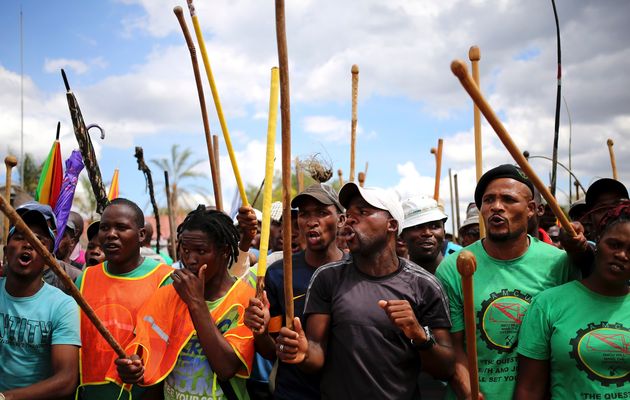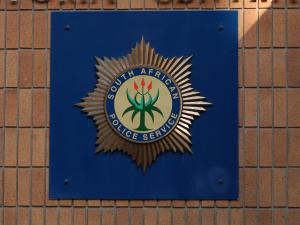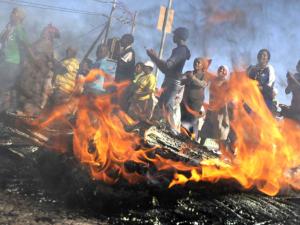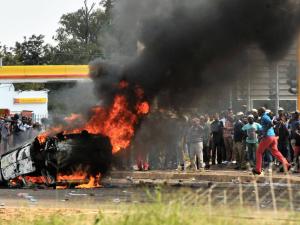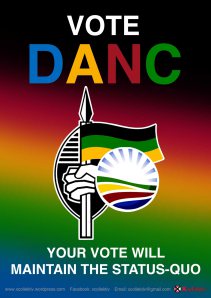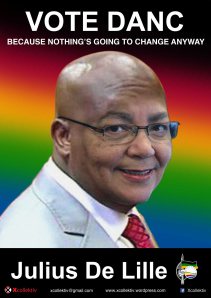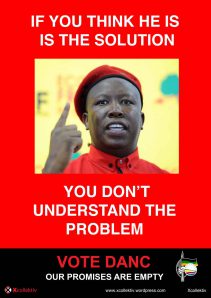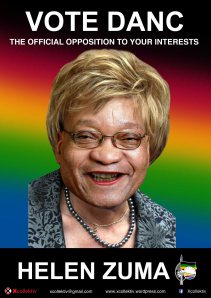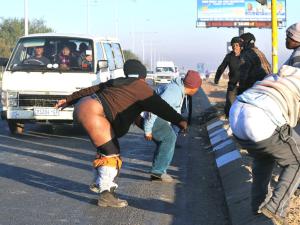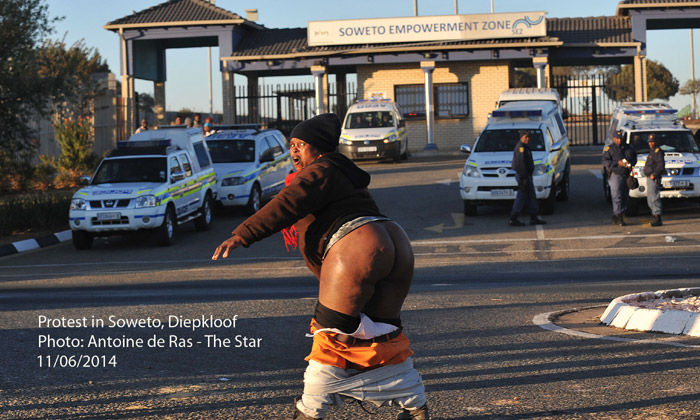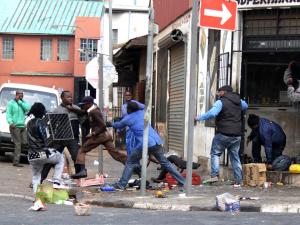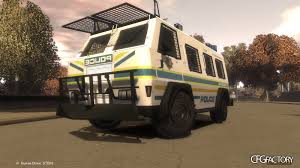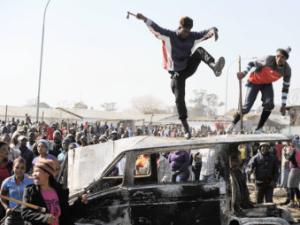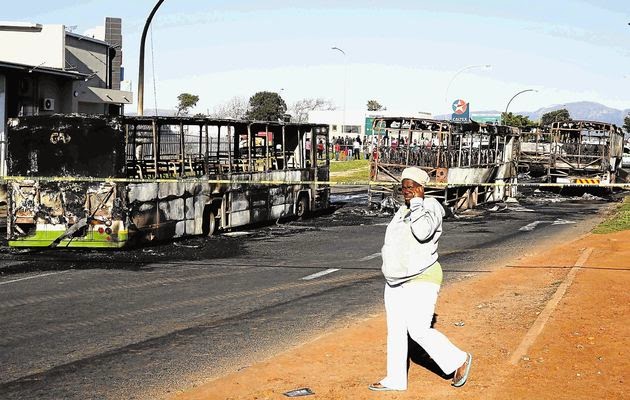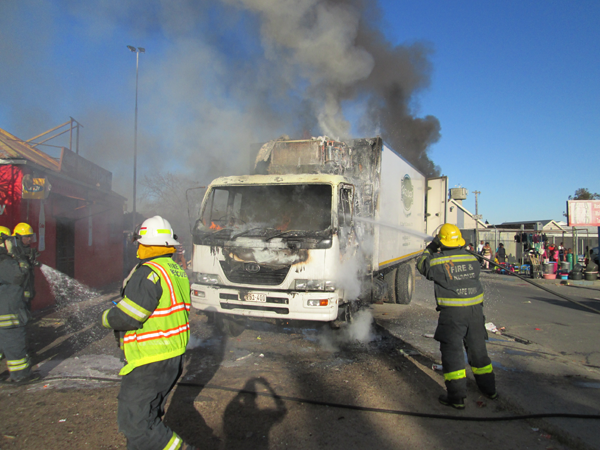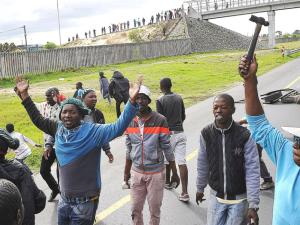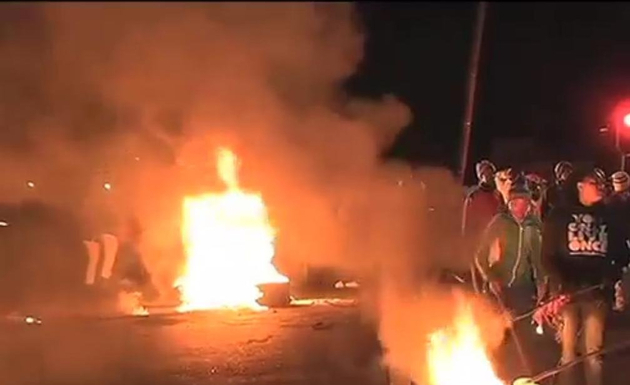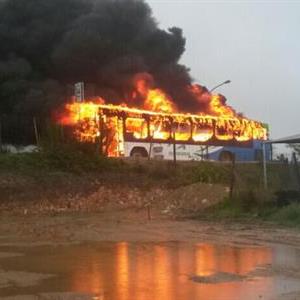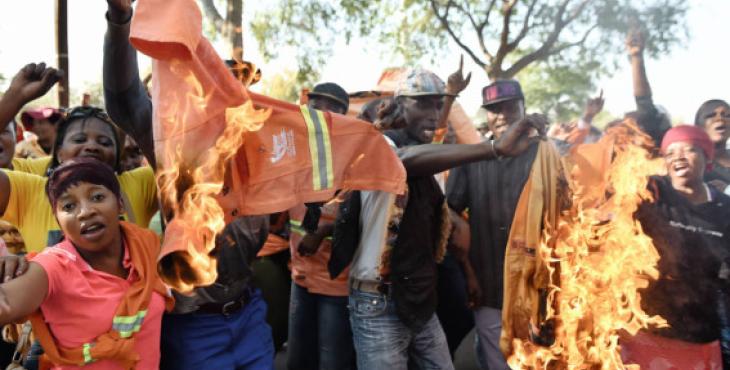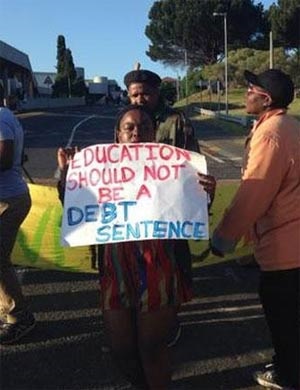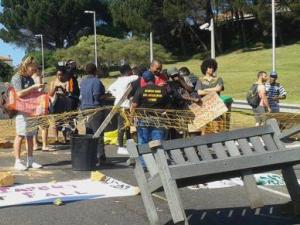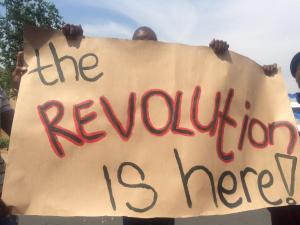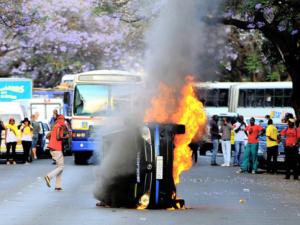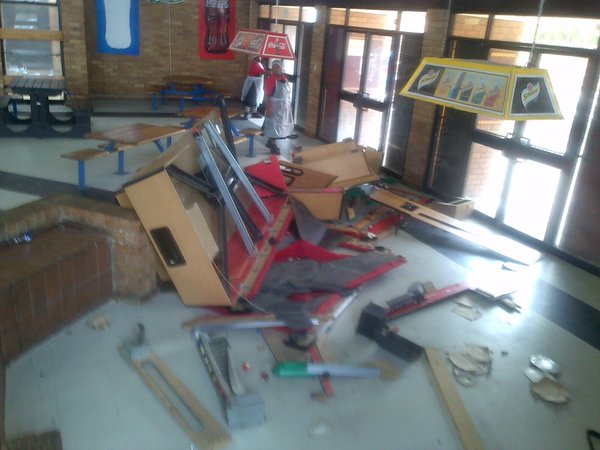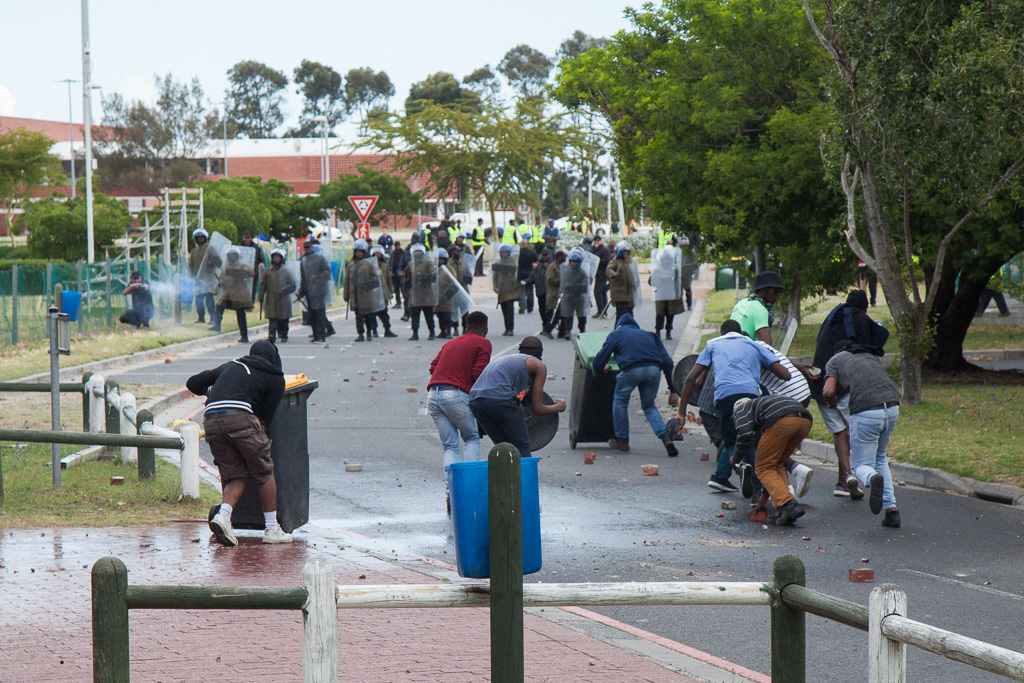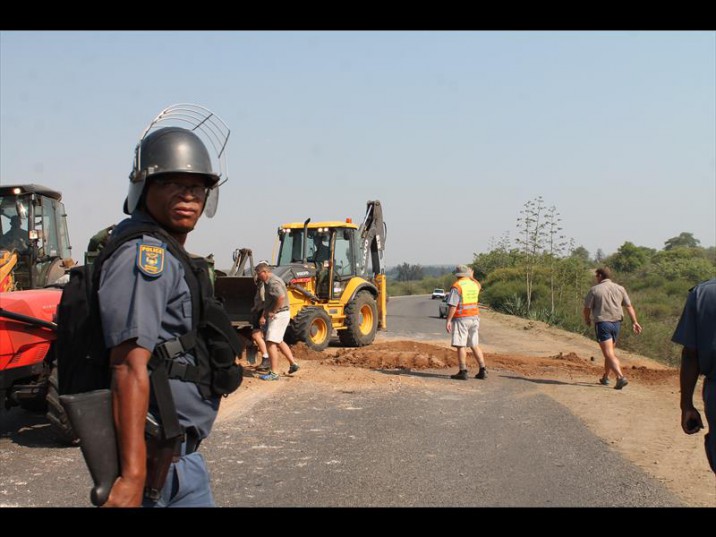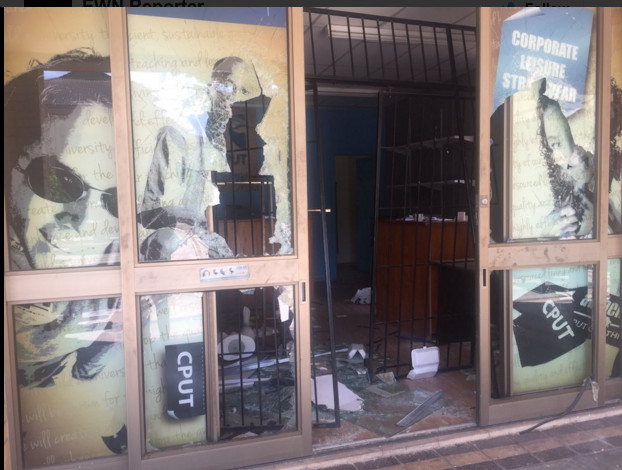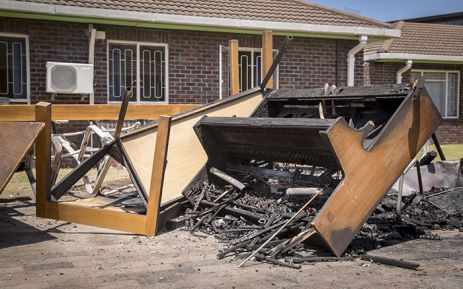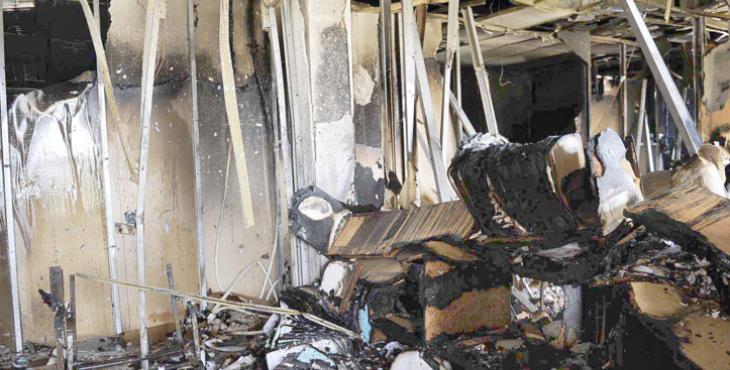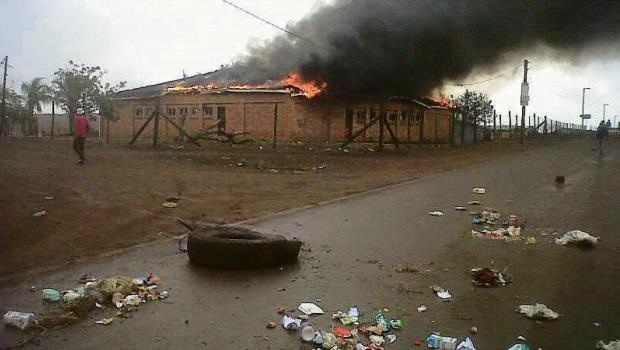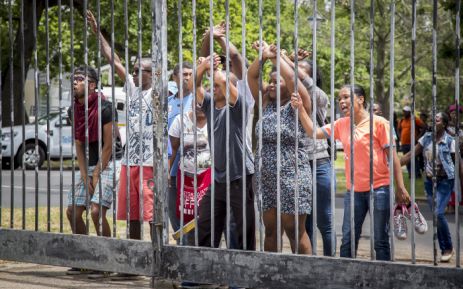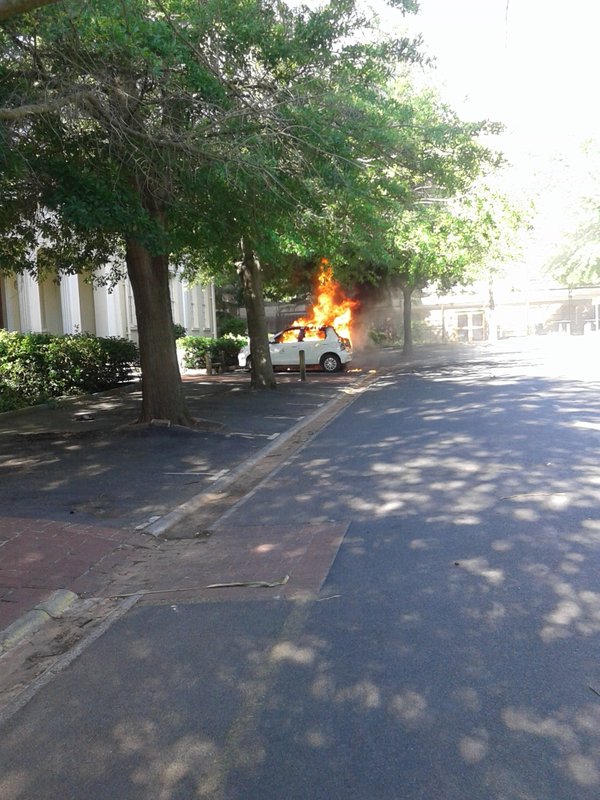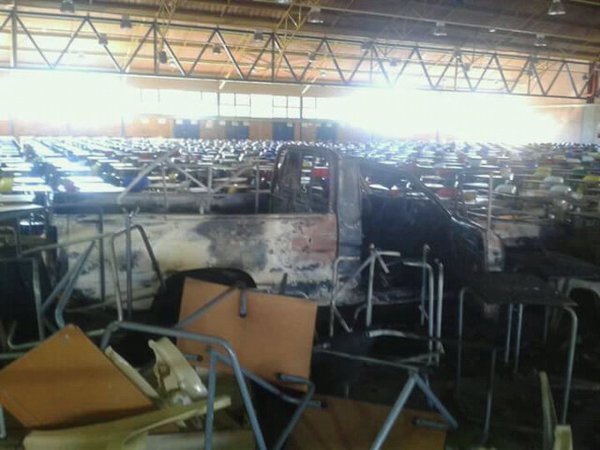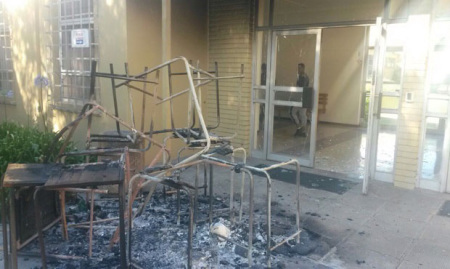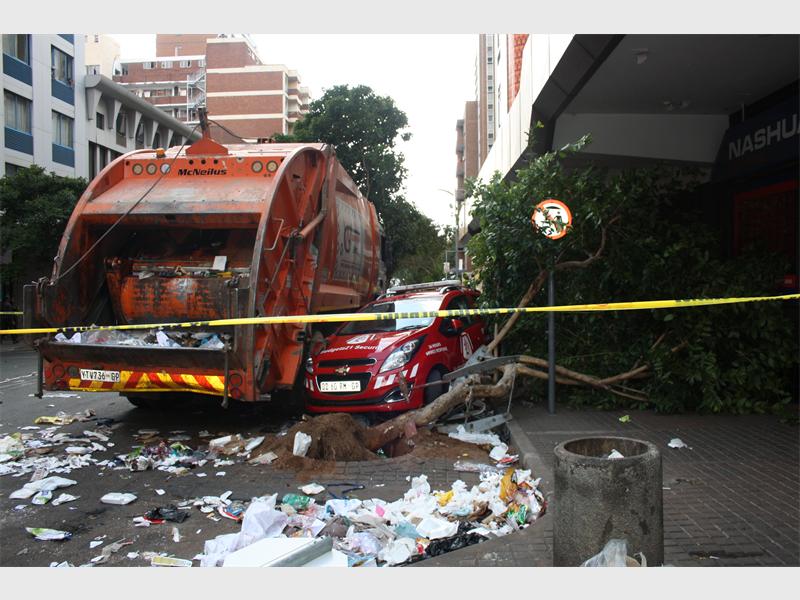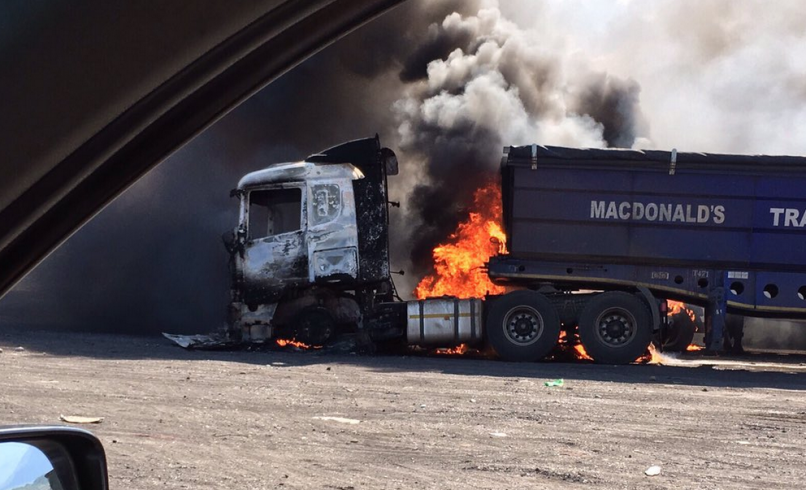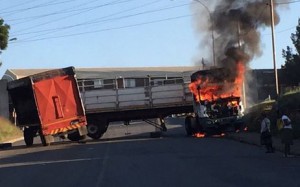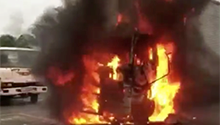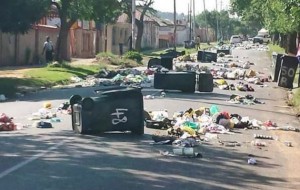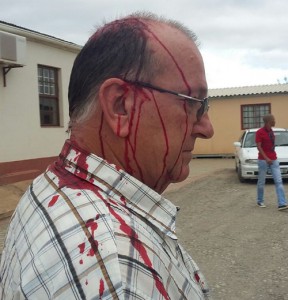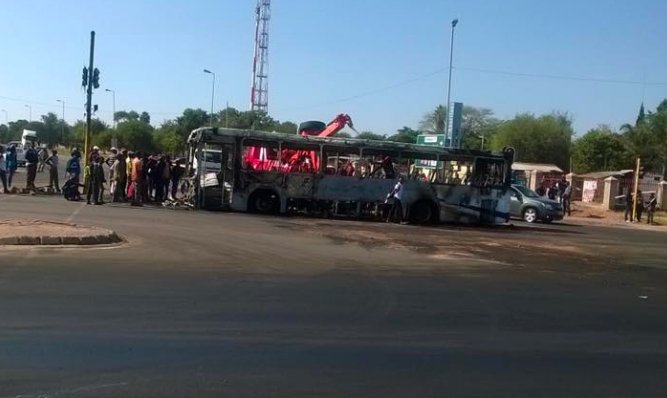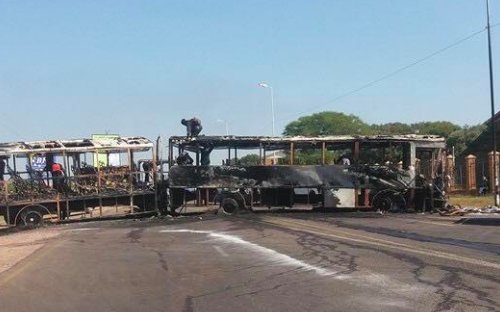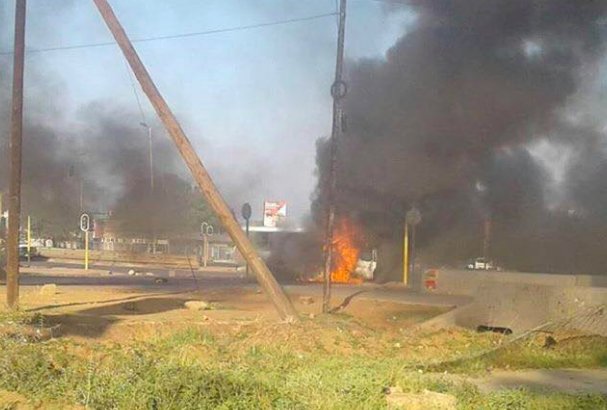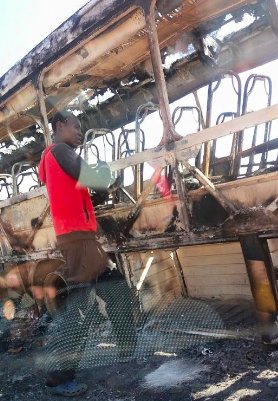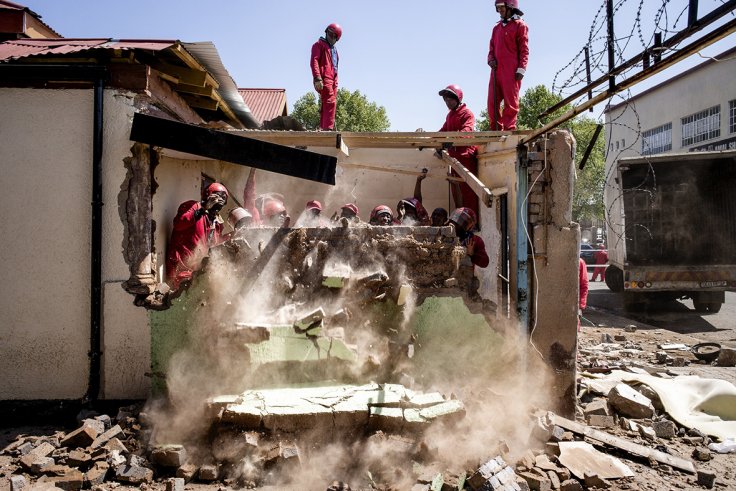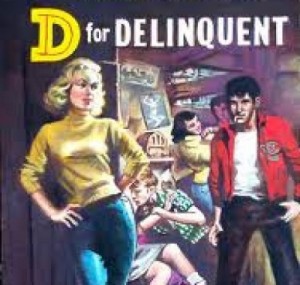A chronology of events
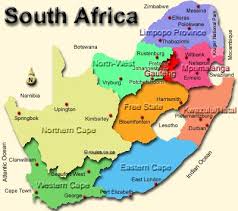 A chronology of links to various bits of information posted in the “News of Opposition” page from May 2013 up to May 2016
A chronology of links to various bits of information posted in the “News of Opposition” page from May 2013 up to May 2016
6/5/13:
South Africa: interesting report on the intensification of strikes (“”The perception among workers that wildcat strikes are an effective and legitimate way to seek wage concessions will increase their prevalence and intensity,” says the bourgeois risk analyst of Maplecroft)
8/5/13:
South Africa, Soweto: 2nd day of violence as residents reconnect cut electricity
14/5/13:
South Africa: platinum mine workers go on illegal wildcat strike ….Lonmin shares plunge 7% as a result of strike (more here)
15/5/13:
South Africa: wildcat strikers accept the manipulations of the unions and end their strike
21/5/13:
South Africa: Mercedes wildcat strike of 2 days finishes
23/5/13:
South Africa: strikers still on illegal strike after they were shot by rubber bullets on Monday (more here)
24/5/13:
South Africa: wildcat strikers win a wage rise … Johannesburg: repression of “crimes linked to protests” – looting, etc etc.
27/5/13:
South Africa: workers in the chrome mines win their 11-day strike
30/5/13:
South Africa; wildcat strikes in 3 mines
1/6/13:
South Africa: wildcat strikes in mines spread
10/6/13:
South Africa: workers on wildcat strike sacked
12/6/13:
South Africa, Durban: construction workers block main road with stones to protest against unpaid bonuses …pserviced delivery protests elsewhere also block the road with stones and burning tyres
13/6/13:
14/6/13:
South Africa: 3000 – 4000 sit-in at Amplats mine …… strike of chrome mine at Glencore-Xstrata continues
29/6/13:
South Africa: cops fire stun grenades at anti-Obama demonstrators in Soweto …. (more here)
11/7/13:
South Africa: wildcat strike by gold miners
15/7/13:
South Africa: wildcat strike at Eksom
24/7/13:
South Africa: wildcat strikers at Eskom throw stones, smash vehicles
12/8/13:
South Africa: roads blocked and tyres burnt in protest against failure of police
16/8/13:
27/8/13:
South Africa: vets trash and loot civic centre; Communist Party condemns the “violence”
1/9/13:
South Africa, Soweto: residents block roads against power cuts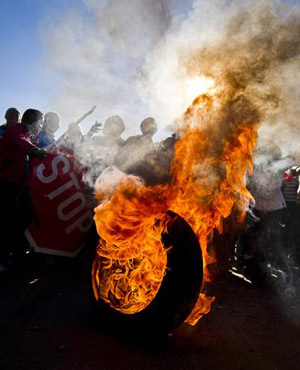
4/9/13:
South Africa, Western Cape: protesters close road with burning tyres
11/9/13:
South Africa, Randfontein: violent service delivery protests…simillar violent protest in Zuurbekom – 90 arrests (areas 28km apart, both in Gauteng)….“In mid-May, it was reported that Gauteng, South Africa’s smallest but wealthiest province which includes Johannesburg, had seen 650 protests over the previous five weeks, of which 40 had been violent.” – see here…3 diggers and an excavator torched during mineworkers’ strike
27/9/13:
South Africa: NUM scabs (surprise surprise) on AMCU miners strike against redundancies … rand faces losses….reports of “intimidation” and NUM members being stopped from going to work
30/9/13:
South Africa: cops fire rubber bullets during violent service-delivery protest
1/10/13:
South Africa: cop car attacked in housing protest; cops kill 17 year old woman (more here)
15/10/13:
South Africa, Bekkersdal: local police station stoned and molotoved; 3 cop cars and “disaster management” vehicle damaged….Malumele – 20,000 residents riot, burn down government building, block roads; shops looted and burnt
16/10/13:
South Africa, Bekkersdal: kids join service delivery protest; police station stoned
18/10/13:
23/10/13:
South Africa, Bekkersdal: riot against cops, building burnt and looted, rocks thrown, etc
25/10/13:
South Africa, Bekkersdal: service delivery protests continue – heavy cop presence (video here)
27/10/13:
28/10/13:
South Africa: brewery company uses the courts to suppress month-long violence of striking brewery workers as the unions, predictably, condemn the violence ”68 incidents of violence and intimidation had taken place since the strike started…These have included burning employees’ cars, firebombing employees’ houses and malicious damage to property, as well as anonymous intimidatory calls to working employees and their families.” Workers have been on strike for four weeks, demanding a nine percent salary increase across the board and equal participation in the board of trustees of the provident fund. SAB has offered a seven percent average wage increase with performance-related pay. The union distanced itself from violence and intimidation. “The Food and Allied Workers’ Union condemns the alleged incidents of violence and intimidation brought to the attention of its leadership by the management of SAB,” president Atwell Nazo said in a statement. He appealed to members on strike not to be party to any acts of violence and intimidation and to picket peacefully within the parameters of the law. “Fawu is a disciplined organisation and will remain as such,” he said.
30/10/13:
South Africa, Cape Town: shop and car windows broken, stores looted as 1000s protest in business district about housing (unfortunately, led by ANC councillors, which shows that there’s a growing movement that some of the scum-politicians recognise needs to be recuperated for their own benefit, even if this means they’re playing with fire)…Bekkersdal: riots cost local authorities 11.2 million rand (about $110,000) for repairs to municipal buildings
31/10/13:
South Africa, Randfontein: roads blocked in water protest
7/11/13:
9/11/13:
South Africa, Bekkersdal: 7 voting stations closed down after violence by locals…municipal building torched, roads barricaded
11/11/13:
South Africa, Western Cape: truck torched, field burnt & shots fired in farmworkers wage strike
15/11/13:
South Africa, Eastern Cape: shops looted, community hall set alight…Sasolburg: editorial complains about protests threatening petrochemical and oil companies’ interests
25/11/13:
South Africa: Group 5 experiences 30% increase in strikes ”Junaid Allie, Group Five’s human resources director, attributed this increase to a higher percentage of the workforce that was not unionised: 21.6 percent of the group’s 13 719 employees belonged to unions this year compared with 26 percent in 2009.” [my emphases]
3/12/13:
South Africa: some protest statistics for 2013
12/12/13:
South Africa: report on service delivery protests
21/12/13:
South Africa, Soweto: report showing that only 20% of electricity bills are paid
13/1/14:
South Africa, Brits: service delivery protest blocking roads met with brutal cops – 2 killed (more here) Undoubtedly cop violence has been encouraged by such statements as these, by former Archbishop Desmond Tutu, who said, in the aftermath of Marikana: “Under apartheid, we faced daily battles for the right to gather, to protest and to march. Now that these rights are enshrined in our law, we abuse them. When we march, we demand, we destroy and we loot. We care not whether our demands are reasonable, or what actions we take… our police appear powerless to stop tidal waves of violent crime and what we euphemistically refer to as “service delivery protests”, the latter regularly accompanied by violence and destruction committed with utter impunity….While we rightfully condemn the police for massacring 34 mine workers last week, and demand the use of non-lethal methods of crowd control, we also sympathise with the vast majority of good policemen and women who have battled to do their very difficult jobs” (here). Following the intensification of mystification brought about curtesy of the spectacle of Mandealer’s funeral, aimed at disarming opposition to the horror, we can expect even more violence committed with utter impunity on the part of the state.
This, from a text published in 1985, is prescient: “… for most of those in the ANC military camps, the future after the glorious event, if it comes, is more mundane: as the elite of the ANC police….Though bitter enemies, with profoundly opposing interests, the ANC and the white state are united in at least this: the infrastructure of the economy must be saved. Ownership, personnel and the style of administration are what is at stake here….For the ANC to come to power in South Africa then, at some point in time & preferably somewhere, the revolution must stop.” (from here)
14/1/14:
South Africa: ANC tries to calm anger in wake of 2 murders by cops
15/1/13:
South Africa, Pretoria: train services stop due to service delivery protest … Roodeport: roads blocked due to another service delivery protest…Brits another protester dies… (almost certainly killed by cops)
17/1/14:
South Africa, Johannesburg: service delivery blockades continue into 4th day … Brits: member of mayoral committee attacked at memorial service for 3 victims of cop brutality From an email from South Africa: “… everything is cracking up in SA. Numsa looks like it will split from Cosatu’s submission to the ANC – only to form a ‘worker’s party’. The townships are still in flames every day. At the moment, the pseudo-radicalisation of some unions and politicians does not seem to have any prospects of seriously containing the ongoing contestation, certainly not for the long term. The fate of all other opposition parties, some of whom had significant mass support, like the IFP, not to mention the defacto voting boycott by half the country, indicates that people are unwilling to chain their desires for change to political leaders any longer. Besides, in a country where revolutionary workerist rhetoric has been institutionalised by the oppressors for two decades, more of the same is unlikely to fool any but the moronic intellectuals who stand to benefit most from such bullshit.”
19/1/14:
South Africa, Johannesburg: one of Mandela’s 2m rand houses squatted and vandalised…Mbombela: service delivery protesters barricade roads….Brits: 4th victim of cop brutality dies…Marikana cop involved in these killings
24/1/14:
South Africa: various incidents in the platinum miners strike yesterday and today “Amcu protesters pelted cars with stones and barricaded roads in Rustenburg where a strike in the platinum industry entered its second day on Friday, North West police said….“This is happening despite the request by police as well as Association of Mineworkers and Construction Union (Amcu) days prior and on the first day of the strike that all those who are on strike must respect the rule of law including the rights of those who are not on strike…“We still urge AMCU leadership to take control of their members on the ground so that the police can continue to do their work in providing safety to lives and properties.” …Several incidents have been reported since the strike for better wages started on Thursday, said Ngubane….“A group of about 50 people barricaded a road between Jabulani Hostel and Khuseleka Shaft with burning tyres, stones and rubble yesterday (Thursday).”…He said in another incident in the early hours of Friday, a Chinese furniture shop was burnt to the ground at Wonderkop in Marikana….“The cause of fire is unknown at this stage and police are investigating a case of arson.”…He said cars travelling on the road between Chaneng and Shaft 12 of Impala in Luka were pelted with stones….On Friday morning, an Amcu coordinator told Sapa mine security used water cannons on strikers at Anglo American Platinum’s (Amplats) Khuseleka mine….“The situation is out of control, it is tense,” said co-ordinator Evans Ramokga….“Mine police (security) without any provocation sprayed workers with water. The workers had gathered to picket outside the mine’s operation.”…He said the workers retaliated by pelting the security staff with stones….On Thursday, Ramokga said the union had roped in more marshals to ensure that the strike was peaceful”…and more here: ”Hundreds of striking employees wielding fighting sticks and machetes and singing protest songs marched yesterday at Impala’s mines in Rustenburg, 116 kilometers (72 miles) northwest of Johannesburg. Members of the National Union of Mineworkers, displaced by the AMCU as the most powerful union at platinum mines, took refuge at NUM offices after being prevented from reporting for duty.
“We again saw large-scale blockading of entrances” at the start of the strike’s second day, Johan Theron, a spokesman for Johannesburg-based Impala, said today by phone. The company canceled its night shift for the duration of the walkout to avoid non-striking employees from commuting in darkness.”
23/1/14:
South Africa, West Rand: cops kill man during housing eviction protests… cops arrested
26/1/14:
27/1/14
South Africa: platinum mine companies stockpile 6 to 8 weeks worth of platinum customers’ demands to beat strike….regional politician calls for end to anti-scab violence
28/1/14:
South Africa, Limpopo: cops kill 2 more people as 1500 attack police station with petrol bombs and stones after cops killed 15 yr old; 15 cops, 19 cop vehicles damaged
29/1/14:
South Africa, Pretoria: 3rd SA student riot this week shuts down University…Limpopo: more about previous events (see 28/1/14)….Cape Town: harbour blockaded by fishermen supporting drowned poachers
30/1/14:
31/1/14:
South Africa, Western Cape: another service delivery protest with burning tyres blocking roads….successful blockade by strikers armed with “fighting sticks” against scabs going to work in platinum mining strike (more here)
1/2/14:
South Africa Bronkhorstspruit: protesters services warned they’ll be killed if they burn the main police station after burning a cop satellite station and a municipal building ” …Scores of protesters stormed the satellite police station in the area and set it alight. The police station, the Zithobeni municipal offices, two trucks and a tractor were torched while vehicles were pelted with stones. An eNCA television vehicle was among those stoned and damaged. Police used rubber bullets and tear gas to disperse crowds on Friday morning…..Scores of residents who gathered on a koppie overlooking the main road pelted stones at the police, set tyres and rubbish alight and barricaded roads with rocks, preventing police from entering the area. Mazibuko told the media on Friday that the community’s threatened burning of the police station they had asked for proved they were not appreciative. “All along they ask for a police station and the government does its best to give it to them (then) they (want to) burn it down.”
“(here…and more here)…..West Rand: another service delivery protest blocks the roads…Hammanskraal: ANC burn down the homes of demonstrating unemployed
2/2/14:
South Africa : President Zuma gives reasons why he should be restrained
4/2/14:
South Africa: rubber bullets and stun grenades fired by the cops while platinum miners strike attack cops and scabs (more here) …platinum miners strike costs the country 36 million dollars a day … the house of a former community policing forum member is burned close to the police station burned last week (see 1/2/14)…report on the student movmement (more about this movement here)…as people revolt partly because the cops continue to shoot them, a demagogue warns police that ordinary people will revolt if they continue to shoot them
5/2/14:
South Africa, Sebokeng more burning tires etc. blocking roads in protest against the construction of housing ….fhootout between those who want to tear down the barricades and those who want to keep them leads to death (apparently this guy was killed by an ANC shit: see this)….South African Police Service (SAPS) use stun grenades and rubber bullets to disperse 3,000 strikers carrying traditional weapons near Amplats’ Khusuleka shaft…East London: hundreds of municipal workers set fire to city hall
6/2/14:
South Africa: COSATU complains that the cops did not repress the anger of the strikers ..miners strike has cost the bosses $250 million so far…protests in Sebokeng continue after the killing yesterday of a demonstrator by the ANC…Majakaneng :shops looted, cars burnt , house of a local MP vandalised after cops fire rubber bullets at demonstrators (…more here..…” …residents had set alight a house belonging to a councillor earlier on Thursday.…On Wednesday, acting Gauteng police commissioner Lt-Gen Lesetja Mothiba said police had dealt with 569 protests in the past three months, of which 122 were violent, in the province. A total of seven buildings had been set alight in Bronkhorstspruit this week and more than 50 people arrested.In Sebokeng on Wednesday, a protester was shot dead and another was wounded during demonstrations in the area…. ”)… bureaucrats and diverse interest groups claim to have found a solution to the protests in Bronkhorstspruit ….Hebron : burning barricades …West Cape: cops bombarded with stones in housing protest
Sir Lowry’s Pass, West Cape
7/2/14:
South Africa : cops kill platinum mine strikers…roads barricaded in Hebron…. official report saying that there are at least 5 demonstrations per day in the country, and that 9 more people have been killed by cops this year than over the equivalent period last year …platinum strike: various mining companies decide for a united front in the face of their conflict with the demands of the strikers …minister praises his own protection racket … the government is worried about protests …demonstrators against lack of water supply block the road in Majakaneng
8/2/14:
10/2/14:
South Africa: report on student demonstrations…also this report by a top cop admitting that the Marikana massacre was meant to end the strike : “ The plan is that we intend to ensure that today we end this strike. We intend to make sure that we end it in the best way we can, in an amicable solution.” Mbombo agreed with Budlender when he put it to her that it was not supposed to be the police’s major concern, whether the strike continued or not. “It is important that when someone in a very senior position like yours, speaks to the public on television, you must choose your words carefully. I am sure you agree with me that the matter of the strike was between Lonmin and its employees,” said Budlender. “Why did you say to the TV interviewer and to the world at large that as the SAPS (SA Police Service), today we intend to end this strike?” Mbombo said her intention was not to end the strike. “It was a slip of the tongue, it was not our intention to end the strike.” As someone wrote: “choose your words carefully” = ” “we all have to at least claim that we believe the pretense that we perform is not complete crap about a clear case of mass murder in a desperate attempt to bury the facts” .
Amd another article showing how apartheid, past and present, hgas helped the’ANC: ”…the ANC can thank apartheid that this sort of widespread discontent has not manifested into a consolidated mass movement to dispose of the provincial government. Apartheid spatial planning means South Africa’s biggest economic hub is a disparate collection of hotspots — it simply has no central focal point where the urban and rural poor are massed in one geographic area. Rather, they are dispersed between Soweto in the South and Alexandra in the North and, between and around, in areas like Diepsloot and Orange Farm. Traditionally, cities are not structured in this way. The poor and destitute generally occupy a single place; they are physically concentrated into a few areas, usually closer together than the fragmented and displaced collection of artificially created townships that constitute apartheid’s legacy. Had that happened, the ANC would have an entirely different problem and a far more serious one at that. Not only would grievance be shared, its effect would be multiplied and far grander, because concern is heightened in an environment where it is collectively felt. The 2011 Gauteng City Region Review produced a map tracking service delivery protests in the province and across the country. Even back then, Gauteng leaps out as the hub for such demonstrations, a mass of sporadic uprisings. A more concentrated view of the province, however, shows that, the various hotspots are fairly dispersed, largely to the South and the North and along the provincial border. As things stand, those expressing their unhappiness are forced to do so in micro protests, which spring up, on and off, throughout the province. There is no amalgamated, macro protest where those unhappy with the ANC’s performance have been able to unite on a sustained basis, and helping to preventing that is the fact that there exists no single geographic epicentre. Where is Gauteng’s Tahir Square? That has been the ANC’s saving grace. Thus, the ANC and those that would represent it in government are able to move from one isolated incident to another, addressing each incident as though it were an aberration, particular to one area, ward or municipality. However, were those people able to meet up across the city, given the scope of a wide range of common grievances, the environment would be rife for a far more meaningful assault on the ANC’s legitimacy.It is ironic, indeed, that the one thing responsible for so much poverty and inequality in South Africa, and the rational that underpins the ANC’s national democratic revolution, should be the one thing that prevents a consolidated response to government’s failure to properly address its legacy. Apartheid has allowed the ANC both to define its agenda and to dilute any response to it; it is the one thing keeping service delivery protests random and unfocused.” Though interesting, this is somewhat overstated – as if under pre-democratic South Africa the thousands of revolts in different areas and different aspects of daily life didn’t threaten the system.
13/2/14:
Afrique du Sud : 2 reports about violent demonstrations (2nd here)…Zuma believes that the platinum strike could destroy the economy…platinum market could be in deficit at the end of the strike
16/2/14:
17/2/14:
South Africa: text indicating that South Africa is in a state of simmering revolution…councillor’s house set alight, police car stoned in service delivery protest……University classrooms damaged, 70 students arrested….Amplats threatens redundancies…sues union for strike costs
18/2/14:
South Africa: “xenophobic” riot erupts after Pakistani shop keeper kills 10 yr old; foreign shops torched Although there’s a racist element to this, insofar as only foreign shops were attacked, it seems more like outrage at a petit-bourgeois mentality gone psychotic (see also entry for 19/2/14, above)
19/2/14:
South Africa: report cites 4180 reported cases of police torture and assault in one year (the financial year 2012-2013)….barricades, car and tyre burning against dismantling of shacks…..more clashes over Pakistani clubbing to death of 10 year old for stealing sweets
20/2/14:
South Africa: scab set alight in miners’ strike….Northam Platinum suffers first loss for 15 years as result of strike…students clash with cops…..ANC student union calls for all striking teachers to be sacked
21/2/14:
South Africa: UKZN students in clash with cops again……..silly but interesting report on cops and protests
24/2/14:
South Africa, Boksburg: road blocked with burning tyres, rocks etc. asleaders meet with cops … platinum miners strike “enters fifth week with no end in sight”…company losses in real time
25/2/14:
South Africa: arrests of strikers who attacked scab
28/2/14:
South Africa, Soweto: protesters against pre-paid water meters block roads etc.….Lonmin use text messages to strikers in propaganda war against platinum miners strike
3/3/14:
South Africa: NUM scab beaten up and hospitalised by platinum miners on strike
5/3/14:
6/3/14:
South Africa: another NUM scab hospitalised…COSATU issues press release showing contempt for the strikers… new film about Marikana massacre“…Four mortuary vans were ordered in advance and …ambulance services and emergency medical personnel were apparently kept out of the killing fields for an hour after the shooting had stopped…documents clearly reveal the attempts by Lonmin to criminalise the strike by rock drill operators without whose labour no mining can take place. One of the most damning of these is an email by Ramaphosa maintaining that the action of the miners is not a strike but a criminal act.”
7/3/14:
South Africa, near Johannesburg: 1000 residents block main road in another service delivery protest…more pig brutality
11/3/14:
South Africa, Eastern Cape: another service delivery protest – roads blocked, cops stoned…..Some reflections on the Amplats miners strike by SK from South Africa: ”Although I have not been following events very closely, it seems to me the progress of the unrest in the platinum & gold mines over the past two years confirms the theses advanced in Kammunist Kranti’s Self-Activity of Wage Workers. The workers are being brought out on strike by union officials who want to reinforce their own influence; wage negotiations which end in annual increases below or barely in line with inflation result in strikes lasting for weeks which cost workers more than they gain. And then of course companies use this as an excuse to push through retrenchment of thousands during restructuring. Whereas the wildcat strikes which led up to Marikana displayed tendencies which pointed towards a move from quantitative to qualitative struggle (see the ‘Post Marikana Notes‘) the moment workers accepted official representation, even by ‘independent’ unions, this was recuperated into mere posturing (the current platinum strike called by AMCU where the wage demand of R12 500, originally raised by the Marikana strikers, has become a token of false militancy used by the union to bolster its image of radicalism). Of course there is also pressure coming from the base to table these demands but the fact that it is being channeled through corporatist legal structures necessarily limits the continued intensive and extensive escalation of the struggle (unlike what happened in the wave of wildcat strikes before and after Marikana) which alone could open the possibility of victory. As it stands now, the AMCU officials, after wearing down the strength of the workers on a hopeless strike which they cynically called for self-serving purposes, will convince their membership to accept a ‘realistic’ offer, 3 or 4% more than is currently being offered by the bosses. This is already starting – seven weeks in, with AMCU revising its R12 500 figure, originally demanded for immediate application during the wildcat movement, saying the number can be reached in four rather than the three years it initially insisted on. Through this subtle manipulation they maintain their image of a democratic union which does not push through unpopular settlements like their competitors NUM but merely follows a mandate given by the rank and file during consultation. But if disgust and anger at the blatant manipulation of NUM and COSATU has undermined the basis for their powers of recuperation, dejection and dissapointment due to deliberate defeats will do the same thing with AMCU, and its rapid rise will fast fizzle into exhaustion and apathy. As happened in the miner’s strike of 1946 (in which an identical number of workers — 70 000 — suffered a crushing defeat due to the underhanded tactics of their own union) the success of AMCU in engineering the defeat of the workers will be their own downfall.
The primary question for me in this sordid story is: what can we do to counter the recuperation of the enthusiastic fighting spirit we see so terribly doomed to destruction all around us? How can we warn our fellow proletarians whose tentative steps towards self-activity, as briefly taken in the independent strike comittees surrounding Marikana, always fall into mines, quicksand and booby-traps, against the danger that surrounds them? What are the best ways to propagate the theoretical and practical tools which could arm them? Clearly, what we have been doing has not worked. There are so many modes of struggle, from sabotage & go-slows to the ‘checkerboard strikes’ developed in Italy during the 70s, that might be more appropriate to the situation of today. In what ways could they be appropriated? In what ways are they unsuitable? How would they need to be modified? How might the challenges to their application be overcome? Who is to do these experiments? What entirely new methods are already being explored? How might they be altered and improved? Could aspects of the old and new be incorporated into an effective synthesis? These are some of the questions that need to be put to the revolutionary movement. Who will do it? “
I responded: ”If you don’t want the miserable history of ’46 to repeat itself, I’d say that the best way to find out how much is true in what you say and how the miners themselves could make use of what is true in what you say is to go along to speak with some striking miners (the proof of the pudding is in the speaking first of all…). How feasible this is (geographical distance, where you would stay if you stayed for some time, possible antagonistic reactions from strikers, etc.), I don’t know, but I know that I only really found out about the UK miners strike, whose 30th anniversary began a few days ago, by going along to picket lines (providing beer to ease the awkwardness) and chatting with miners themselves. Contrary to the media image, many were quite critical of the union. “
17/3/14:
South Africa: interesting business report on Amplats strike: “Platinum strike is no run-of-the-mill wage dispute”….statistics record an average of 34 protests a day since the start of the year
20/3/14:
South Africa, Cape Town: several service delivery protests, clashes with cops…over a billion dollars lost to capital by platinum miners strike SK from South Africa wrote this about the union: “…quite frankly I don’t give a damn whether AMCU ends up undermining its own social base through its double dealings. The tendency for all forms of proletarian representation to do so is by now quite well established around the world. I don’t think it’s particularly something to mourn about. During the course of which of course the rank and file will have plenty to complain of, just as most people in democracies are quite critical of all politics, but this criticism without action is all they are allowed and as long as they remain within the realm of the possible the talk is just talk. From what others who have gone to the area told me, even during the wildcat strikes when AMCU was just rising to power, the miners were very wary of all unions, but that didn’t stop them from joining it en masse and placing their struggle within its hands, to no discernible benefit whatsoever (the fact that this is a ‘protected’ strike changes little — most miners fired during unprotected strikes are rehired as long as they return to work in the end anyway, although the bosses try, with varying degrees of success, to reset their accumulated benefits). The proof of the pudding is in the doing. Of course it’s important to understand the whys and wherefores of the doing or non-doing, but these reasons actually permeate the conditions we all find ourselves in, and as such can be investigated everywhere.”
24/3/14:
South Africa, Cape Town: more tyre-burning protests
25/3/14:
South Africa: arrests over February service delivery protests….whilst ANC tries to boost its irredemably discredited “radical” image….as genuine service delivery protesters threaten intensification (see this, about previous protests)
31/3/14:
South Africa, Cape Town: journalists attacked, cops pelted with stones, etc., rocks and burning tyres used as barricades in angry protest against house demolition; cops use rubber bullets and stun grenades…Hammanskraal: bus & car burnt in protest against fare hike; most township inhabitants refuse to work
Hammanskraal
1/4/14:
South Africa: fishermen blockade port
2/4/14:
South Africa, Cape Town: wildcat bus strike
3/4/14:
South Africa: 48 major service delivery protests since January
7/4/14:
South Africa, Boitumelong: mayor’s and 2 municipal officials’ houses torched as protests continue (video)…protesters demand the municipality be disbanded
8/4/14:
South Africa, Boitumelong: community hall torched…12 police houses burnt down (video)…protests spread to neighbouring townships (video)
9/4/14:
South Africa, Christiana: teenage looter shot dead by shop owner during riot…road blocks prevent people going to miserable situations (school and work)
10/4/14:
South Africa, Vlakfontein: protests against power cuts block main highway, burn tyres…Rustenburg: NUM scab’s house burnt down…Boitumelong, Christiana: videos of riots from 6th April to today, plus numerous links to various articles…Wolmaranstadt: 5 shops looted during protests
15/4/14:
South Africa, Olievenhoutbosch: residents block road in protest…Kliptown, Soweto: another protest (against rent rises)….as report declares that 56% of children live below poverty line
16/4/14:
South Africa, Pretoria: squatters vow to spoil votes “It seems the only language this municipality understands is violence and vandalism. We have done this the gentleman’s way for too long. Now we are going to be outrageous to get what we deserve”
23/4/14:
South Africa: platinum strike costs bosses about 1.3 bn euros
25/4/14:
South Africa, Cape Town: 2 solid waste plants on wildcat strike, as municipal workers’ union threatens widespread strike “At least 12000 Samwu members would down tools if the union decides on the move….Khumalo said they felt aggrieved about the lack of action against line managers who fail to implement the decisions of senior managers….The seriousness of the situation was marked by work stoppages at the Athlone and Woodstock solid waste plants last Friday…..Workers demanded action against ill-disciplined managers who refused to obey orders to implement important decisions….Khumalo said the union would, however, not go on strike until after the elections.”
28/4/14:
South Africa, Rustenberg: 4000 loot entire shopping centre; several houses & community centre torched as miners strike hots up ”Police have confirmed an entire shopping centre next to Impala Platinum’s number 9 shaft in Rustenburg was looted”…4 arrested…sports minister forced to abandon election rally as strikers throw stones at cars…some business analysis of platinum prices related to strike
30/4/14:
South Africa: an economist’s assessment of miners’ strike
1/5/14:
South Africa, Marikana: ANC offices torched, President Zuma’s campaign visit cancelled
2/5/14:
South Africa: miners strike to end soon…?
5/5/14:
8/5/14:
South Africa, Alexandra: electoral commission centre room burnt by local residents…as voter abstentions increases by about 10% by my calculations…”…of 1.9 million voters aged 18-19, only one in three is registered to vote” – from here….over 250,000 spoilt ballot papers…more election stats…and more news of attacks on voting stations, suspected vote rigging etc. “ IEC centre was burnt down by angry residents, who alleged that there was vote rigging….The protesters targeted state property, torching and vandalising buildings including a yet-to-be opened clinic and council offices… Alexander yesterday after chaos erupted in the township. They were protesting for marked EFF ballots that were found dumped in Alexander and were asking for a recount of votes….Yesterday a large contingent of police was seen patrolling the streets and potential violent hot spots. “We’re relieved the army came this morning,” said a policeman who asked not be named as he’s not a spokesman…. Buildings owned by council were burned down…Tensions started mounting across the country after voting on Wednesday.… two people were arrested after they stormed a voting station in Tzaneen, Limpopo and attacked police on duty, election officials and party agents, and damaged voting material….On election day there were five protests across the country – in Maruleng in Limpopo, Gugulethu in Gauteng, Botshabelo in the Free State, eNgcobo in the Eastern Cape, and Barcelona in the Western Cape….There have also been media reports of a group of people in Bekkersdal storming a voting station and attacking police on duty, a group of IEC officials, and party agents accusing them of marking ballots and smuggling it into the hall….And in a separate incident a man was arrested in Bekkersdal for allegedly setting alight the IEC’s tents in the area on the eve of the elections.”
And from here: “Julius Malema called for calm. “People in Alexandra, we call on you to accept defeat. Do it in a dignified manner,” said Malema, a populist politician who founded the left-wing EFF after being expelled from the ANC. “Don’t put South Africa into ashes because of election outcomes.”
Of course, abstaining from voting is not in itself indicative of any intensification of class struggle, though it does indicate a basic contempt for bourgeois politics. This, from SK about Abahlali Basemjondolo’s decision not to call for abstentions in the election, is an interesting take on the whole question: “I agree with them that something further than abstention is necessary. It’s purely defensive — equivalent to a hunger strike or the withdrawal of labour — to boycott elections on the basis that no political party has the ability to keep even a fraction of the empty promises they make. If the more rebellious proletarians (whether workers, students, homemakers or unemployed) don’t initiate some real democracy – some form of mass democratic dialogue – by occupying large buildings or any other large area, and attack both the dictatorship of the media, and the confusions of the Union bureaucracy, as well as the limitation of the protests to special interest demands, then any rejection of the dominant notion of democracy will appear abstract, an argumentative manoeuvre. But this new move of AbM is by no means an advance beyond the limitations of abstract criticism. Rather, it exemplifies the contradictions of such criticism which inevitably engender the practical submission characteristic of all fatalism.
Besides the of contradiction of favouring organisations such as the IF [Samotnaf note: this was written before AbM decided to “tactically” support DA]– who have murdered thousands more in KZN than the ANC (some 4500 compared to 1500, according to the TRC report), were the ruling party in their province immediately after 1994, and are the sole opposition with any chance of victory at the polls — as the ‘lesser evil’, this perspective reverses reality for the simple fact that the career of the ruling party has not been murderous because the role has been occupied by the ANC; rather, the ANC has had a murderous career because it has occupied the role of the ruling party. Any other racket responsible for managing an fundamentally murderous capitalism throughout the country for 20 years would necessarily end up with blood on its hands. To court any party whatsoever is to court disaster, more or less brutal as the case may be.
Even on purely tactical grounds the move is unsound. The effect which a few thousand members of their organisation will have on the elections is statistically minimal. If it is to have any chance of deposing the ANC at all, it would have to be for the benefit of the Buthelezi and the IFP, which as we know has an even more bloody history of repression. As for the ‘guarantees’ they are demanding from their potential patrons, they of all people should know that the only guarantee in politics is the failure of politicians to stick to their promises. The entire legal framework is built around such irresponsibility, if there was anyway to hold representatives responsible through the courtrooms it would have been done long ago.
That said, they will continue to go their own way regardless of who they vote for, so as far as diversions go this will not prove to be a particularly disasterous one. All the same, the fact that the most theoretically advanced mass organisation has adopted this position is an indication of how far the revolutionary movement as a whole is from the sort of democratic initiative that would move us closer towards any potentially positive outcome.”
12/5/14:
South Africa: 4 killed during miners strike “Two non-striking employees died near Lonmin’s Eastern Platinum mines in an attack that involved a machete, Livhuwani Mammburu, a spokesman for the minority National Union of Mineworkers, whose members aren’t taking part in the stoppage, said by phone. Another laborer and his wife were killed at a house, he said.”
14/5/14:
South Africa: residents block roads near Marikana with burning tyres to demand release of 16 people arrested, amongst other demands (more here)
15/5/14:
South Africa: interesting report on platinum miners strike…near Marikana: 16 people released after arrest given heroes’ welcome, following blockade on 14th May when councillors house was set on fire
20/5/14:
South Africa, Rustenberg: a matter of death & death
22/5/14:
South Africa, Cape Town: “Remember Marikana” graffiti on statue of Rhodes, COSATU headquarters and ANC offices ”statement reads: “In honour of all black UCT students whose land was stolen from their ancestors and whose natural resources were privatised by one Cecil John Rhodes….“Tokolos reminds us that colonialism and the massacre at Marikana are not only interconnected but part of a long history of disposession, exploitation and murder of blacks (and especially poor blacks).”…. interesting, though confused, interview with Marikana survivor now on strike at platinum mine
30/5/14:
South Africa: attempts by bosses to undermine strike fail, as platinum industry loses about $2billion (more about strike here) “We understand that the issues are not simply collective bargaining issues but go to the heart of the migrant labour system and the apartheid spatial planning which we are still dealing with 20 years into our democracy.”…metal and engineering unions threaten wage strike
2/6/14:
South Africa: interesting mainstream business report on platinum strike ”…the government’s credibility as an honest broker has been severely compromised by the involvement of senior ruling party officials in the mining sector as shareholders, as well as its political alliance with the Congress of South African Trade Unions (Cosatu). The union federation’s National Union of Mineworkers (NUM) affiliate has been superceded on the platinum belt by the Association of Mineworkers and Construction Union (Amcu), a union that has made it clear that it sees the government as a tool of mining capital that is biased towards the NUM…Reports that the African National Congress’s solution to the conflict within Cosatu could extend to choosing its leaders for it, and “redeploying” those whose presence is considered divisive, will not help restore the governing party’s credibility on the platinum belt. The same stresses that caused Amcu to break away from the NUM are manifesting in other sectors of the economy that are dominated by the private sector, especially heavy industry, and the ANC’s response will be noted by Amcu……What is required is a mediator who is able to convince both sides that compromise is the only way out of the hole they have steadily dug themselves into. If the mines are in dire straits due to the anaemic dollar metal price and soaring rand costs, and therefore cannot meet Amcu’s demands without bankrupting themselves, what other options exist to help their undeniably hard-pressed and overindebted employees make ends meet?…One option is to increase the “social wage” — improved housing and living conditions for the miners and their families — without the mines having to fork out cash they do not have. This would require the government to come to the party in terms of service delivery to mining towns and the informal settlements on the platinum belt.”
3/6/14:
South Africa, Western Cape: molotovs thrown and tyres burnt as evictions of shack dwellers continue (more here, here, here andhere) …Johannesburg: wildcat bus strike…as footwear workers go on official strike …whilst there’s a possible end to platinum strike looming as government intervene…business report on damaging effect of strikes (see also here)…meanwhile, a policeman’s lot is not a happy one
5/6/14:
South Africa: interesting report on daily life of platinum mine strikers
6/6/14:
South Africa, Western Cape: residents pelt cops with rocks in housing protest “”police officers in Malmesbury have had to duck and dive this morning, as they come under sporadic attack by angry residents who are protesting over housing issues. ..Some protesters are pelting policemen with rocks… …Schools in the area are closed for the day and some children are watching the violence play out….The police’s Lorencial Johnson says, “Early this morning riots occurred where about 800 protesters took to the streets to demand better housing…” (more here and here) …”Police arrested 26 people for public violence during hours of running battles with protesters in Malmesbury yesterday after Lingelethu residents took to the streets and tried to burn down a municipal building…Residents, angry at a perceived halt in the rollout of government housing in recent years, succeeded in seeing the N7 closed for most of the morning and early afternoon. The N7 is adjacent to the township….There were riotous scenes as hundreds of protesters charged at police armoured vehicles while pelting journalists and Public Order Police with stones. Roads were blocked with burning tyres and municipal vehicles vandalised….Police responded with tear gas, rubber bullets and stun grenades. A police helicopter circled low.”
7/6/14:
8/6/14:
South Africa: platinum strike talks break down; “country moves closer to recession”
10/6/14:
South Africa, Rustenburg: scab car torched
11/6/14:
South Africa, Durban: taxi strikers in conflict with cops “There were cases reported of vehicles being damaged and shops being damaged.”Earlier, police had used teargas and stun grenades on the 300-strong crowd.” more here...Soweto: cops tear gas protesters for mooning to express their anger about their shitty life
the moon in june…
the law is an ass:
“The police’s Kay Makhubela said, “They were taking off their trousers and showing motorists their bottoms and that’s why we had to use teargas to disperse them”.
… platinum strike continues as stockpiles run low.…interesting report on daily life of miners on strike “He laughs before telling me he and his neighbours don’t have to worry about rent as they “own” the houses in which they live because “we kicked in the doors” and forcibly took possession after they were built in 2009. “The municipality bulldozed the shacks of the people who lived here, but when the houses were complete they said they were built for people who lived in another section of the township, so we just occupied them.”...Mr Sukude’s house has prepaid electricity and the six shacks are connected by extension cords. After much hesitation, both men tell me they don’t pay for power. “Some municipality employees bridged it for us, at a fee,” says Mr Zimbi.”
12/6/14:
17/6/14:
South Africa, Soweto: roads blocked with burning tyres, rocks thrown in 2nd day of electricity cuts protest (more here and here)…as the platinum miners strike apparently nears its end, “the devil is in the detail”…..and so the strike continues …..a mainstream look at AMCU’s development and prospects…cops flee from informal traders protest ”Members of the Tshwane Barekisi Forum were protesting in the city against alleged harassment and abuse by municipal police. Hundreds of protesters, men in red Economic Freedom Fighters attire, carried sticks, sjamboks, and rubber pipes. The metro police cars were hurriedly removed from Lilian Ngoyi (former Van Der Walt) Street and taken to Isivuno House, the municipal head office….Members of the forum called for the resignation of Tshwane mayor Kgosientso Ramokgopa, alleging that he had failed them. Some in the crowd waved placards stating “Ramokgopa is a liar, the most corrupt mayor ever”, and “Ramokgopa must step down”…Earlier in the day, shops in central Pretoria closed their doors as hundreds of hawkers protested in the city centre….Traffic was gridlocked as hawkers sat, danced, and sang on the roads while frustrated motorists hooted in despair. Police officers were at the scene but did nothing to stop the protesters. Some of the protesters overturned rubbish bins as they marched along Paul Kruger Street. In January, the forum claimed that Foster Jan Rivombo, a vegetable vendor, was shot dead in the city for refusing to hand over his stock to Tshwane metro police.” EFF involvement makes me doubt the element of independence in this movement of street vendors, though it’s hard to tell. Nevertheless, as SK wrote, about the EFF leader and demagogue: “an opportunist like Julius Malema will be greeted warmly in almost any situation of struggle in the country, not because of the practical consequences of his activity but because of the publicity he astutely manipulates, the populist rhetoric with which he decorates his electioneering, and the paltry tokenistic patronage he offers (he was the first to offer financial support for the funeral services after the Marikana massacre and recently this millionaire donated the grand sum of R50 000 [i.e. just under $5,000] to the strike-fund).”
18/6/14:
South Africa, Pretoria: informal traders protest leads to looting and petrol bombing of businesses “… the leadership had nothing against the attacks, as those who stood against the revolution risked being crushed. A petrol bomb was hurled at the premises of the Office National Africa in Johannes Ramokhoase Street, causing a fire that was extinguished by staff and police officers. …Stones were thrown at businesses as the informal traders fled from gun-wielding police officers dispersing a vocal crowd that had closed Lillian Ngoyi Street in front of municipal offices at Isivuno House. Police had charged towards the marchers who had been singing songs insulting the metro police and mayor Kgosientso Ramokgopa….They are demanding that metro police stop harassing them and return stock that was confiscated. They wanted Ramokgopa and Community Safety MMC Terrence Mashego to resign – a demand described by mayoral spokesman Blessing Manale as being misplaced. Metro police confiscate stock informal traders sell from unauthorised areas, or without a permit…….Police were ordering the protesters to disperse or be shot, but “there was no reason to return to work if metro police were going to confiscate stock”, he said.”…Limpopo: service delivery protests barricade main road, pelt cars with stones
20/6/14:
South Africa: sweetly benevolent intentions of pepper spray drone manufacturer (see 18/6/14 link below) “The operator has full control over each marker. He can select the RED paint marker and mark the protester who carries dangerous weapons, he can select the BLUE marker to mark the vandalising protestors and if needed the pepper balls to stop the advancing crowd before they get into a ‘life threatening situation’.” The Skunk is also fitted with bright strobe lights, “blinding lasers” and on-board speakers to enable communication and warnings to the crowd. It has a thermal camera and high-definition video camera with on-board recording. Desert Wolf insists: “Our aim is to assist in preventing another Marikana; we were there and it should never happen again.”
23/6/14:
South Africa: union declares platinum strike over “AMCU…leader…Mathunjwa, a Salvation Army lay preacher who casts himself as a class warrior doing battle for downtrodden black miners whose lives have changed little in the 20 years since apartheid ended, was exultant…. “companies agreed to the bulk of our demands,” although “it has not been easy.” He acknowledged that not all workers would obtain their wage demand of 12,500 rand (850 euros, $1,150) a month in three years but added that “many will easily reach it” within this period” Let’s wait for the small print (added 31/7/14: this might be the small print)….more here and here…. Macassar, Western Cape: housing protest met with rubber bulllets after admin office molotoved…Cape Town, Kosovo: residents destroy 100 bucket-type toilets
24/6/14:
South Africa, Western Cape: government vehicle burnt as service delivery protesters barricade roads, clash with cops…Macassar: 2nd day of angry protests (video here) (turns out that the protests in Macassar have been about stopping over 800 people, whose shacks were destroyed by the state, from being re-located into the area; see this)
25/6/14:
South Africa, Sasolburg: rubber bullets and stun grenades used against striking municipal workers who attacked municipal building…business report on “problem” of violent strikes…threat of wildcat strike at Eksom Presumably this is the union trying to prove how necessary they are to control things at the same time as trying maybe to get a little improvement so as to sell themselves to the workers in a work situation where strikes are illegal. Anyway, threatening a strike is usually a way of averting one: like most threats – it’s a show of doing something in lieu of really doing something.
South Africa, Sun City: striking sacked workers smash vehicles and attack scabs…Western Cape: shack dwellers destroy electricity substation…Blomfontein: sit-in of health department’s HQ by unpaid health workers
29/6/14:
South Africa: business report on how to reform labour relations after platinum miners strike…poo protests taken one step further (explanation: the headline now linked to has been changed -“corrected” – from the original typo one which I originally linked to: “ANC councillor shat at in Cape Town”…undoubtedly this had been a deliberate “typo” – “a” and “o” are very far apart on the keyboard)
2/17/14:
South Africa, Mbombela: cops fire rubber bullets at taxi drivers blocking several roads during strike…Mmabatho: cops fire rubber bullets on students protesting closure of nursing college…Ladysmith: roads blocked, etc. in protest against taxi fare hike (a pretty miserable riot, on the face of it)…business premises and vehicles damaged on metal workers strike march
3/7/14:
South Africa, Soweto: residents angry over power cuts barricade roads, storm electricity company compound, burn loads of vehicles, stone journalist’s car, etc. (more here and here)…Khayelitsha: munipal building molotoved in housing/land protest…Elandsfontein: engineering/metal workers on strike break gate of business, stone cop vehicles; rubber bullets used to disperse them….Benoni: around 2000 striking workers cause damage estimated at several million rand; Wadeville, strikers break windows at business premises…..strike violence also in KwaZulu-Natal If the incident of the truck driver being attacked by strikers without them even talking to him is true, that might indicate more about the gang mentality of the strikers most of whom were apparently wearing red T-shirts, the uniform of the, essentially Leninist, EFF.SK from South Africa has corrected me about this: “I doubt these striking workers are members of the EFF. The t-shirts of almost almost all unions are red. The uniform of the EFF in parliament are red overalls, the rank-and-file wear red berets, not sure about whether they have red shirts too. Anyway NUMSA have rebuffed the overtures of Maolema, and although many of their members might have voted for him I doubt many workers are actually card-carying members of this particular gang, which could be more accurately described as vanguardist of the Second International vintage, not Leninist (they don’t aim for the violent overthrow of the state).”…Johannesburg, Sun City: workers go on wildcat strike after sackings SK writes: “On 3 July 2014 workers at Sun City, playground for the idle rich their working-class wannabe imitators, concluded a short strike which ‘brought the place to a standstill’ after some of them were fired for theft. Hundreds of casualised workers from four different ‘service providers’ united with permanent staff against the totalitarian methods of the bosses who introduced surveillance cameras without informing workers – even in the bathrooms. Having successfully overcome the divisions which put them in various categories under various employers, they forced the bosses into re-instating the dismissed workers. Unfortunately they accepted a union, which had nothing to do with organising their action, to negotiate on their behalf. As a result, the unions accepted an outcome unacceptable to some of the workers, who remained on strike after the rest returned to work. The acceptance of a separation between the strikers and the power to impose their own conditions, as embodied by the union, resulted in the emergence of a new separation between workers themselves… Thus weakened, it is highly unlikely that the remaining strikers will be able to remedy their grievences, while those who returned to work will have gained no new organisational tools with which to employ the force of their new-found unity when new conflicts inevitably arise….Another example of a similar process was seen when 200 workers came together to protest a deal made behind their backs between their union and the bosses, were locked-out and then dismissed for holding an illegal strike in June 2013. The factory then selectively re-hired them, leaving 50, presumably the most combative, unemployed. There was no collective response by the workers towards this abuse of their comrades, who were left to their own devices, and are now seeking redress in the Labour Court. The weak (non)response of the workers not only leaves their most class-conscious colleagues in the lurch, it also signals to the employers how easily new miserable moves can be forced through in the future, undermining the ability of all those in the factory to resist the everyday depradations of the bosses as a whole. (http://www.cwao.org.za/news_article.asp?ID=226) All of which confirms the observation ‘The working-class is not weak because it is divided, it is divided because it is weak.’
5/7/14:
South Africa: hacktivists to target organisation responsible for evictions
7/7/14:
South Africa, Marula: wildcat platinum miners strike continues…Tshwane: meter tampering and illegal connections cost municipality 150 million rand per annum…Cape Town: 2nd service delivery protest this week blocks road
8/7/14:
South Africa: platinum miners wildcat strike ends after 4 days…Democratic Alliance – main opposition party – introduces legislation to intensify Union control of violent strikes “legislation that would force unions to take practical steps to prevent strike-related violence. This would include educating workers about the law, forcing unions to provide marshals to help with crowd control, and the extension of crowd control training available to more police. Ollis also proposed empowering courts to force employers and unions into arbitration where strikes were excessively violent, or declare such a strike unprotected. In cases where unions had not taken certain measures to prevent violence and damage to property, courts should also have the power to award damages against that union.”
9/7/14:
South Africa, Cape Town, Langa: looting, roads and rail tracks blocked, during service delivery protest (more here, here and here) Here it says that the shops looted belonged exclusively to foreigners…in another protest – a land dispute – in another suburb, residents burn barricades, etc. and a cop kicks a pregnant teenager (more here, which claims teenager went into premature labour, and here)
13/7/14:
South Africa: union officials, and other cops, condemn metal workers’/engineers’ strike violence “…national police commissioner Riah Phiyega called for a meeting with Numsa over the violent incidents which have marred the strike as it enters its third week. Deputy general secretary Karl Cloete said they had replied … the leadership also alleges that the union may be getting infiltrated by a “third force” of agents provocateurs who aim to discredit the union through acts of criminality. “A group of gangs are marauding within our own structures trying to cause confusion to unseat elected leadership in regions,” Jim said. “We’ve called on members to be vigilant, to take care of their strike because agents provocateurs could undermine our strike, which is not a political strike – it is aimed at improving wages and benefits.”
14/7/14:
South Africa, Free State: electricity company threatens to cut off 3 municipalities as a result of $50million worth of unpaid billls…NUMSA striking metal workers clash with cops…Toyota and General Motors halt production due to metal workers/engineers strike……Ford also….and BMW…Mercedes production now “critical”
17/7/14:
South Africa, Gauteng: service delivery protest area “resembles war zone”, afteran apparently peaceful sit-down protest….fairly interesting report, though rather obvious “analysis”, of the Langa riots of 9th July, just over a week ago “The local Shoprite Usave was cleaned out by rioters and hungry residents alike.” Mainstream media reported that it was exclsuively foreigner-owned shops that were attacked but “Shoprite is a large supermarket, the only one functioning in the township. The fact that all the other shops which were looted alongside it happened to belong almost exclusively to foreigners was an accident of local circumstances (such as when Chinese owned stores are looted in American ghettos), not a deliberately targeted expression of xenophobia, although no doubt plenty of that exists too.” (SK)…for an example of some of the miseries of xenophobic attitudes towards foreign-owned shops, see this report (and this one also, but maybe this looting is not specifically targetted at foreign-owned shops, just that those are virtually the only ones located here, maybe)…Conflicts between rival capitalists over settlement of metalworkers strike
18/7/14:
21/7/14:
South Africa: metalworkers strike: picking scabs…more on this (from the businessman’s point of view) here..Amplats to sell its mines after strike……major conflict between Eksom power company and Sowetans ahead as only 16% of electricity bills are paid (debt to Eksom is 3.6 billion rand)…cops forcibly moving vagrants are pelted with stones, their vehicle careering off the road...In the face of the sad demise in respect for them…pigs…try to reform their image
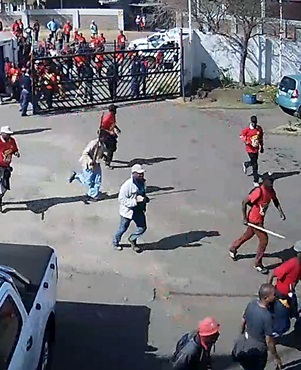 striking metalworkers “invade” business premises in Gauteng
striking metalworkers “invade” business premises in Gauteng
22/7/14:
South Africa, Rustenburg: another Marikana murder
24/7/14:
South Africa, Johannesburg: another firey service delivery protest over electricity cuts…..Pretoria: medical students run riot in protest against “irregularities”; Medical University blockaded for 5 hours, doors smashed, etc. “The crowd overturned a Medunsa vehicle and lit a fire next to it, blockading the exit lane of the main gate…. more than 1000 students had forced open security gates at the administration block, demanding that seven lecturers leave their offices and be escorted off campus….After singing and toyi-toyiing…, a crowd surged forward to the main administration entrance, breaking the security gates’ padlocks and storming into the building…They ran up several flights of stairs, breaking glass and grabbing fire extinguishers. The group then occupied the space outside the executive suite, singing and demanding that the lecturers come out….They sang about their patience wearing thin, and then smashed the glass doors to reach the security gate…Marakalala said: “We demanded a meeting with executives, where they must show us the suspension letters, because they cannot be here while being investigated. Some of these people have questionable qualifications, others have an agenda against students,” he said, adding they were a “mafia” not wanted on campus….The students vowed to root out racism, nepotism and unfair practices. There would be no classes until issues were addressed satisfactorily, and the objects of their displeasure removed, they said.”
25/7/14:
South Africa, Johannesburg: firey electricity cuts protests continue
28/7/14:
South Africa: metal workers win above inflation wage rise, as some bosses threaten lock-out (lock-out maintained)…Pretoria: ANC members storm ANC office, suspect dodgy audit (more here)…Medical University students’ strike in its 3rd day…Durban: University of Technology closes due to students’ protests about debts and accommodation…students “run riot” “students blockaded the road with rubble, burnt tyres and stoned police vehicles. Police retaliated by firing tear gas while a water cannon was used to douse the flames.”….Ladysmith: 2km blockade as protesters against water supply cuts block main roads, pelt cops with stones, etc.
29/7/14:
South Africa, Cape Town: enquiry into eviction shows how much has changed since apartheid…Durban: students occupy residence, throw stones at cops etc. as Technology University protest continues “Protesters had occupied a residence and emerged to throw stones and rocks. Police fired teargas and rubber bullets. Some protesters wore home-made masks, and one a balaclava. A palm tree, next to the residence, was set alight. The fire was extinguished. The protest erupted around midday when a group of about 200 students broke bottles, threw bricks and stones at police, and used cupboard doors to shield themselves from rubber bullets. Security guards fired paintball guns loaded with pink plastic balls in an attempt to disperse the students….Those protesting had refused to negotiate with the university.” …Cape Town: Municipal union members kicked out of union meeting after questioning disappearance of money
30/7/14:
South Africa, Johannesburg: hundreds of schoolkids loot shops on unpermitted demo about school conditions “Pupils are demanding an end to corporal punishment, a ban on application fees for placement at tertiary institutions, and they want proper food in the feeding schemes, to name a few demands. Provincial Cosas chairman Nkhobo Khomong compared the quality of food in feeding schemes to those served to prisoners. “Schools don’t serve proper food. They serve pap and fish full of water, cabbage full of water…..Feeding schemes serve us uncooked pap. The food is expired.” (photos)
…Durban: court hears of wildcat strikes and squatting settlement attacks on flyover construction site “… there were numerous illegal work stoppages for various reasons, all of which were marked by intimidation, mob violence and destruction of property. There were also legal strikes and, even when the labourers did come to work, they were militant and unproductive. In May, after a month-long wildcat strike, they were dismissed en masse. “In anticipation of further trouble, we established an escape plan for employees and we enhanced security. At a public liaison meeting, the ward councillors adopted an extremely aggressive attitude and threatened bloodshed unless the workers were reinstated. “It was stated that the community is prepared to die for their jobs. They would stop the project and no army or police force would prevent that,” Williams said. Since then, there had been further acts of violence. A worker had been struck on the head so hard that his hard hat had shattered. Another had had a lucky escape after being dragged into the bush by an angry, armed mob. The cab on a mobile crane had been set alight. Special “car port” screens had been requested to protect vehicles belonging to employees of the engineer on site from “projectiles thrown during riots”. An interdict granted by the labour court had had little effect and, on June 2, a security guard had been fatally stabbed. So far losses, excluding stoppages and strikes, were estimated at R113m”…Cape Town: rail line sabotaged
31/7/14:
South Africa, Kimberley: school admin blocks burnt, possibly part of protest…KwaZulu Natal: major clash between cops and taxi drivers after taxi driver shot “A police water cannon and a Nyala were called in, with the crowd given “five minutes to disperse”. When they failed to move away, the water cannon sprayed the crowd while policemen fired rubber bullets, pepper spray and teargas. The fleeing crowd, in turn, hurled stones and burned tyres.”
1/8/14:
South Africa, KwaZulu Natal: mayor orders metro police to suspend roadblocks after violent two-day stand-off between taxi operators and police…student protests take nasty turn “a suspected arsonist or arsonists” set fire to one of the female residences on campus. None of the students was injured….“The affected building is one in which we have placed female students with disabilities. The suspected arsonists chose the most vulnerable students who they knew would find it more difficult to escape.”
5/8/14:
South Africa, Johannesburg: student union apologises for “criminal elements” looting on student demo…Cape Town: rail line wrecked by sacked workers
6/8/14:
South Africa, Johannesburg: 2 sets of protesters block roads with rocks…Durban: violent 3 day water protest ends in protester’s death
7/8/14:
South Africa, Gauteng: violent protests against demolition of illegal shacks (more here)
11/8/14:
South Africa, Gauteng: Africa’s 29th richest scumbag shouted down at Marikana enquiry
12/8/14:
South Africa, Durban: mayor narrowly misses being pelted with stones
14/8/14:
South Africa, Western Cape: 5th day of violent protests over power cuts “Hundreds of residents have been protesting since Sunday over the disconnection of electricity. Roads have been barricaded, tyres burnt, and shops looted. Police said 34 people were arrested on Tuesday and Wednesday for public violence and looting. A municipal building, situated next to the police station, was also set alight. At the time, Pojie said protesters tried to burn down the station, but police prevented it. Protesters threw petrol bombs at police, who fired rubber bullets and teargas to disperse the crowd.” (see also this, this, this, this and this) …Philippi: 4th day of violent protests against demolition of Marikana informal settlement (see also this, this, this , this and lastly this, in part about this settlement)…..news article about poo protests (see also this and this)
15/8/14:
South Africa, Durban: ANC member shot during service delivery protest
16/8/14:
South Africa: report on debt amongst former AMCU strikers
19/8/14:
South Africa, Gauteng: protesters block roads after being prevented from taking over land…Cape Town: more fights as cops and demolition companies destroy newly-built shacks
20/8/14:
South Africa, Johannesburg: wildcat bus drivers’ strike…then end it…Gauteng: another land seizure protest; schools close…shops looted This claims that it was foreign shops that were looted. As has been said here before, this might be xenophobic, or it might be that other shops were also looted but the reporter chose to mention only foreign shops, or that there are only foreign-owned shops in the area … Cape Town: empty train totally bunt out by service delivery protesters, 4.5km of track damaged…Pretoria: roads barricaded all day in service delivery protest
22/8/14:
South Africa, Cape Town: evicted land settlers in violent clash with cops…some looting…cops use live ammunition
24/8/14:
South Africa, Johannesburg: shack residents attack firefighters for arriving too late and under-equipped…Daveyton: groups burn tyres, chuck rocks after mayor’s empty promises
25/8/14:
South Africa, Durban: protesters against local mayor block roads with burning tyres and rocks…Mpumalanga: roads barricaded during service delivery protest; cops shoot pregnant woman with rubber bullet
27/8/14:
South Africa, Nelspruit: bus set alight in protest…KwaZulu Natal: rubber bullets, tear gas used against protesters intermittently blocking roads, stoning vehicles
29/8/14:
South Africa, Johannesburg: informal settlement residents turn area into no-go zone with barricades of burning tyres and rocks…Gauteng: residents “rampage” during another service delivery protest
1/9/14:
South Africa, Cape Town: service delivery protest mixes with taxi drivers struggle; live rounds fired at cops; lots of buses burnt out or seriously damaged by rocks; taxi driver killed…another bus attacked….at least 15m rand’s worth of damage…Johannesburg: cops fire tear gas, rubber bullets at protest over lack of sewerage and piped water “…he was struck on the knee by a rubber bullet fired by the police during what he described as a peaceful protest. “They just opened fire without even speaking to us,” Big said. One car’s windscreen was smashed by a rock thrown by a protester. …The police officers left their armoured Nyalas and hid behind the car while they fired rubber bullets, and the rocks accidentally hit the car instead of the police vehicles,… the other residents had met several Joburg mayoral committee members on May 5 in the build-up to the elections and were promised a temporary sewerage system because the pit toilets they were using were unsanitary….“We put them into power and they are not delivering,” another protester said… police dispersed the crowd using rubber bullets after being pelted with stones….“Two Joburg metro police vehicles were pelted with stones. A policeman sustained a neck injury and was taken to hospital…”….Kimberley: ambulance burnt in protest over housing and lack of toilets…Limpopo: parents barricade school with stones and burning tyre
2/9/14:
South Africa, Durban: students, in fee increase protest, set fire to bins, tyres, throw stones etc; cops use water cannon…Johannesburg: 2 post offices attacked after workers get sacked for going on strike; PO van burnt out
3/9/14:
South Africa, Cape Town: buses get armed escorts…Gauteng: cops fire rubber bullets, stun grenades & tear gas during housing protest…Johannesburg: heavy fight between security guarding Union leaders against those lower in the hierarchy suspicious of them ripping off R136 million in “dodgy dealings”…. KwaZulu Natal: protesters win (see also this)…report that the number of violent protests has doubled over last 2-3 years “WHILE service delivery protests have remained largely constant over the past three years, the number that have turned violent has more than doubled, Parliament’s police committee was told on Wednesday…Police commissioner Riah Phiyega and the head of public order policing (POP), Gen Elias Mawela, told the committee that from 12,651 incidents in 2010-11 the number had remained largely constant, with 12,399 recorded in 2012-13. But what concerned them was that violent protests had doubled, from 971 in 2010-11 to 1,882 in 2012-13.”……cops ask for over 3 billion rand to put down protests…which we hope they will use in the same way this Public Disorder cop used his stun grenade
4/9/14:
South Africa, Johannesburg: report on post office worker’s strike...KwaZulu Natal: university campus closed after students break windows etc.
9/9/14:
South Africa, Tshwane: protesters burn tyres, throw bottles and stones “residents of Extension 11 in Mamelodi East had “vented their anger about the lack of service delivery and other social problems” in the area.” …students burn bus in protest about funding… South Africa, Rustenberg: Marikana inquiry commission head cancels tour of mine due to “security concerns” after accusations of association with scab union “While we were leaving, we were labelled as NUM people. It was also said we were there to waste time….Inquiry chairman Ian Farlam abruptly cancelled an inspection in loco at Marikana, near Rustenburg, on Monday because of security concerns. ”
10/9/14:
South Africa: 134 violent service delivery protests nationwide between January and August
11/9/14:
South Africa, Tshwane: students go “on rampage”, university closes gates…Gauteng: provincial premier develops strategy to combat service delivery protests……report of looting of foreign-owned shops following service delivery protests Once again, it’s not clear if foreign-owned shops were the only shops in the area (and thus the only lootable ones) or indeed if it was only shops owned by foreigners that were looted. …a tragic heart-rending story
15/9/14:
South Africa, Western Cape: main road blocked with fires; cops and cars stoned; shops looted – during a night and day of service delivery protests “The N2 was closed to traffic, with police directing motorists around the area via alternative routes. However, protesters under the cover of darkness had begun throwing stones at cars on the alternative routes as well….Police moved into the area to restore order, with protesters throwing stones at them in response…..“Protesters are using the darkness to evade police, as they keep switching positions.”…It had been reported to police that a number of shops in Melrose Place and Xola Naledi owned by foreign nationals had been looted by protesters on Monday evening….Earlier, police fired rubber bullets and used teargas to disperse more than 1000 people protesting over service delivery at the Grabouw municipal offices. The rubber bullets were fired when protesters marching in Ou Kaapse Weg started throwing stones at police….Oil was poured on the highway and later rocks and burning tyres were used to block access to the town….Grievances included in the memorandum were lack of housing, poor and expensive electricity supply and bad road conditions.”…More here “…protesters threw stones and set oil alight on the highway. But a Grabouw community organisation has criticised the violence – distancing itself from “criminals who are not part of our protests…I know nothing about the N2. That’s wrong, unacceptable, and we condemn it in strongest possible terms. The police must act against those responsible.”...Tshwane: university suspends student council after violent protests.…Cape Town: taxi drivers go on illegal strike against heavy fines “They put tyres in the road to stop other drivers from working and hammered on the sides of passing minibuses…A heavy police presence, including a Nyala [cop vehicle – see below], was stationed at the Nyanga taxi terminus early on Monday morning….Earlier in September a taxi driver was shot dead and 11 buses burnt or damaged near the Nyanga bus terminus….Msinga Mbemba, another taxi driver, said on Monday morning they were regularly arrested and, as a result, lost their jobs. “We can’t afford these fines and when we are arrested we can’t apply for our professional driving permit.” Taxi drivers chanted and danced at the station, stopping minibuses from leaving.” (more here)
Above – a “Nyala” – a sweet South African cop vehicle, named after this brutal animal:
a “Nyala” – a vicious South African antelope
16/9/14:
South Africa, Gauteng: report saying there’ve been 229 illegal protests in this region over last 3 months…Durban: informal settlers block roads with boulders and burning tyres in service delivery protest
South Africa, Western Cape: fire station set alight in 3rd day of Grabouw service delivery protest ”Protesters set a fire station alight on Wednesday after they damaged a Home Affairs office by pelting it with stones on Tuesday night. While a stretch of the N2 was opened for traffic at the foot of Sir Lowry’s Pass by 8am, a 2km stretch remained closed for three hours…. “According to information received, residents have been throwing stones at motorists on the N2 since Monday. They put rocks and burning wood on the road to show their dissatisfaction with response from authorities.” On Monday night, spaza shops and seven wendy houses belonging to the municipality were destroyed. “Police are investigating housebreaking, theft, malicious damage to property, public violence and intimidation cases after these shops were broken into…. On Wednesday, protesters used sheets of corrugated iron as shields as they advanced towards police on the N2. Police used stun grenades, water cannons and rubber bullets to disperse crowds that continued to march towards the blue line. Angry residents yelled at police and media to leave the area. Two passing motorists were pelted with stones, but drove on without serious damage to their vehicles…. Protesters continued to hurl stones at police after 3.30pm. Cape Argus photographer Willem Law was hit on the shoulder while capturing the drama. Meanwhile, thousands of school pupils stayed at home, amid reports of threats and intimidation. ….“The bus services were cancelled as they were being attacked en route.” (more here , here, and here)“…Community Safety MEC Dan Plato described the rioting, stone-throwing and violence in Grabouw as “organised guerrilla-type tactics”…. “According to our information there are three large groups responsible for the violence in Grabouw and moving in different directions to cause problems,”.
dancing against the state – a service delivery protest
Rustenberg: 16 illegal aliens escape from jail…KwaZulu Natal: arson destroys opposition party’s offices
18/9/14:
South Africa, Western Cape: 2 houses burn on 4th day of Grabouw service delivery protests as politicians blame opposing politicans for being the “third force” behind the movement…report on criminalisation of dissent
20/9/14:
South Africa, Gauteng: Tshwane University of Technology campus closed down after 18 cars burnt in ongoing dispute between students and authorities (see also this and this )
22/9/14:
South Africa, Grabouw: various associations, political and business interests, the church, etc. announce plan to tame the social explosions independent of these representatives ” More than 50 people representing the municipality, the protesters, police, community organisations and the Grabouw Taxi Association met for more than four hours at the Grabouw police station on Friday. That was followed by Monday’s meeting at the Grabouw municipal offices in Pineview to agree to the joint statement….Last week, access to the N2 highway was blocked for three days and there was extensive damage to private and public property. Workers were intimidated and local businesses closed. Twelve schools in the area were closed in the middle of the preliminary matric exams and more than 5000 pupils were sent home. GCO committee member and African National Congress supporter Zwai Bhangazana said he was not satisfied with the outcome of the meetings. He said the people who protested last week were tired of all the forums being created….Bhangazana was the last person to address a crowd of more than 1000 protesters on Thursday last week before they dispersed. He played an important role in restoring calm and was also one of the most vocal and angry representatives at the meeting on Friday.”
One might well guess that the dissenting voice by a governing party supporter capable of restoring calm after some increasingly angry service delivery protests, is “dissenting” for the simple reason of maintaining credibility with those he’s able to calm. Clearly someone able to play 2 sides at once. The following, from SK in South Africa, outlines some of the strategic uses and contradictions of such things as stoning public transport buses, etc. It was written partly in response to me asking this “I was wondering about the constant stoning of cars and buses in the service delivery protests. Mokonyane in the Azikwelwa text talks of previous bus stonings, and their absence in the ’57 bus boycott. I don’t know if it’s just a sign of worsening desperation – desperately trying to get attention for a persistently untenable situation or a sign of the decomposition of any proletarian identity and mutual recognition or that it in fact helps the situation…or a combination of all these and more? Any ideas on this?”:
“Stoning of traffic during SA protests seems to me a straightforward tactical move to which people resort when they cannot blockade roads through other means. As such it is an expression of weakness, but not necessarily of desperation. Even when there are sufficient numbers to defend barricades against an initial assault from the forces of order such a defence can hardly be expected to withstand renewed offensive once police reinforcements are called in. Without the organisation of alternative forms of strategies — for example one involving systematic use of tactical retreat in order to continuously regroup, erect new barricades further along the line and defend them as long as tenable until a new retreat is called for, all of which would require a significantly higher level of co-ordination than has been shown until now — stoning of vehicles is an entirely understandable, though hardly very successful, method used by protesters to achieve quite simple practical ends. As such I don’t think there’s any need to read signs of proletarian decomposition into it by referring to ancient movements whose aims, methods and conditions are very different to what is currently taking place. It should be noted that while a bus boycott could successfully draw in all the members of a geographically-limited community to achieve its aims, this is simply not possible for a road blockade, since there is no analagous spatially cohesive community to be found amongst ALL users of a particular road who might be similarly mobilised by a ‘proletarian identity’ or anything else. As for desperation, this is of course a major factor behind all protests as such. The reasoning behind why these protests adopt this particular tactic of stoning vehicles and the barricades they form a substitute for, however, can be understood can be seen in the text Choke Points, which mapped the high-traffic nodes and lines through which the majority of commodities circulate in the eastern United States. Noting the existence of only seven such lines passing from the ports to the rest of the country, and recent blockades of one such line in Canada by a handful of Native American activists, the authors asked:
‘If an action conducted by a relatively small group of people (infinitesimal compared to the thousands present for the November 2nd shutdown of the Port of Oakland [following the repression of the 2011 Occupy movement]) could halt a major Class I route operated by CN [The Canadian National Railway Company] for a few hours, what could possibly emerge if intermodal railway line blockades became a tactic diffused and implemented in the same way plaza occupations were globally diffused in 2011-2012?’ (Choke Points: Mapping an Anticapitalist Counter-Logistics in California; Degenerate Communism)
Such questions are well worth posing considering the fact that road blockades have become widely diffused on at least a national scale in South Africa during the struggles of the 1970s/80s as well as those of today; similar steps were taken in the 1997 – 2001 Argentinian piquetero movement; and both road and rail blockades were tactics deployed nation-wide in the 2006 anti-CPE movement in France as well as the recent revolt in Langa, Cape Town, in which all road and rail routes in and out of the township were blocked for the day.
This latter is a local demonstration of how the general strike today increasingly takes the form not of a voluntary withdrawal of labour at the point of production, ‘but rather as masses of people who work in unorganized workplaces, who are unemployed or underemployed or precarious in one way or another, converging on the chokepoints of capital flow… In such a situation,’ say participants of the Oakland Commune in the very stimulating text Blockading the Port is Only the First of Many Last Resorts, ‘the flying picket, originally developed as a secondary instrument of solidarity, becomes the primary mechanism of the strike. If postindustrial capital focuses on the seaways and highways, the streets and the mall, focuses on accelerating and volatilizing its networked flows, then its antagonists will also need to be mobile and multiple. In November 2010, during the French general strike, we saw how a couple dozen flying pickets could effectively bring a city of millions to a halt. Such mobile blockades are the technique for an age and place in which production has been offshored, an age in which most of us work, if we work at all, in small and unorganized workplaces devoted to the transport, distribution, administration and sale of goods produced elsewhere.‘ The stay-away produced by the revolt, which was effectively a local general-strike as the vast majority of Langa residents worked elsewhere, was imposed by those unemployed, part-time and precarious young workers who blockaded the roads and railway lines of the township.
‘Choke Points’ also details the possibilities for blockades of intermodal rail yards and air cargo warehouses, concluding that the former would be rendered obsolete by successful blockade of rail lines and the latter insignificant by dint of the relatively low number of commodities involved — not to mention the difficulty presented by far tighter security surrounding all air transport! Another possibility not mentioned in that text was demonstrated by the 2000 UK fuel protests in which the week-long blockade of major oil refineries and depots led to only 5% of normal fuel deliveries being made, with all the inevitable consequences.
Simultaneous blockades of ports, major railways, highways, freight truck chokepoints, rail yards, air cargo warehouses and oil-refineries would not only significantly disrupt the circulation of all commodity-capital but also severely strain the capacities of the forces of law and order to crush such actions by forcing them to stretch their troops over widely dispersed locales thus depriving them of the ability to concentrate their offensive power at a single point. Police resources are already placed under strain by the rising tide of protest in the country. A recent incident during a taxi-driver’s strike illustrates how difficult it is for them to contain concerted action even at the current level of operations:
On the first day of spring [Sam Fanto note: 1st September in South Africa] a series of revolts sprouted throughout the fringes of Cape Town. In the townships of Nyanga, Gugulethu, Khayelitsha and Philippi, taxi-drivers torched seven buses, burnt tyres, closed taxi ranks and pelted passing cars with stones. The violence spilled over onto the N2 and the authorities closed a section of the highway and diverted traffic. As has happened before, a section of township residents took the opportunity to unite with the drivers in their protest, in a significant moment of solidarity between the struggles of workers and those of township residents.
Curiously, earlier taxi driver strikes, in 2009, were the most recent prior occasion for what went down this year. These included the burning of municipal vehicles by both striking workers and township residents in Port Elizabeth, Cape Town and elsewhere: “in the Kuwait section of Khayelitsha, taxi drivers and residents set alight a car and a municipal van” (iol.com,) as well as looting — the main targets being sources of food: In Nyanga, one bread delivery truck driver was killed and another truck was “set alight and was later looted by members of the public.” (SAPA); a number of shops were pillaged: “Some excited residents could be seen running through the streets carrying looted food items.” (westcapenews.com)
Buses cleaned out during a bout of spring cleaning: taxi-driver’s strike, Nyanga, 1 September 2014
In Nelson Mandela Bay (Port Elizabeth) a wildcat strike by taxi drivers involved the barricading roads as well as the stoning and petrol bombing of police vehicles, buses and government buildings across the city, again carried out by both workers and surrounding proletarians. (Port Elizabeth Herald) In the same report, a state spokesperson stated with typically staggering insight “These violent actions do not belong in a peace-loving society.” The strike was notable for its involvement of youth and the ferocity of their attacks on state authority. In scenes reminiscent of the uprisings of the 70s & 80s, various municipal buildings, including two clinics and one of the ruling party’s (ANC) offices were reportedly burned down.
In addition to a counter-attack against a state which has for years continued a relentless assault against them, the young proletarians used the strike as an opportunity to carry out a practical critique of an urban landscape whose sole purpose was the circulation of commodities – including the commodity which creates all others, labor. This critique, born of boredom and opportunity, seems to be the most reasonable explanation of a situation where delivery trucks were petrol-bombed by youths having no connection to the taxi drivers or their immediate interests, and where “gangs of youngsters were seen… stoning cars.” (The Port Elizabeth Herald) In times of crisis illusions are dispersed like teargas in a gust of wind. State provision of public transport was thus revealed to be not a social service to a human community but an economic service to the community of capital, just as the police were revealed not as guardians of human beings but bodyguards (antibodies) of the commodity economy, its veins (roads), its blood cells (cars), and its heart (capitalist production).
This much was admitted by the provincial safety and security spokesman Bobby Stevenson when he revealed that, to the state, “safety and security” means nothing more than the provision of conditions which guarantee the free movement of the commodity. The following was all he had to say; here we see the meaning of “law and order” in this society; here is its justice, its democracy, its freedom, its morality:
“A situation of lawlessness cannot be tolerated in a democracy, and our economy cannot be held to ransom.” [He] said he had written to the provincial commissioner requesting that police members travel with commuters on buses equipped with radios. Police vehicles should escort buses and rapid response units [should] be located in strategic spots to ensure the free movement of buses and other vehicles that wish to convey workers to work.’
Attentive readers will notice how increasingly totalitarian the “freedom” of this democracy tends to become (cops on radio-equipped buses herding workers into their kraals).
What is of interest in this year’s taxi strike, more particularly an incident therefrom involving a delivery truck, is the difficulty the authorities had in clamping down those whose actions were marked by audacity and anger. The truck was delivering dairy products to Shoprite supermarket in the township of Mfuleni when it was attacked. According to eyewitnesses the truck was approaching a traffic circle when it was stoned, allegedly by taxi operators.
Police patrolling the area quickly dispersed the crowd and advised the truck operator to park the vehicle next to a satellite police station in the vicinity, leaving the station with only the two officers stationed there on regular basis. Eyewitnesses said the mob returned after the police left and removed the battery from the truck, cut its wires and set it alight.
“They broke it open and people started looting yoghurts, milk and other dairy products,” said one witness. Police in the station couldn’t do anything to stop the looting as they were outnumbered. (groundup.org.za; 2 September 2014)
Delivery truck during taxi-driver’s strike, Mfuleni, 2014.
‘Rise, like lions after slumber in unvanquishable number!
Shake your chains to earth like dew
which in sleep had fallen on you:
Ye are many—they are few!’
(Percy Bysshe Shelley)
***************
Such moments, significant as they are, are nonetheless with their own contradictions, for example the mob-mentality of the crowd which tried to attack the truck-driver, a fellow-worker who did them no harm, even after he abandoned the vehicle. The point is not to ignore the continued poverty of such moments in order to eulogise them, but to identify tendencies expressed through them which illustrate possible openings and avenues for future steps along the road towards an endlessly enriched life for all.
When networks of commodity-capital circulation are disrupted, they open up space for new forms of action and relation. Streets are transformed from murderous conveyor-belts into marvelous living-rooms for dialogue, feast, festival, self-expression, protest, organisation, recovery. Rapid climate change turns what is normally a concrete desert dominated by dead objects into a fertile proliferation of teeming possibilities and playful people taking their chances with gusto and gut-rage, handfuls at a time. Thus a participant of last year’s massive mobilisations in Brazil could take to the streets normally reserved for machines and dance to the music of now comradely strangers normally reserved and silent carrying a sign that said ‘Cities are for people, not cars.’
There are also tactics which divert networks towards radical ends, with disruption produced as a secondary benefit. One example is when the children of the townships commandeered buses during the uprisings of the 1970s/80s in order to transport people to neighbourhood assemblies and mass meetings, or to drive them into the sides of schools and factories. As for trains, that the Mexican revolution was of course famous for, a more recent example is when members of the Mandela Park Anti-Eviction Campaign forced their way onto trains in order to join demonstrations in the city center.
The above by no means represents some sort of ultimate stratagem to be universally applied, once and for all, by masses assigned the task of implementing the directives of others. They are simply an outline meant to demonstrate a few directions for collective action not yet taken, inspired by what has already been done by those determined to change their own lives. The possibilities for subversion are limited by little more than your imagination, audacity, and organisational capacity”
23/9/14:
South Africa, Gauteng: major road blockaded with rocks for 7 hours….Eastern Cape: municipal building torched in service delivery protest (more here)…yet another irony of the New South Africapartheid
26/9/14:
29/9/14:
South Africa, Cape Town: report on growing hostility towards gentrification
30/9/14:
South Africa, Western Cape: residents of “illegal housing” flare up against cops, market and cars in protest against arrests and threatened destruction of housing “The Panorama Hill complex, an upmarket block of flats at the entrance to Hangberg, became the target of angry residents who burned and damaged six cars after a community member was arrested. On Tuesday morning, rocks and tree branches littered the road at the entrance to Hangberg as a police Nyala parked close by. Tenants from the complex inspected the damage to their vehicles as more police arrived. A block away, the Hout Bay harbour market was in disarray as sculptures, paintings, crockery and an ATM were damaged and silverware allegedly stolen. ….“Children and adults were throwing stones and rocks.”…“I saw them light the cars and then I started to pray. Apparently, they were promised this land and it is the second or third time they have done this.””… striking casualised post office workers burn vehicles and smash windows at sorting depot
1/10/14:
South Africa, Cape Town: how to shop rite
2/10/14:
7/10/14:
8/10/14:
South Africa, Pretoria: informal traders and cops clash as cops harass them “…around 50 hawkers pelted metro police with stones during a routine inspection at midday. “Two of our vehicles were damaged.”…Johannesburg: protesters become “violent and disruptive” when cops approach them….Tongaat: fury over deaths of 3 young men trying to reconnect electricity “Rubber bullets and water cannon had to be used to disperse a 1 000-strong crowd who had been demanding to see the mayor.They gathered in the town hall at about 8am on Wednesday morning, following a rampage which left bins overturned and rubbish strewn on the main road.An officer at the scene described the scene as “Tongaat burning”; another source said more than 50 municipal bins had been burned….A resident said she had never seen Emona residents so angry before. She said while marching to the town’s centre, the protesters had destroyed every electricity box along their path.”
11/10/14:
South Africa, Thabong: bright spark makes glowing critique of education system
13/10/14:
South Africa, Johannesburg: service delivery protest blocks roads with rocks, etc.…Alexandra: youths barricade roads with rocks etc. in protest against not being employed on construction work for bus rapid transport system…Limpopo: protests about electricity and water connections barricade 3 major roads.. Gauteng: stay-away strike, schools closed, as community “goes on rampage” after officials sabotage water supply
14/10/14:
South Africa: 4 Post Office vehicles burnt as casual post workers continue their strike……bill submitted to parliament to allow courts to award judgments for damages against unions that don’t limit strikers’ violence
15/10/14:
South Africa, Chatsworth: best reason for entering a police station voluntarily
16/10/14:
South Africa, Lingelthu: protests for 18 year old imprisoned for throwing stones at cop cars “Masixole Poswa, 18, has been released on a warning. He was arrested after Lingelethu residents clashed with police on October 8 when a suspected criminal, Melikhaya Dyasi, 29, they accused of terrorising the community was released from police custody. Dyasi was hunted down by an angry mob and burnt to death in Lingelethu the same day… Malmesbury police spokesman Henry du Rand confirmed that Dyasi had a list of pending cases, including murder, robbery and assault. “He was a known terror in the community and when he was released after his case of armed robbery was finalised in court, the community became violent and attacked our vehicles,” Du Rand said. “The public order police unit witnessed Poswa throwing stones at one of their vehicles and tracked him down before arresting him along with five of his friends. “The (other) five suspects were released, but Poswa was charged and appeared in court before being sent to Pollsmoor. “He appeared again today (Thursday) and was released on a warning.”…if Poswa is prosecuted “the community will make the town ungovernable”. “The locals have told me they won’t tolerate this sort of nonsense and will cause a major uproar if Poswa goes to jail again”
20/10/14:
24/10/14:
South Africa, Limpopo: cops fire rubber bullets at workers blocking entrance to diamond mine
27/10/14:
South Africa, Eastern Cape: 3 arrested for burning statue of former president of ANC, Oliver Tambo… statue burnt on 22/10/14 “We bemoan this insensitive act and find it hard to believe that there are people who could commit such a crime, with such impunity, lawlessness and contempt during the month that we celebrate the untarnished legacy of president Oliver Reginald Tambo,” Masualle said.” Of course, it’s impossible to say – for the moment – what the motivation was for burning this statue of a Stalinist-turned-neoliberal, and it’s possible that it was burnt by white racists obviously ignorant of his services to the continuation of the power of the white bourgeoisie in South Africa – I don’t know. Still, he was a total shit who was part of a gang which are still committing enormous crimes against the poor with impunity and contempt, but lawfully…And these statues of the famous invariably are a way of saying, “Look up at us and look up to us, us – your betters, us role models in bronze who will outlast mere nonentities like you, us the Great Men & Women whom you must admire as much as this society which we represent, this world of celebrities that always appears far greater than little you looking up at it, us monuments to the pettiness of your lives “.
28/10/14:
South Africa, Pretoria: cop shoots the right man for once…Gauteng: failed job applicants blockade road to shopping mall “The protests began around 4am. The roads leading to the mall were barricaded with stones, rocks, burning tyres and tree stumps.”
29/10/14:
South Africa: at least 167 cases of post office strike-related violence Some comments, moved here, where it seems more relevant to immediate reports, from 27/10 14) from SK in South Africa about the ongoing Post Office workers strikes (mainly of casualised workers struggling for permanent work):
“The reportage in the bourgeois press has been ridiculously superficial and contradictory. Here are some quotes from various sources:
‘There have been five strikes since 2011 at the Post Office — one of SA’s oldest and most vital institutions — and there seems no end in sight to its labour disputes.’ One of these reportedly cost 100 million rand, other reports list this figure in a way that implies it is attributable to the various strikes as a whole. ‘The police are investigating 41 cases relating to the strike, including arson and assault.’ Multiple post office vehicles have been torched, scabs persuaded to join strike, offices stoned. Shareholders aren’t getting their invitations to meetings, bills are not being received or paid, millions of ads languish unsent, students fail to get their exam papers.
‘As the South African Post Office strike goes into its 10th week, some workers are demoralised about their union’s “failure” to negotiate permanent employment contracts even though independent minority groups have succeeded.
A post office employee, who did not want to be named for fear of victimisation, asked the Mail & Guardian on Tuesday: “Why are you talking to management and the union? They are feeding you lies.”
Another said the “union leaders are in bed with politicians and management and that’s why we can’t trust them”. Another frustrated union member said: “These guys [casual labourers] were able to mobilise themselves and talk to the big bosses. Now they have [permanent] jobs and the rest of us are still waiting.’
‘Some workers said they felt the negotiations would have gone better had they negotiated with management independently.’
‘The Communication Workers’ Union (CWU) says while it didn’t initiate the strike, it has now taken the lead in negotiating with management.’
Apparently the latest round of the dispute started as a sympathy strike when thousands came out around the country in solidarity with a few hundred who were fired for conducting a wildcat strike previously. Because of the long-standing grievances however the demands reported have to do with wages and permanent contracts. Where this leaves the fired workers I don’t know. The SA postal service, like those around the world is losing millions each year due to competition from electronic communications. It certainly seems, however, that the economic blackmail normally used to cow workers into obedience everywhere — the need to sacrifice and submit to increasing humiliations for the sake of ‘saving’ a struggling firm and with it their own jobs — has produced the opposite effect here.”
30/10/14:
South Africa, Cape Town : wildcat bus strikers bare their teeth (more here)
“A MyCiti bus was damaged on Thursday morning after angry drivers pelted the vehicle and police with stones during an illegal protest in Dunoon that started on Wednesday. On Wednesday the strike turned violent when residents burned tyres and police responded with stun guns, rubber bullets and tear gas. Uniformed drivers, as well as residents, screamed and scattered as police officers shot rubber bullets into the crowd. Residents lobbed stones at police vehicles…. bus driver Sibusiso Den said their working conditions were unacceptable and that all efforts at negotiating had failed.“…We get up at 3am, we work until 7pm and we only get paid for seven hours. We are the guys loading passengers on to the buses and we are only paid R5 000 a month.”…Den warned that there could be trouble in Dunoon because residents would join in the strike. “It’s going to be worse there – the community will come and join us,” he said. “We wanted to keep this away from the community.” Sure enough, when the crowd of drivers arrived at Usasaza station, near the bus depot, some Dunoon residents threw stones and blocked roads with tyres. Periodically buses came through but were blocked by the tyres. Some of the drivers moved the tyres and cleared the way. A man who was not wearing a MyCiTi uniform threw the tyres back into the road, and soon they were set on fire. The bang of a stun grenade sent people running for the nearby shacks, some hit by rubber bullets or tear gas as they went. “We need answers, otherwise we’re going to close down this depot,” said one driver who did not wish to be named. “We know it’s illegal but we have to do something. The anger and frustration is growing.”
12/11/14:
South Africa, Pretoria: landless re-expropriate land, fired on by cops, used for political point-scoring by EFF (millionaire Malema’s party)…but they managed to ransack an ANC councillor’s home (who managed to retain the roof and walls – more than can be said for those whose shacks he’d had destroyed)
17/11/14:
South Africa, Johannesburg: city brought to a standstill as 2 motorways are blocked by striking taxi drivers The article is a good example of a typical piece of journalistic manipulation and confusion: it starts with “Terror and chaos stalked the streets of Joburg on Monday morning as a strike by taxi drivers turned ugly. A taxi association calling itself the United Taxi Association Front (Utaf) not only brought the city to a standstill by blockading the M1 and M2 freeways, but terrorised motorists by pulling passengers out of passing vehicles.” and we can read a bit further on: “Commuters who gathered at the Bree Street taxi rank in the city centre tried to get into the vehicles of people who stopped to help them, only to be forced out by strikers.” but this is followed by: “Earlier, commuters had packed these private vehicles to capacity paying more than usual for the trip. But when a man began banging on bonnets, ordering commuters to get out, the motorists left the rank.” In other words, the “passing vehicles…who stopped to help them” were, in fact, scab strikebreakers helping themselves by charging more than what the strikers had charged before. And the “terror” did not involve “pulling passengers out of passing vehicles.” but was just strikers “banging on the bonnets, ordering the commuters to get out”.
“Of all the principles for journalism, the most important is to complicate simple things and simplify complicated things” – Judy Polumbaum
“Journalists – no ideas and the ability to express them” – Karl Kraus
“In the old days men had the rack. Now they have the Press.” ― Oscar Wilde
“The life of a journalist is poor, nasty, brutish, and short. So is his style” ― Stella Gibbons
Cape Town: particularly and obviously crappy artwork vandalised
20/11/14:
South Africa, Cape Town: taxi drivers join anti-eviction protesters to block much of the city centre
2/12/14:
South Africa, Kimberley: 5th week of protests against Municipal manager and town hall corruption This report states as fact what the municipal manger himself stated as his opinion (classic dominant journo manipulation), but also has some interesting information: “Ongoing protests by a group of residents, who are calling for the removal of the Dikgatlong Municipal Manager, the mayor and various councillors, have turned the town into a war zone, with rocks, poles and remnants of burnt tyres obstructing several streets, while houses have been petrol bombed and burnt to the ground since the protests started in October.” ….Eastern Cape: 2 “off-the-back-of-a-lorry” finders killed “Two members of the community were fatally wounded by members of the SA Police Service in Mbizana, while trying to bring a violent mob under control,” said Brigadier Marinda Mills… A truck transporting sugar and rice got stuck on a steep incline on Tuesday morning. The driver then reversed the vehicle to the side of the road to prevent a traffic jam. “This caused some of the goods to fall off the back of the truck and community members came and helped themselves with the fallen truck load,” said Mills. Police were then called to the scene and managed to stop people from looting the goods off the truck. However, community members became “volatile” when the manager of the truck company arrived at the scene and started to recover the goods which had fallen from the truck. …”Members of the public became violent and grabbed the manager, threatening to kill him as they forcefully pulled him.” However, when police intervened and freed the manager from the group’s grasp, they started throwing stones. “The group became increasingly more aggressive and started pelting the manager and the police members with stones while advancing again towards the direction of the truck and its load,” said Mills. “The police members fired warning shots but it seemed not to have the desired impact to scare the mob away.” Police then opened fire. Eleven other people were injured and were taken to the Bizana Hospital in the Mbizana area….A police officer and the manager of the truck company also sustained slight injuries during the incident. Mills denied allegations that police were involved in looting the goods off the truck.”
3/12/14:
South Africa: electricity protesters block roads with tyres & rocks, pelt cars
10/12/14:
South Africa, Gauteng: well-crafted escapist story
27/12/14:
South Africa, Western Cape: shop completely looted by locals after owner cuts off ear of shoplifter
5/1/15:
12/1/15:
South Africa. Kwa-Zulu-Natal: service delivery protesters block roads with burning tyre and rocks
15/1/15:
South Africa, Gauteng: illegal miners ambush cops
16/1/15:
South Africa: Northam Platinum suspends mining due to violent illegal strike
19/1/15:
South Africa, Limpopo: protest against discriminatory service delivery between different sections of municipality gets furious “several vehicles and offices were set alight, roads blockaded and shops looted.”More here “Protesters demanding their own municipality have brought the area to a standstill and barred pupils from attending school. They forced shops in the local mall to close two days before inland schools were due to open for the new academic year. …only health workers were allowed in and out of the area. Roads in the area were monitored to make sure no business took place. “All shops are closed… we do not even have bread. We are prepared to continue like this until our demands are met.”
22/1/15:
South Africa, Soweto: mass looting after shopkeeper kills 14-year-old shoplifter This is being portrayed as xenophobic because it’s mainly foreign shops that are getting looted. But there have been South African-owned shops also looted and often the vast majority of shops there are foreign-owned – so inevitably if there’s looting it’s going to be of mainly foreign-owned shops. The description of this as xenophobic in fact merely adds to the ideological racist forms of divide and rule, since the basis of this looting is class, not race. This is not to say that there may be racial elements to this but in portraying this in such a simplistic unnuanced way it encourages a racist false consciousness that it claims to oppose…report here says cops encouraged people to loot foreign-owned stores (not hard to guess why they might do this)….Paarl, near Cape Town: prisoners stab 10 guards in retaliation for killing of prisoner
29/1/15:
South Africa, Atteridgeville: teenager shot dead during non-xenophobic looting “…residents protested over land occupations on Wednesday. This continued into the early hours of Thursday, when they damaged a councillor’s house. “After that they went on a rampage looting spaza shops throughout Atteridgeville township.” Makgale said the looting was indiscriminate and not necessarily aimed at foreign shop owners. It was during the looting that the teenager was killed, bringing the death toll in violence between foreigners and locals over the past two weeks to seven, by the police’s count. “There are allegations that it was one of the foreign nationals that did it…”
30/1/15:
South Africa, Limpopo: residents block roads with burning tyres after municipality status is refused
31/1/15:
South Africa, Diepsloot: cops prevent mass squat of land with rubber bullets…. Cape Town: an eviction to be cheerful about
2/2/15:
South Africa, North-West: 400 residents burn bus and tyres in protest about water and electricity
4/2/15:
South Africa, Mohlakeng: road barricaded with burning tyres in service delivery protest “Since 4am, people barricaded roads and have been stopping commuters from going to work and stopping children from going to school,” said Randfontein police spokeswoman Captain Appel Ernst. “Tyres are also being burnt …Right now [8.30am] around 1,500 people are entering Randfontein.” More here“The protesters began to march to the Randfontein local municipality offices in Mohlakeng, many carrying pangas and sticks. When they reached a police cordon line on the main road, the police began firing rubber bullets. Most of the crowd dispersed, but some protesters retaliated, throwing stones at the police. The police then fired a second round of rubber bullets. An unknown number of people were injured. Rosinah Motlhaping was wounded in her leg, apparently by a rubber bullet.” And here “… the library, economic hub, maternity clinic, home affairs offices as well as mayor Sylvia Thebenare’s house were set on fire.” …And here “Children as young as 5 were used to gain entry into foreign-owned shops in Mohlakeng… On Wednesday many of the foreign-owned shops were closed as a result of the protest as residents, including several children, came out in numbers to take part. Children were used to squeeze through burglar bars of some shops and hand over the goods to adults. Some children were seen carrying the stolen items in the streets. ….“We are going to cause chaos until justice is done,” resident Lengslot Madika said.“We are sick and tired of officials who can buy fleets of cars but can’t give us proper service.”‘
…Johannesburg: wildcat (probably) bus strike continues “Rea Vaya buses were still not operating in Johannesburg on Wednesday after drivers abandoned them on Monday…the drivers have not communicated their grievances to management. … management had sent a notice to them on Monday to return to work. There was no response and on Tuesday, the company sent a final notice to them to return to work. “No one came until after 8am today (Wednesday). Now they are coming in to make representations to management.” Mntambo explained that because the drivers had not made any demands, there would not be any talks with them. …. Around 160 Rea Vaya drivers abandoned their buses on Monday withoutexplanation.”…
…Pretoria: water protesters block highroad, burn cars “…smoke bellowed from two trucks that had been set alight – a delivery truck and one that was taking coal to the mines. Further down the road, another truck had been burnt, as had several private cars. Scrap metal scavengers started tearing them apart as soon as the flames had died down. A bus transporting tourists was burnt on Monday, the first day of the protests. Witnesses said truck drivers attempted to make a U-turn on realising the chaos, but were outnumbered and forced to abandon their heavy duty vehicles. The Clicks truck was looted while the second still had its full trailer of coal. But it was the bridge that connects Majakaneng and the neighbouring Bapong that was the scene of the altercation between residents and the police. The lawmen and women fired teargas and rubber bullets into the unrelenting crowd burning tyres on the on- and off-ramps.” More here: “Protesters in Majakaneng village near Mooinooi, North West, threw stones at Methodist Bishop Paul Verryn and his colleague as they tried to speak to residents on Wednesday…Police fired rubber bullets to disperse the crowd, he said.“Roads have been closed, there is chaos everywhere…I am standing on the side of a road right now and there is a vehicle on fire as we speak”
….Limpopo: 4th school set alight as part of uprising in area “Five classrooms and the office of the principal were damaged in the fire on Wednesday evening…This was the fourth school to be set alight following days of violent protests in the area. A section of Malamulele High School was set alight on Monday night. On Tuesday, another school in Gikana village, about 40km from Malamulele, was torched. A third was set alight at the nearby Xikunda village.”
Reproducing some comments I received today from South Africa re. this movement in Malamulele (already produced in the January News of Opposition for 30/1/15, but given these recent events, it seemed worthwhile reproducing it here as well; it includes, in addition, a quote about Oakland):
A while ago I wrote you about the increasing importance of blockades as a current form of social contestation in SA and elsewhere. The situation in Malamulele, a town of 13 000 people (also the name of the wider area of around half a million people in which the town is situated) in Limpopo province, furnishes support for this thesis in abundance. Since 2014 proletarians of this district have joined their fellows elsewhere around the country in their demand to dissolve the local government, which has failed utterly in its task to administer the basic municipal utilities essential to survival in the modern world, and reconstitute it according to their own desires. When the ANC had an electioneering rally the people booed President Zuma and burned the party flags after their demands were addressed in the usual language of bureacratic-democratic procedure. Shops at the local mall were looted and burnt, causing millions of rands in damage. At the beginning of 2015 they took things further and imposed a general strike which has, at the time of writing, been 100 percent effective for four weeks. All schools and businesses have been shut down, all major roads leading into and out of the area have been barricaded from 6am to 6pm. The local mall has been closed, Police have according to their own account maintained a heavy presence in the area but remained powerless to break the strike. Appeals by state officials for residents to return to work and school have fallen on deaf ears. In response to a finding by the Municipal Demarcation Board that their demands do not qualify to be met, they shut down an entrance to the famous Kruger National park. Two days later two schools were damaged by arson attacks; a day later another school was burnt out. It is claimed that school children themselves are leading the struggle, and talking about a 'new June 16'. These claims are lent credence by the fact that school pupils were among those arrested for attacks on the shopping mall in 2014 (doubtless this would have been called 'xenophobic' had these shops not been owned by South African citizens). Due to its exceptional efficiency and ferocity, which has far exceeded anything previously achieved in recent years (eg. the one-day social-strike in Langa late last year); the struggle in Malamulele expresses in an unusually clear way the contradictions inherent everywhere the new tactics of modern revolution make their appearance. To phrase the question in the language of the bourgeois: “Why do these people destroy their 'own' businesses and services?” Whereas trade unionists, racists and state bureacrats can only answer: 'ignorance'; liberals and leftists can do no better with their own half-arsed apology of 'desperation', which implies such actions, while unfortunate and generally harmful, are excusable as the only means to get the attention of government fat-cats. This justification represents only one part of the picture, but the reality is that the destruction unleashed by proletarian struggle only involves an appeal to the state, a reformist demand, and a servile relationship of political patronage inasmuch as *all* working-class struggle has to do with "both" the 'bread and butter' fight for a few more crumbs from the table of capital "as well as" the fight to destroy capital and the working-class itself which always necessarily *begins* with bread and butter issues, always lies *beyond* them, and is always implicitly *contained within *them. That implication starts to become* explicit* the moment that struggle over bread and butter issues* itself *destabilises the normal hustle for daily bread; traditionally this took place in the form of the strike, where workers confronted capital by withdrawing their labour, bringing capitalist production to a standstill only to confront starvation themselves, unless they restarted production under their own control. As the strike in Malamulele demonstrates, the basic process today remains the same now as it has always been. For proletarians to act as a class is to have as a horizon only capital and the categories of its reproduction, and, on the other hand it is, for the same reason, to be in contradiction with one's own class reproduction, to call it into question. It is only the technical aspects of this process that have changed; the *meaning* of 'strike' – the *means* of a potentially revolutionary strike – is different today than the traditional definition. Although workers participate in this strike through the withdrawal of labour as before, the principal site of struggle is no longer the workplace but the street. The principal actors are not proletarians as *workers* but as *the dispossessed *(now including housewives, the unemployed, and school kids) as *proletarians* in the precise definition of those who have nothing* (niether jobs, nor 'education', nor 'services') *to lose *and know it*, those who own nothing and are therefore tied to nothing. So it is that proletarian self-activity primarily has to do with the organisation of destruction, and moreover the destruction of their 'own' equipment and buildings on the job, their 'own' schools and state services, their 'own' businesses, precisely because all of these things, presented to them as their 'own' and 'for their own benefit' by the spectacle, are produced and reproduced without them and against them. *Organisation of destruction* is precisely the correct term here, since it is exactly in the realm of organisation that the positive aspect of proletarian self-activity develops hand in hand with the negative aspect; to organise a force capable of sweeping aside the poverty of everything that exists is simultaneously to organise a force capable of transforming everything that exists, and vice versa. To recognise that one does not build socialism, one only destroys the obstacles that prevent its development is precisely to recognise that under capitalism the passion for destruction is the only creative passion. We live today in the era of the *social strike, *which primarily targets the circuits of commodity circulation rather than the points of production*. The effect, however, is almost identical. Just as a normal strike either collapses or moves further in a revolutionary because its disorganisation of production soon threatens the ability of the strikers themselves to survive, the disorganisation of reproduction caused by a social strike involves the same dynamic. This is clearly illustrated by the desperate measures taken by residents of Malamulele to circumvent the blockade they themselves imposed. According to one newspaper report, around 50 people a day are forced to undertake an arduous journey on foot through thick bush, during which they must cross a crocodile infested river, in order to buy basic necessities. One of these people stated in an interview: "It's not that we don't support the strike. We want our own municipality but desperate times call for desperate measures. We have to eat”. Clearly, strikes like these must either move further in a radical direction, communicating and co-ordinating with neighboring areas to prevent such desperate strike-breaking evasions, organising the production and circulation of basic necessities on their own terms – and the self-defense necessary to resist the inevitable repression that will result from such steps – or it will continue to be undermined by more and more of its own participants until it collapses. Considering the consciously imposed self-limitations of the current struggle, and the unfortunate attitude of its most combattive participants towards its internal contradictions (one person who braved the crocodiles to evade the strike blockades said "Going through the access point with plastic grocery bags is risky. The people who patrol there will confiscate your food and spill it on the ground as punishment for defying the shutdown") such a development seems unlikely in this particular case. What is certain, however, is that the Malamulele strike has been an exemplary moment in that arduous process which remains 'the task of the world and of us... the self-clarification (critical philosophy) of the struggles and wishes of the age'. Meanwhile, an area supposedly involved in the so-called Xenophobic violence has been occupied by riot police after four trucks and two cars -- none of which were reportedly owned by 'foreigners' -- were torched last night. The actions of Majakaneng residents, who on Monday looted 'foreign owned' shops (when last year residents of Langa looted the local supermarket, which is owned by Wallmart, it was not reported as an attack on a 'foreign owned' shop) in addition to burning a bus, can in no way be catagorically separated from those of proletarians in revolt around the country, such as the residents of Mohlakeng who yesterday torched the house of 'their' mayor, as well as 'their' library and municipal hall, but were not reported to have attacked any 'foreign owned' shops. It should be noted, lastly, that the victims in the current so-called Xenophobic violence were overwhelmingly* private property*; there have been more South African citizens killed (whether by petty-bourgeois defending their property from looting, or police doing the same, or unknown causes) in the unrest this year than foreign nationals. This is in stark contrast to the unequivocally Xenophobic pogroms of 2008 where scores of *human beings*, most of whom did not hold the priveledge of SA citizenship, were attacked and killed simply for speaking the wrong language in the wrong place at the wrong time. As usual, the bourgeois press has an active interest in a definition of violence which conflates attacks on commodities with attacks on people.* Referring to the general strike called in response to the suppression of the Occupy Oakland encampment, Jasper Berne wrote: 'The actions of the participants in the port blockade are, in this regard, doubly determined by the restructuring of capital. They are there not only because the restructuring of capital has either left them with no jobs at all or placed them into jobs where action as workers according to the classical tactics of the worker’s movement has been proscribed, but also because capital itself has increasingly taken the sphere of circulation as the object of its own interventions...We now know that the restructuring of the capital–labour relationship has made intervention in the sphere of circulation an obvious and in many ways effective tactic. The blockade, it seems, might assume an importance equal to the strike in the coming years, as will occupations of public space and struggles over urban and rural environments remade to become better conduits for flows of labour and capital — as recent struggles in both Turkey and Brazil have demonstrated.' (*Logistics, Counterlogistics and the Communist Prospect* <http://endnotes.org.uk/en/jasper-bernes-logistics-counterlogistics-and-the-communist-prospect> )
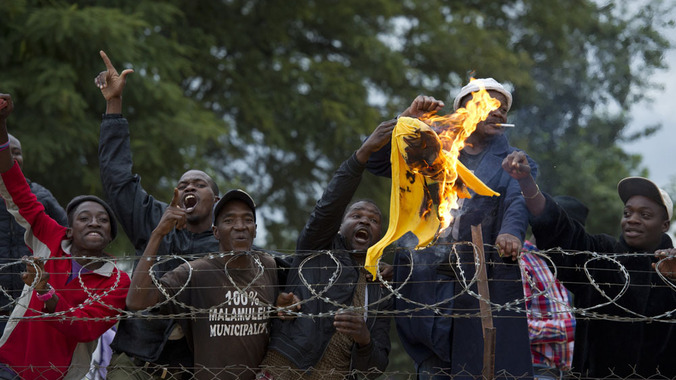 Romantic Malamulele directs the flame of its burning desire at the ruling party outside an ANC rally
Romantic Malamulele directs the flame of its burning desire at the ruling party outside an ANC rally
6/2/15:
South Africa, Pretoria: Tshwane University of Technology students hold M.P.s hostage, threaten to stone them “Desperate students held Committee members hostage for an hour and threatened them with stoning. Heavily armed police were called to the campus, and a march of about 700 students was under way when the Committee left after concluding its business. Further protests are to be expected at this campus, where violent protests took place last year, ending in the death of one student.”
7/2/15:
8/2/15:
9/2/15:
South Africa, Pretoria: burning tyres and rocks block roads in another service delivery protest
11/2/15:
South Africa, Johannesburg: thousands of students march in solidarity with Malamulele struggle; looting occurs “Malamulele has been on complete lock down for more than a month when protesters took to the streets demanding their own municipality because the current municipality has failed the students. Cosas has warned government that they’re encouraging its members to stay away from schools today until their counterparts in Malamulele resume classes. The student union president Sandra Baloyi has encouraged their members to march to their nearest police station until President Jacob Zuma answers their demands. “Those who were at the march in Gauteng agreed, starting from today, they must not go to school.”…Pupils were dispersed by metro police Tuesday who said the protest was illegal and unregistered with reports of looting and business disruption by protestors. …Four schools have been set alight since January.” …Durban: confrontations between residents and municipal electricity workers over illegal electricity connections “Municipal electricity workers were met with resistance from residents when they swept through the Welbedacht East area to remove illegal cable connections on Wednesday. Security men guarding eThekwini Municipality electricity department workers clashed with residents, who tried to stop them by barricading the road with rocks and refuse….some who heard about the swoop, took their cables out, only to reconnect them when the municipal workers left. Several homeowners also hired people to reconnect the wires.”
12/2/15:
South Africa, Gauteng: roads blocked with burning tyres and rocks during another protest…TUT student protests spread
13/2/15:
South Africa, KwaZulu-Natal: students erect burning barricades “…students burned more than a dozen fridges, a tree stump, desks and refuse bins at the entrance to Oval Residence in the campus. Other entrances were barricaded with burning refuse, tyres and bins. Public Order Police and campus security were on hand to monitor for violence. Students gathered near the residence sports stands singing and chanting. The interdict comes after violent protests – particularly at the Pietermaritzburg, Edgewood (Pinetown) and Westville campuses this week, where students have been demanding that more students be given financial assistance.”
16/2/15:
South Africa, Western Cape: security guards throw stones at students and vice versa
18/2/15:
South Africa, Malamulele: 5th school torched despite protests being officially suspended…6th school burnt, as another protest turns “violent” “A protest has turned violent in Mfuleni on the Cape Flats on Wednesday night, when residents set a bus and a truck alight….Residents have vowed to continue protesting until government officials solve their housing problems….In Malamulele in Limpopo a sixth school has been torched. The PP Hlungwani high school, at Green Farm village, was set alight on Wednesday morning, but only the curtains in the principal’s office were burnt….The incident happened at almost the same time as the burning of the Nkatini high school at Shigalo village in the area.”
19/2/15:
South Africa, Western Cape: black striking students clash with whites scabbing on strike This is presented by the media as a racial clash but it’s clear it’s based on class (which obviously in SA is still very linked to race), and if these whites hadn’t scabbed and attacked the strikers they would have been treated totally differently: “A CPUT student, who refused to have her name published, claimed she and other protesters had prevented cars from going in or out. A group of white students then started assaulting them and told them to get out of the way. “They started pushing us to the ground and forcing their way past. That’s when we fought back because we explained to them why we were blocking the gate. But they refused to listen and started to fight us. Why can’t they join us as fellow students? Why must they learn while we struggle. We are poor and don’t have money”
26/2/15:
South Africa, Mpumalanga: cops kill 15 year old boy as service delivery protesters block roads with rocks and burning tyres, demanding clean water…Limpopo: roads blocked, bus burnt in protest demanding employment in mines and new road
1/3/15:
South Africa, Limpopo: mass looting of foreign-owned shops…Western Cape: community hall set alight as parents protesting about kids’ food poisoning join forces with housing protesters “BM residents were upset by two issues – the first being housing. He said the BM residents were promised housing from the Bosasa project in Mfuleni after their homes were burnt down in 2013. He said after a long wait the residents learnt that the project had been put on hold by the city. “Last night they decided to protest and closed the N2 and Lansdowne with tyre barricades.” He said housing protesters met the parents of the children in the morning. “The food poisoning spiked the anger and I am afraid the hall is badly damaged. I doubt that there will be any sports taking place there now. The infrastructure is badly damaged.””
6/3/15:
South Africa, Bekkersdal: roads blocked, shop looted, stones thrown as cops block march
9/3/15:
South Africa, Eastern Cape: cop shot, cars stoned, road blocked, shops (including KFC) vandalised in taxi driver protest demanding tarred roads In enormous amounts of movements and protests (and certainly not just in South Africa) people are angry about so much and are willing to subvert dominant normality in loads of ways, but the explicit reasons are often quite trivial. It seems that people are, on the one hand, so colonised by the need to present an apparently “reasonable” demand realisable within the logic of this illogical world that they just don’t know how to express demands outside of some often minor grievance and yet, on the other hand, their actions have nothing to do with what this society considers “reasonable”. This contradiction is fundamental, and unless an explicit class consciousness develops alongside the more obviously practical expressions of class war, each struggle is doomed to be seen as something utterly separate, and will remain incapable of communicating its real desires in a language of revolt expressing the rationality behind its actions.
10/3/15:
South Africa, Western Cape: statue of Cecil Rhodes improved, but social relations remain crap The student who led this improvement said, “How can this statue still stand on a road called Madiba Circle? By doing that we are making history beautiful when it is not.” But clearly the powers that be are more aware of the ugly connection between Mandela (Madiba) and Rhodes than this student. Maybe, for instance, he’s unaware of this posh hotel (a snip at over 200$ a night):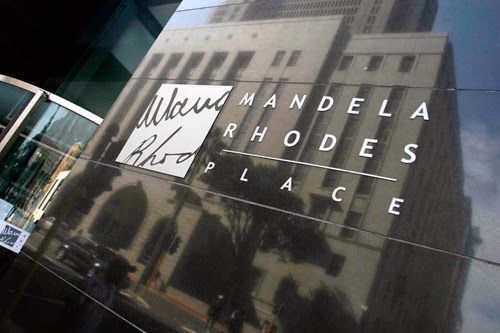
11/3/15:
South Africa, Balfour: various buildings burnt down – mayor’s home, government service/information centre, youth centre, in protest aimed at aligning town with Gauteng Report from 14/3/15: “The Mpumalanga government has agreed to release the town of Balfour to Gauteng. Residents earlier embarked on a violent protest, setting alight several buildings, including the house of Dipaliseng Mayor Sara Nhlapho….This latest protest actions came after the demarcation board made a proposal a month ago to merge Dipaliseng Municipality with Standerton’s Lekwa Municipality…. The residents have also torched the Thusong centre and stole computers before proceeding to burn the Siyathemba Youth centre. Roads leading into the township remained barricaded with stones, burning tyres and metal objects. Siyathemba Youth Centre co-ordinator, John Nkosi says the thugs have stolen computers and a refrigerator from their centre….There has been no schooling in the area since Wednesday when the residents embarked on the protest action.”…Thembelihle: road blocked, stones thrown at cars, in local protest
14/3/15:
South Africa, North West: about 200 loot stores after cops raid bar and seize alcohol
See “The Civic Protest Barometer, Episode One: Lies, Damn Lies and Statistics” for an article showing how impossible it is to guage the extent of serious disturbances of disturbing normality in South Africa.
16/3/15:
South Africa, North West: ANC councillor’s house burnt, businesses looted, etc. in protest against lack of water “The protests in Letlhabile and Jericho have been going on for three days. The protests have now spread to nearby townships and some villages north of Brits in North West….Residents blockaded roads with burning tyres and other objects at Damonsville, Kgabalatsane, Letlhakaneng and Maboloka. Businesses were looted and vandalised in Letlhabile and Jericho. Offices of the Bakwena ba Mogopa and circuit offices of the Department of Education have been destroyed….A local supermarket nearby was vandalised. …“They broke everything, nothing was left.” A group attempting to set alight a municipal truck parked in a municipal compound were intercepted by police. Schooling and public transport have also been affected.”…Soweto: roads blocked, cars stoned in protest demanding electricity
17/3/15:
South Africa, Gauteng: roads blocked, shops looted, clinic and vehicles burnt in protest against cut-offs of illegal electricity “A local clinic was set on fire and 11 vehicles parked inside the premises were also burnt…The protesters then proceeded to loot local shops owned by foreign nationals….Two minibus taxis were damaged after stones were thrown at them….The municipality said it lost in the region of R200 million a year due to illegal electricity connections.”…Lenasia: cops fire rubber bullets against service delivery protest
18/3/15:
South Africa, Gauteng: blockades and looting as protests against evictions get angry “Motorists endured major traffic delays as several roads in the industrial area were blocked off due to a protest sparked by eviction notices served on residents living in nearby properties on Tuesday night. Those driving along many of the main roads, including Jules Street, had to avoid burning tyres, broken glass, large rocks and litter as protesters with knobkieries and large sticks sang and danced amid a cloud of black smoke from burning tyres….The protesters said they had nowhere else to go and rallied the support of the men living in nearby hostels to back their cause. Together the large groups congregated and began barricading the roads….They also emptied municipal bins, threw the litter onto the streets and set it alight. Although a large contingent of officers from the Joburg Metro Police Department and SAPS were on scene early on Wednesday morning, the mob was undeterred and continued marching along Wolhuter Street. As they danced and sang along the street, their compatriots stood on the rooftops of the dilapidated buildings they were evicted from, and acted as lookouts.“(more here) “The situation is getting out of hand. Residents have started looting shops. They broke into a dealership that was closed”… uncertainty remains as to who ordered the evictions from a property in the Maboneng Precinct, the owner of which wishes to develop. …Jonathan Liebmann, CEO of Propertuity said his company never evicted anyone. …”We are not responsible for any evictions. We have never done any gentrification,” Lieberman said….Gauteng police have arrested 22 people for public violence.” (video here updates these facts)
25/3/15:
South Africa, Ladybird: state and local state property burned as residents vow to make area ungovernable “Several people have also been injured when police fired rubber bullets at a group of protestors who barricaded roads and burned municipal property which include a municipal building and a vehicle. Four other cars belonging to the South African Social Security Agency (SASSA), Home Affairs Department, the Independent Electoral Commission (IEC) and a tractor were also torched. Angry residents have vowed to make Mantsopa Municipality ungovernable. They demand that Mayor Sello Ntsepe and his entire committee step down. They accuse the municipality of corruption and failure to address their service delivery challenges…Protestors attacked the mayor’s house and were shot at by security guards using live ammunition, however no one was injured. Schooling was also disrupted and learners also joined the protest. Business in town came to a standstill as some shops were closed fearing looting. Municipal officials had to lock their offices and flee when protestors approached “
26/3/15:
South Africa, Cape Town: protesters do a bit of looting More here.
27/3/15:
South Africa, Limpopo: Eskom fire 1000 workers for taking part in illegal strike (more here)
31/3/15:
4/4/15:
South Africa: report that 85 cops have been killed over the last year
5/4/15:
South Africa, Durban: “vagrants” squat plush 2.5m rand (about £250,000) home
8/4/15:
South Africa, Cape Town: burnin’ ‘n’ a-looting ‘n’ a-stoning as cops evict land squatters
10/4/15:
South Africa, Cape Town: radical wing of anti Rhodes’ statue occupation promises to get interesting “…the students declared publicly on Thursday that “the Constitution (is) a document which violently preserves the status quo”. Price stated that the group had crossed the line of “acceptable protest” which included the disruption of the Council meeting on Wednesday evening. “This behaviour was completely unacceptable, challenged the authority of Council and will result in prosecutions of the students involved,” he said. Price also referred to student protesters chanting “one settler, one bullet”. “I wish to express my dismay that this has happened, condemn all acts of intimidation and reckless utterances as they have no place in our democracy and are in serious conflict with the values of the University,” he said. Price said the University was investigating referring the cases to the Human Rights Commission.”
“These same students had, over the course of the week, declared that “transformation is the maintenance and perpetuation of oppression”, that “our only regret is that we did not take the statue down ourselves.Going forward we will no longer compromise. Management is our enemy”, and that “let it be known that Azania House (Bremner) is ours and we will not leave.”……promises promises…
“… you shouldn’t believe in promises. The world is full of them: the promises of riches, of eternal salvation, of infinite love. Some people think they can promise anything, others accept whatever seems to guarantee better days ahead…. Those who make promises they don’t keep end up powerless and frustrated, and exactly the fate awaits those who believe promises.”
― Paulo Coelho, The Devil and Miss Prym
““Some things you don’t have to promise. You just do.”
― Rick Yancey, The 5th Wave
SK writes:
“Now that the statue has been removed, a demand which required little risk on the part of supporters and little cost to institutional power, things are taking an interesting turn down at the Universtity of Cape Town. The mass of students and their representatives seem to have been satisfied with this spectacular gesture, whilst an extremist wing has vowed to continue occupation of the administration buildings in line with their declaration that the statue was ‘just the first step’. The bureacrats in charge have now warned them to vacate the premises and a confrontation is inevitable unless the students fail to back up their radical rhetoric in action.
‘These same students had, over the course of the week, declared that “transformation is the maintenance and perpetuation of oppression”, that “our only regret is that we did not take the statue down ourselves. Going forward we will no longer compromise. Management is our enemy”, and that “let it be known that Azania House (Bremner) is ours and we will not leave.” Furthermore, the students declared publicly on Thursday that “the Constitution (is) a document which violently preserves the status quo”.’ (http://citizen.co.za/360165/ucts-price-sends-warning-to-student-protesters/)
Some hard words. Unfortunately their own refusal remains in the same abstract realm, having to do with little other than confrontational press statements on the one hand or the very demands for transformation (renaming buildings according to black nationalist ideology, appointing more black lecturers, etc) they now apparently reject on the other. The concrete alienation which keeps all proletarians in an infantile position, have no mention, which is not surprising as they have made no effort to open the space they’ve appropriated to anyone other than their own insular peers, unlike the most promising occupations of the past. This would all be of little importance if they were at least beginning to confront the concrete aspects of their own alienation, which would at least broaden the basis of their struggle to all other students rather than the few interested in ideological stunts and militant posturing. But the blackmail of school-fees and academic discipline, two elementary oppressions which have inspired exemplary (and far more radical in practice) revolt around the country are not so much as mentioned in all their Fanonian bluster on ‘decolonisation’.
11/4/15:
South Africa, North West: violent protest against local council’s misuse of funds “…residents had barricaded roads with tree branches, burning tyres and rocks on Saturday, demanding feedback regarding the alleged misuses of Bakubung Tribal Council funds. A house, a truck and a shop were set alight while four shops belonging to foreigner nationals were also looted… On Wednesday, residents did not allow North West Local Government MEC Collen Maine to speak to them, demanding that all arrested people should be released.”
12/4/15:
South Africa, Western Cape: church set alight in continuing movement of land squatters…Johannesburg: statue of Gandhi splattered with paint
Not sure if this was white racists because the statue was splattered with white paint. If so, they are clearly very ignorant of Gandhi’s usefulness for the ruling classes’ defence of the Brutish Empire because he opposed anything that might challenge dominant social relations. For instance, Gandhi used his reputation and leadership role to often disarm social movements in India when they threatened to get out of hand – he opposed strikes in the super-exploitative textile industies, even going so far as to threaten suicide if workers went on strike. This is why that upper middle class David Attenborough produced his film “Gandhi” quite explicitly to make propaganda against the massive riots that spread throughout the UK against Thatcher in 1981.
His usefulness for Brutish capital is shown by the fact that independence insured that Brutish investments remained intact. And this recognition that giving up direct control of an area of the world did not entail giving up economic power was a model for the end of the Brutish colonies everywhere. As long as the money was coming in, it didn’t matter if India, or anywhere else, was “self-governing” (ie remained within the sphere of Brutish capital accumulation).
Gandhi’s “pacifism” did not stop him from supporting the Brutish in 1899 in the Boer War, volunteering to help them and organising an ambulance corps. As he said, “As long as the subjects owe allegiance to a state, it is their clear duty generally to accommodate themselves, and to accord their support, to the acts of the state”. When Gandhi was organising a mass march in South Africa in 1913, to obtain rights for Indians there, the white railway workers went on strike over pay and conditions. Gandhi immediately cancelled his march, saying that civil resisters should not take advantage of a government’s difficulty. On the outbreak of the First World War, Gandhi actively recruited for the British war effort, despite his ‘pacifism’. He even refused to support a mutiny of a section of the Hindu Royal Garwhali regiment – who were brutally punished for the mutiny – when it refused an order to machine gun unarmed rioting muslims, saying he wouldn’t want soldiers in an independent India to refuse his orders to shoot if that became necessary!!!!!)(Le Monde, 20th Feb. 1932) On the outbreak of the Second World War, he publicly pledged not to embarrass the British, and would lend moral support to the Allies. And, of course, he had not one iota of understanding of political economy, as this letter to Hitler dated July 27th 1939 clearly shows:
Dear friend,
Friends have been urging me to write to you for the sake of humanity. But I have resisted their request, because of the feeling that any letter from me would be an impertinence. Something tells me that I must not calculate and that I must make my appeal for whatever it may be worth.
It is quite clear that you are today the one person in the world who can prevent a war which may reduce humanity to the savage state. Must you pay the price for an object however worthy it may appear to you to be? Will you listen to the appeal of one who has seliberately [sic] shunned the method of war not without considerable success? Any way I anticipate your forgiveness, if I have erred in writing to you.
I remain,
Your sincere friend
M.K.GandhiHERR HITLER
BERLIN
GERMANY
…statue of Martinus Wessel Pretorius, South Africa’s first (white) president improved…Andrew Murray statue and Ficksburg Grave Monument also improved Sample quote from the author of this article: “I have said many times that religion and education are wasted on these savages. Sir Theophilus Shepstone (who could speak several black languages) said that you should leave the blacks alone. Don’t feed them, don’t clothe them. Give them no work. Do not attempt to educate them or try to convert them to Christianity. Have NOTHING to do with them.” Now if only these whites had left the blacks “alone”, avoided taking the blacks’ land, avoided stealing the food from them, avoided forcing them to wear the clothes they wanted them to wear, avoided extracting surplus value from their labour, avoided conditioning them into ruling class culture and converting them into the ideology of sacrifice and had had NOTHING to do with them…if only.
14/4/15:
South Africa, Limpopo: striking workers erect barricades as part of demand for unconditional reinstatement of sacked workers “The workers had barricaded the streets and entrances to the hostels preventing buses to pick up workers to the construction site. They are burning tyres and pelting stones at motorists. Police nyalas and water tankers have been deployed in the area. On Tuesday the striking workers refused Eskom’s offer to return to work on Wednesday. The workers are demanding that those dismissed be reinstated unconditionally. The utility had on Tuesday confirmed it will reinstate the 1 700 workers who were fired for vandalising property during the strike.”
17/4/15:
South Africa: wave of crazy xenophobic riots incited (directly and indirectly) by some of the personnel defending class society “…scores of Jeppe and George Goch hostel inmates went on the rampage, breaking into businesses and threatening to unleash violence on everyone in their path…the men, armed with an assortment of weapons including guns, divided themselves into groups of 20. …minibuses were dropping the men off and picking them up at different spots. …Jeppestown was under lockdown as the inmates barricaded the freeway using rocks….On Saturday night, police battled to contain a wave of violence as gangs of migrants armed themselves with machetes to fight off anti-foreigner attacks by locals. Five people have died since vigilantes started looting and attacking shops owned by immigrants, mainly from other parts of Africa. Police fired stun grenades and rubber bullets as immigrant gangs confronted the vigilantes, and last night in parts of Johannesburg officers formed a human barrier to keep the two sides apart. More than 200 immigrants had to take refuge in a police station and dozens of businesses were closed when trouble spread just a day after a rally against xenophobia in Durban, where the attacks began. Immigrants have complained about a lack of protection from the authorities and some have started arming themselves to fight back. Eyewitnesses have claimed that the vigilante violence is being carefully orchestrated and that minibuses have been ferrying men armed with knives and machetes around these suburbs. In the past two weeks, shops and homes owned by Somalis, Ethiopians, Malawians and other migrants have been targeted, forcing more than 2 000 to flee to camps protected by armed guards. Foreign shop owners near Johannesburg reportedly fled their businesses after receiving a text message saying “Zulu people are coming to town… to kill every foreigner”. With unemployment mounting, many South Africans accuse immigrants from other parts of Africa and Asia of taking their jobs. The violence has largely been blamed on comments by Zulu King Goodwill Zwelithini, who said foreigners were “lice” who should “pack their bags” and return home….In Johannesburg, Malawian immigrant Samuel Idrssa described how his friend was stabbed and set on fire by a mob. “We wanted to rescue him but there were too many of them,” he said. “It was shocking.” …Durban, South Africa’s third-biggest city, has been hardest hit, with tents set up in the suburb of Chatsworth to offer sanctuary to 1 200 migrants who were forced from their homes. Demonstrators who gathered for a peace march in the coastal city after days of violence were jeered by a crowd of hundreds. Attacks on foreigners in Johannesburg in 2008 left 60 dead..”
Report from SK:
The Zulu King was filmed saying foreigners were lice, ants, criminals who bring filth to the street and should go back to “their” countries just before the attacks started in Kwa-Zulu Natal! (http://www.herald.co.zw/zwelithini-likens-immigrants-to-lice-ants/) Once the attacks started and people referred to his statement he tried to deny the reports until a recording of his statement was widely circulated. He then held a conference calling for peace, claiming that he had been misinterpreted, but the at the same ‘anti-xenophobia’ conference from whence spouted his furious doublespeak, ‘the crowd was restless, defiant, singing songs about foreigners going home.’ (http://www.dailymaverick.co.za/article/2015-04-20-op-ed-south-africa-a-country-of-misdirected-anger)
This is not all. An article from 28 January states:
‘Three months after the South African government announced that it was to introduce a controversial stringent application process for refugees seeking asylum in the country, foreign-owned shops are being looted in Soweto and foreign nationals are being subjected to
xenophobic attacks again…
“Operation Hardstick” was initiated by Limpopo police in July 2012 to crack down on spaza shops and liquor shops operating without trading licenses. According to IRIN, over 200 Somali-owned shops all over Limpopo were closed down during July 2012, and in most cases, goods were confiscated without a receipt being issued…
Foreign-owned shops in the townships have become a focal point around which xenophobes in the townships organise. In different parts of the country, xenophobes take it upon themselves to initiate their own versions of operation hardstick. In Cape Town, Operation Hardstick has
manifested itself through robbery and sometimes via the killing of Somali business owners. In the past week in Soweto, residents rolled out their own version of Operation Hardstick and looted foreign-owned shops.’ (http://sacsis.org.za/site/article/2261?frommailing=1)
The author of this article collaborated with me in a 2011 study where we ‘scientifically’ related violent attacks by locals to the divisive tactics of the rulers using a survey and evidence collected from the 2008 pogroms:
‘This report traced the possibility of xenophobic violence to a series of what historian Winthrop Jordan famously described as “unthinking decisions ” It sought to examine the reaction of South Africans to immigration control in general, and mass-deportation raids in particular, as an example of analogical reasoning in which mob violence is seen as a supplementary form of immigration control.’ (http://swradioafrica.com/Documents/APPS-Report-Final%20_1_.pdf)
22/4/15:
South Africa: report of some of the sad problems faced by Eksom bosses and the ingratitude of the oiks privileged to work for them See entry for April 14th…. Cape Town: cop car attacked on 3rd day of taxi driver violence
23/4/15:
South Africa, West Cape: service delivery protesters burn Metro ticket office More here “…an angry crowd descended on the terminal on Thursday night, ripping apart its tin roof and setting fire to tyres on its tracks and in its offices, closing off the railway until late on Friday morning. …“Protesters evidently took issue with their local authority about the provision of electricity and vented their dissatisfaction by rampaging at the station.” On Thursday night police found themselves in a tense stand-off as residents barricaded roads and threw stones. A group stormed the train station, reducing the inside to rubble as they smashed walls, stormed into the station’s offices and set fire to tyres.”
24/4/15:
25/4/15:
South Africa, Cape Town: shack-builders attack journalists, cops and bus “…residents returned to rebuild shacks on Saturday on Denel-owned land in Cape Town from which they had been removed after police intervention earlier this month….When police arrived, the shack dwellers took to the streets and threw stones at a passing Golden Arrow bus, putting passengers to flight, with some even leaving handbags behind. Police threw stun grenades at the crowd and fired bullets. Some in the crowd threw stones at the police. …When comment was sought from people in the crowd, they said: “We are not talking to journalists today. “Just go away.” They threw stones at the photographer who was taking pictures. Meanwhile, opposite Lookout Hill, some Khayelitsha residents, whose building materials were confiscated by the city when they first moved on to the land earlier this month, returned with new material to build shacks….“They took my material the last time, but I managed to buy new material. We won’t stop until we get this land. We’ll fight till we die.” Mlokoti said she lived with her husband and three young men in a one-roomed shack. “My husband and I can’t even enjoy the pleasures of being married because there are always other people.”… “I’m tired of paying rent because it’s expensive, and having to share a one-roomed shack with other family members means here’s no privacy.” Poponi said the land they were invading was not being used. “This land is a total waste because it’s just here, not being used for anything. “I don’t see what’s the problem when we build houses here.”
28/4/15:
South Africa, Limpopo: cops disperse power workers on month-long illegal strike blocking road…report showing government “ignored” (ie encouraged) threats to disrupt anti-xenophobia march
30/4/15:
South Africa, Thembelilhe: report of army sent to town supposedly to crack down on xenophobic attacks See this critical text
3/5/15:
4/5/15:
South Africa, Soweto: 100s of housing protesters burn tyres along road…cops fire rubber bullets and tear gas
5/5/15:
South Africa, Rustenburg: road barricaded over night in water cuts protests…Johannesburg: land squatted by families
6/5/15:
South Africa, Cape Town: 1000s of striking council workers riot as Soweto also erupts “THE City of Cape Town and the South African Municipal Workers’ Union (Samwu) agreed late on Wednesday to set up a task team after thousands of striking workers went on the rampage in city streets. …Meanwhile, tyres were set alight and streets barricaded in Orlando West, Soweto, on Wednesday as residents took to the streets to protest against the installation of prepaid electricity meters by Eskom. Soweto owes Eskom more than R8bn…Residents say since prepaid meters have been installed‚ they pay an average of R1‚000 a month, against about R300 a month before the installations. In Cape Town, chaotic scenes unfolded in the city centre on Wednesday when Samwu-affiliated employees looted stalls, tipped over rubbish bins and engaged in running battles with the police during a march to the Civic Centre. Police fired stun grenades to disperse the crowd.” Video here …Durban: 11 train coaches torched because commuters “were unhappy with the service”
11/5/15:
South Africa, KwaZulu Natal: intentional or accidental – but still a reason to be cheerful
12/5/15:
South Africa, Limpopo: 2 killed by cops as platinum mine protest blocks roads, confronts cops Morehere“A mobile crane that was travelling on the R37 has been torched by the protesters. Residents are demanding to be employed at the nearby Bokoni Platinum mine. Residents are also accusing the mine of not developing their area.“The R37 between Polokwane and Burgersfort remain barricaded with stones and other barricades.”
14/5/15:
South Africa, Mpumalanga: taxi drivers block roads with burning tyres in protest against refusal of licences “police were forced to use rubber bullets because the group got violent”. He said one person was injured after being “scraped by a rubber bullet”.However, he dismissed media reports that the taxi drivers shot back at the police.”There were no shots fired by the taxi drivers,” said Col Hlathi.He said the taxi operators were accusing the Mpumalanga transport department of refusing to give them operating licences.”People could not go to work because taxis and buses were not operating”…Western Cape: striking construction worker killed by security guards in wildcat strike
19/5/15:
South Africa, Mpumalanga: part of police station and other buildings burnt down as community demands release of locals who killed gang members“Parts of the police station have been burned down early Tuesday morning and Offices of Home Affairs and the local municipality were set alight last night. Roads in the area have been barricaded with stones and burning tyres in the area and all shops are closed. ….the contact point of the police, offices of home affairs, two guard houses one belonging to SASSA department were also set alight. The conference centres of the municipality together with four trucks belonging to the municipality were destroyed”
20/5/15:
South Africa, Johannesburg: part of church set alight by residents being evicted by Methodist church
25/5/15:
South Africa, Durban: public transport strikers stone scab taxis and buses; taxis block highway…ambulance strike leader detained for participating in sabotage “Dlamini was arrested on charges of intimidation on Saturday, and was reportedly linked to “numerous incidents”, including the burning of state EMRS ambulances in the lead up to the illegal strike action. He will appear again on Tuesday for a formal bail application. On Friday, hundreds of EMRS medics stayed away from work in a move that crippled the state ambulance serve in the province… Outside court, Health MEC Sibongiseni Dhlomo held a press briefing, which was largely drowned out by a group of over 100 medics, who chanted denigrating slogans. “It is startling to me that someone who was dismissed from the department more than two years ago is able to mobilise a mob of people who are supposed to be delivering service, instead they are coming here to support an alleged saboteur,” he said. “There have been instances when our ambulances have been damaged and that he needs to answer for that”
26/5/15:
South Africa, Durban: public transport strikers stone scab taxis and buses; taxis block highway (morehere)
27/5/15:
South Africa, Cape Town: striking workers barricade main road with burning tyres…Richards Bay: 121 students arrested for “violent” protest over lack of financial assistance
28/5/15:
South Africa, North West: angry residents block main road with burning barricades after kids are hit by vehicles “Residents resorted to blockading the road between Madibogo and Delareyville with burning tyres, stones and other debris….According to North West police some vehicles were pelted with stones. …Residents have constructed speed humps themselves but the humps got eroded during the rainy season”…Gauteng: students stage sit-in of Vice Chancellor’s office in support of sacked electrical workers….Western Cape: councillor’s house destroyed, 9 vehicles torched (some worth 2m. rand each), several roads blockaded in movement demanding water and sanitation. Video here
protest by residents of the Marikana informal settlement, near Phillipi
30/5/15:
South Africa, KwaZulu Natal: service delivery protest blocks road with burning tyres etc.
7/6/15:
South Africa, Soweto: riot as electricity is cut during bitter cold “A KFC outlet, the first in Soweto, was also damaged with its windows and glass doors cracked where it was hit by stones. The inside of the store was littered with rocks and rubble. Protective glass at the paypoint was damaged. A liquor store nearby was looted with broken beer bottles littering the pavement. …“Several shops were looted. Two ATMs, a liquor store and a KFC were damaged by the protesting hostel dwellers”…“They were protesting because there was load shedding in the hostel area, but they could see the other side of Dube still had power” … they hadn’t had power since Wednesday. …”
8/6/15:
10/6/15:
South Africa, Western Cape: illegal strikers sacked after violent strike “Citing a violation of labour laws, mainly safety regulations, the 170 plasterers embarked on a strike on April 21. The protesters targeted GHC sites in Macassar, Scottsdene, Philippi East and Delft, where property was damaged and work brought to a standstill for four weeks. The strike has seen a construction worker killed, alleged kidnappings, a sjambok attack and malicious damage to property.”
12/6/15:
South Africa, North West: 4 cars and bus burnt as locals demand work
17/6/15:
18/6/15:
South Africa, KwaZulu Natal: investigators into exam “cheating” report violence against them in 3 centres of investigation “Pupils in this province had engaged in violent behaviour in at least three centres where the hearings had taken place. Criminal cases had been opened with law enforcement authorities for malicious damage to property. Pupils who had damaged cars and property would be punished, the department said. As a result of the violence, the DBE had to move some of the hearings to more secure locations to prevent intimidation of its officials.” The “cheating” in these exams was, as far as I can tell, an organised refusal of the separate individualism nurtured by “education”, an expression of mutual aid and solidarity against the rat race.
22/6/15:
South Africa, North West: service delivery protesters block roads, trash vehicles and traffic lights “…the community of Tlhabane barricaded the road from Phokeng to Lefaragatlha village on Monday, in protest of service delivery and shortage of water in the area…approximately 5 000 community members barricaded the road with burning tyres and stones. According to the information, the community allegedly damaged three vehicles and six robots [traffic lights] in the area.”…Limpopo: residents demanding closure of initiation school block roads with tree trunks, rocks etc. For some reasons for this, see this: “Six people have died since the start of the initiation season in the Eastern Cape…an 18-year-old died on the way to hospital on Friday after circumcision at an illegal school…The second young man, aged 22, died on Saturday. He attended a registered circumcision school in Tsolo….The initiation season is usually associated with numerous deaths stemming from complications arising from botched circumcisions. Last year, more that 25 young people died and more than 60 were hospitalised across the Eastern Cape. The department blames greedy traditional surgeons who have hijacked the custom to make a quick buck, putting the youngsters’ lives at risk.”
See also this, which has some random thoughts about events in South Africa – and these quotes amongst others:
In the Cape Province, however, where for various social and historic reasons a section of the whites have an uneasy conscience about the Coloured people, it is still permissible to desire their betterment in so far as it in no way impinges upon the prosperity and well-being of the whites, and to deplore their present miseries.
We are always accommodating to whatever has happened in the past and acknowledge the necessity of all the changes and revolutions that have occurred, but we resist with all the means at our disposal to take the same attitude to the present situation.
The only law that matters is the one inside your head.
1/7/15:
South Africa, Northern Cape: housing protesters block roads with burning tyres and rocks
4/7/15:
South Africa, North West: Famous 5 On Adventure Holiday
6/7/15:
8/7/15:
South Africa, Durban: 2 separate protests against electricity cut-offs block roads
10/7/15:
South Africa, Northern Cape: cop badly injured as protesters stone mayor and councillors
13/7/15:
14/7/15:
South Africa, Limpopo: 4th mine’s truck set on fire in protests against unemployment
15/7/15:
20/7/15:
23/7/15:
South Africa, Pretoria: high school students loot shops on march about schools “…pupils from across the province stormed into shops and trashed hawkers’ wares on the pavements. A clash between the pupils and vendors ensued in the afternoon as the traders fought to protect their goods. Police spokesman Sergeant Asnath Melatsi said 50 pupils from Springs township were arrested on Thursday afternoon after vandalising three shops in Sunnyside….One of the vendors in the CBD hurled a plastic chair at pupils who wanted to help themselves to fruit and snacks from his stall. Pupils then picked up stones, rocks and vegetables from nearby stalls and pelted the vendor with them….they wanted tablets and that the appalling conditions of school toilets should be urgently addressed….Their trip to Pretoria from different townships was not sponsored by anyone but “pupils had hijacked” trains to their destination. They also demanded healthy menus for lunch, beefing up of security, parents to take interest in the education of their children and the distribution of condoms at schools. Pupils also wanted scholar transport to be arranged for them.”
24/7/15:
South Africa, Port Elizabeth: wildcat electricity strike stop electricity cuts
27/7/15:
South Africa, Cape Town: no respect for the dead…continuing story of occupied mobile school…Eastern Cape (Port Elizabeth): schoolkids & parents protesting teacher shortages & school closures clash with rubber-bullet firing riot cops More here “The whole area has been shut down and the situation is tense with police firing rubber bullets to disperse the crowd. In retaliation, the residents are pelting them with rocks and petrol bombs. A number of police vans have been damaged. There is large police contingency in the area including a helicopter. Smoke from burning tyres has engulfed the area.”…and here “…areas – including Gelvandale and Bethelsdorp – were ablaze over the closure of 33 schools due to a lack of teachers. Protesters blocked roads with burning barricades… some protesters making petrol bombs. Others displayed spent bullet casings, claiming live ammunition had been fired into the crowd by police. But police spokeswoman Brigadier Miranda Mills said: “We did not fire any live ammunition. Shots (of live ammunition) were fired at the police.” Mills said that police had to use stun grenades, rubber bullets and water cannons to disperse protesters….Parents, pupils and even taxi drivers reportedly took part in the protests that erupted on Monday morning, with protesters also complaining about a lack of infrastructure at the schools, apart from the closures and a lack of teachers. Police said: “Criminal elements seized the opportunity” to loot a shop in West End…“Six police vehicles and one vehicle belonging to a resident were damaged.“
1/8/15:
South Africa, KwaZulu Natal: all roads blocked into Ladysmith as commuters protest fare rise
2/8/15:
South Africa, Limpopo: unemployment protesters block roads with burning vehicles ” three trucks and two bakkies were set alight. Residents are blocking roads inside the township as well as the R71 between Namkgale and Phalaborwa”
4/8/15:
South Africa, Limpopo: unemployment protesters block roads, throw stones at passing vehicles, loot and burn shops, burn contractor vehicles, forcing shops & schools to close…KwaZulu Natal: 4th day of riots against taxi fare hikes lead to cops shooting 4-year-old with rubber bullet in head
5/8/15:
7/8/15:
10/8/15:
11/8/15:
South Africa, North West: 4 X 4 burnt out as residents demanding electricity block highways
13/8/15:
South Africa, Port Elizabeth: police station occupied in housing delivery protest….some looting, roads blocked, cop cars stoned
“At one stage the protestors threatened to burn down the local police station “
16/8/15:
17/8/15:
South Africa, Durban: 200 block roads with burning tyres etc. in protest against shack burning…Gauteng: 5 prisoners awaiting trial escape
18/8/15:
South Africa, Gauteng: cops fire rubber bullets at schoolkids peacefully protesting racist schooling
19/8/15:
South Africa, North West: construction workers “go on rampage”, angry about wages…Western Cape: buses burnt in taxi driver protest…More here
On The Buses
24/8/15:
South Africa, Cape Town: protesters demanding electricity burn tyres, loot shops, throw stones at cops “Two violent protests rocked Cape Town on Monday, causing traffic jams and resulting in 21 arrests. Protesters were burning tyres and throwing stones in Klipheuwel Road near Philadelphia, while the busy Bunga Avenue near Langa was closed for traffic….about 100 people took to the streets, and cops were forced to close both on and off ramps from the N2 onto Bunga Avenue….Meanwhile, violent protesters clashed with police at Klipheuwel Road informal settlement. Residents blocked the road and demanded water and electricity….protesters burnt tyres in the street, looted shops and pelted cops with stones…Police fired rubber bullets to disperse the crowd…A Mvalo security vehicle was also damaged by the mob. A cop at the scene said the security company works for the nearby power station, the same place where protesters burnt down and cut some power cables earlier this week. ” More here “…tyres and debris were set alight and scattered in the streets on Monday morning. … on Friday night….residents from the Klipheuwel township set fire to the substation, plunging that section of Durbanville into darkness.”
25/8/13:
South Africa, Cape Town: hostel transformation project suspended due to protests about housing allocation “…a group of youths campaigning for a change in the agreed-upon housing allocation for this hostel project had intimidated members of the project steering committee.”
26/8/15:
South Africa, Eastern Cape: Black Students Movement occupy Vice Chancellor’s office “… these universities continue to benefit the elite, continue to punish the children of the black working class, families from townships from rural areas and informal settlements. The United Front calls on the Black Student Movement to come together and join up in a nation student initiative to build a new independent student movement so that these battles can be fought in a nationwide scale.””
1/9/15:
South Africa, Limpopo: roads closed after night of looting and burning of businesses “…residents continued to protest against planned inclusion into a newly demarcated Malamulele Municipality….a total shutdown in the area saw schools and businesses closing down as the protests turned violent… several businesses were looted and some burnt down. These include two hardware stores, two bar lounges and a butchery…there was no public transport in or out of the area as roads were barricaded with tyres and rocks. On Monday police fired rubber bullets to disperse crowds “…Cape Town: semi-homeless burn tyres, block roads in movement for housing allocation rights “Langa backyarders have burnt tyres and thrown rubbish in Bhunga Avenue, blocking several roads hoping that the City would include them on the list of beneficiaries for 463 houses being built in the area. On Tuesday an office of the City’s disaster risk management was damaged by the protesters and three people were arrested for public violence. “…Western Cape: student movement protesting 50% Afrikaans language policy hots up It should be noted that this is dominated by millionaire & demagogue Malumele’s EFF party, and comes almost 40 years after the Soweto uprising which started as a protest, totally independent of all formal organisations and political parties, against the state’s insistence that high school kids be taught in the language of the oppressors (Afrikaans). See in particular the section “Reflections On The Black Consciousness Movement and the South African Revolution (Aug. 1979) – here.
2/9/15:
South Africa, Limpopo: 3rd day of clashes as locals demand mining jobs “More than 500 residents in Malabana, a rural village north-west of Polokwane, halted traffic for several hours with burning tyres on Wednesday to demand jobs from the company mining on their doorstep. The premier producer of platinum in the world is faced with revolt from communities. Officials have, since Monday, had to be escorted by police to the site. The protest started on Monday after residents complained they were not considered for job opportunities on the mine. Protesters burnt the local clinic and vandalised garbage bins. Police had to use rubber bullets to disperse protesters and made 11 arrests on Tuesday….they did not have water in the area, and had to rely on contaminated stream water. When the struggle ensued with police on Wednesday, residents said police fired rubber bullets and broke some residents’ homes. A furious Maria Ledwaba of Ga-Molekane said police broke her door and forcibly entered her house and broke her wardrobe because they accused her family of hiding protesters. “
3/9/15:
South Africa, Gauteng: workers furious for not being paid burn 4 trucks, attack municipal building, block roads with fires, etc. “… as the fire engulfed the vehicles, the workers, employed under the Vat Alles programme, angrily threw stones, smashing the windows of two other bakkies. Missiles also rained down on the municipal building, as the workers smashed office windows with stones and damaged furniture. Computers, desks and chairs were wrecked and then the workers turned to the streets. One uprooted a road sign and hurled it into the fire….”…KwaZulu Natal: students shot with rubber bullets and pepper sprayed in protest against enrolment fees etc.
4/9/15:
South Africa, KwaZulu Natal: high school students riot after principal fails to give reports because parents hadn’t paid fees “An Overport principal’s car was trashed, and school property was damaged, when Grade 12 pupils went on the rampage because they were not given their reports on Friday afternoon. The principal… had not released their reports because their parents had not paid fees. As a result, they were unable to submit their university applications in time. Police arrested a 19-year-old matric pupil who threw bricks at officers and their vehicles. “
7/9/15:
South Africa, Limpopo: “violent” protests demanding jobs enter 2nd week “Running battles continue, roads around the mine are blocked leading to disruption of schools around the area.”
8/9/15:
South Africa, Limpopo: 20 buses burnt and satelite police station vandalised etc “Violent protests by residents of Mapela outside Mokopane, Limpopo, entered its second week as residents demanded jobs and community projects from mining company Mogalakwena Platinum Mine, owned by Anglo American Platinum. Learning at schools was disrupted as residents continued to block roads and vandalise properties in the area. …In another protest, buses were burnt down overnight in Marapong, Lephalale. At least 20 buses were reportedly set alight and a satellite police station was also vandalised. …In Vuwani, residents looted shops and vandalised property as they continued protesting against being included in the newly planned Malamulele Municipality.“…Mpumalanga: residents demanding jobs block road next to police station
9/9/15:
South Africa, Rustenburg: shops looted as residents block roads demanding municipality deal with sewage and allocate housing Invariably the reporters portray looting as being purely against foreign-owned shops, whereas often these are the only shops in the area or sometimes other shops are also looted but are not mentioned because it doesn’t help the journalists’ agenda to portray the looting as xenophobic. Which is also not to say that sometimes xenophobia plays a part.“These shops are expensive and they do not give us credit, that is why we loot them” …The group started blocking roads in the township with rocks and other objects following a meeting in which a resolution was apparently taken to block all entrances on Wednesday morning to prevent people from going to work or school.”
10/9/15:
South Africa, North-West: youths burn down tribal office in protest demanding jobs More here and here
14/9/15:
South Africa, KwaZulu Natal: vehicles and building set alight as students get angry over lack of accomodation & ending right to pay debts in instalments whilst continuing studying “Students damaged buildings and burnt at least two cars at the University of KwaZulu-Natal’s Westville campus on Monday in protests that again focused on funding and lack of accommodation. Roads near the campus were barricaded with rocks, turning the area into a traffic nightmare. Five campuses across the province were involved in the protests…Students emerged occasionally from residences to hurl stones and bottles at the university’s security guards …Campus security guards, known by students as the Red Ants because of their red uniforms and black bullet-proof vests, were armed with crowd control weapons similar to paintball guns. They used tear gas on Monday to fend off the students. The students used ironing boards as shields against the crowd control weapons. The smell of charred wood and melted metal hung over the campus, with the two burnt vehicles, twisted by the flames, in front of the university’s Risk Management Services offices. The offices had also been damaged by fire. Campus security came under attack from stone- and bottle-throwers who hid in the residences.” More here, here “Rubber bullets were eventually fired to disperse the throng that attacked police with stones and bottles. Fire Department officials were also at the scene after a bus parked on the campus was set alight. Several buildings on the main campus in Alan Paton Road were damaged after students threw rocks at the windows” and here “the main administration block was set alight. Protests continued through to Monday morning with the police’s Public Order Policing unit being deployed. Two cars were also torched and numerous tyres were set alight and staff arriving for work in the morning found the entrances blocked by protesters.”…Durban: roads blocked with burning tyres etc. for over 5 hours in protest over lack of electricity…Cape Town: local state destruction of homes met with stone throwing v. rubber bullets…report on illegal occupation of houses…Gauteng: workers demanding unpaid back pay blockade ANC regional executive committee and staff in building
Street-sweepers burn their municipal uniforms while ‘arresting’ the mayor and Regional Executive Committee of the South African capital city, Pretoria (Tshwane ), who they locked inside the mayoral building
See: “South Africa: street-sweepers “arrest” mayor…& MORE!!!” for an analysis of the present situation (19/9/15)
15/9/15:
16/9/15:
17/9/15:
South Africa, Western Cape: arrests after strikers burn down and destroy warehouse…KwaZulu Natal: authorities close down all student facilities, on or off campus, after campus residence is burnt down in continuing protests about debts “Thursday, a Westville campus residence was torched and students staying there were taken to other residences. On Monday night, a private bus which the university contracted to transport students was burnt to ashes. On Sunday night, two cars and the building which houses the office of vice-chancellor Albert van Jaarsveld were torched. Police spokesman Thulani Zwane said at 2.05am on Thursday, a group of people wearing balaclavas set a laundry building at the Westville campus alight. About five rooms and the laundry were set alight while students were sleeping inside….After the announcement on Thursday that students had to leave, violence erupted at the Pietermaritzburg campus where a car was overturned.”
19/9/15:
South Africa, Johannesburg: report about clever method of opening upmarket squats
20/9/15:
21/9/15:
South Africa, KwaZulu Natal: student riots cost university about 2 million euros
22/9/15:
South Africa, Gauteng: lessons and tests suspended after doors broken, tyres burnt as students protest crime, stale food and bad accomodation More here…KwaZulu Natal: court prohibits student and sugar workers’ protests “…at the Edgewood campus…strikers broke windows, removed students from classes…Of the mill strike… amendments were made to the Labour Relations Act that required the company to reconsider its casual labour policy…. Those not offered permanent jobs went to the CCMA and lost. They then began a strike that included threats of violence, setting alight a company bakkie and a private vehicle.“…policing the police “Institute for Security Studies senior researcher Johan Burger said it appeared that the attacks on police were on the rise and this was “extremely worrying”. “The attacks on police need to be seen in the context that all levels of violence are increasing, and examples of this can be seen in mob justice and community protests.”…taxi drivers stop all public transport…North West: municipal property destroyed, chief finance officer assaulted as demonstrators demand jobs “I’m sick and tired of stealing. There is nothing to steal any more here in Vryburg. Let them give us jobs,” said one….Two municipal security guards and a bystander were also attacked during the chaos.“
24/9/15:
South Africa, KwaZulu Natal: compromise deal reached after taxi strike stops all public transport for 4 days “Durban public transport was disrupted for a fourth day on Thursday after minibus taxi operators went on strike last week demanding the release of hundreds of impounded taxis. Thousands of commuters have been without transport since Monday afternoon. More than 160 minibus taxis were impounded by the metro police for operating without legal route permits. In some parts of the city, private buses and taxis have been stopped and prevented from transporting people.”
25/9/15:
South Africa, Limpopo: service delivery protesters dig trench across road “…protesters blocked roads with stones. Police removed the obstacles, but a deep hole has been dug across the road”
29/9/15:
South Africa, KwaZulu Natal: furious protests over student funding close down several campuses “Protesting students brought traffic to a standstill in Newholmes Way and Pietermaritz Street last week, when more than 1000 gathered and went on a rampage, burning tyres and barricading the road. Buildings on all three campuses were also damaged, with windows and water pipes being broken. Light fixtures in lecture theatres were also ripped out and bins upturned and litter strewn all around the campus and in classrooms…Lectures have been postponed and the campuses shut down until further notice.“…. Western Cape: whole “community” protest arrests with burning tyres, rocks and stone-throwing There is something very confused and confusing about these events. The arrests were for the killing and burning of 2 drug dealers who’d plagued the area for some time. Drugs are obviously used to pacify and divide proletarians and to intensify our impoverishment (and have been ever since heroin was brought into the Haight-Ashbury district of San Francisco in the aftermath of the soft-drug-induced “summer of love” – and certainly before then in black areas of the US). However, the complaint is that the cops weren’t “doing their job” and had failed to detain these people after the locals had told them about them. Moreover, though one can understand the rage, is killing and burning fairly low level drug dealers (ie not the ones organising the supply routes and the whole business) – getting at the easiest targets – a strategic method of attacking the use of drugs by this society? After all, as long as present conditions continue, drug-dealing with all its inherent risks, is still going to be seen as preferable to normal wage slavery with its crap wages. This is certainly not to assume the aloof luxury of moralist finger-wagging, but if we are to struggle against the inhumanity inflicted on us, we have to reduce our own inhuman tendencies to the minimum. As Nietzsche said, “Whoever fights monsters should see to it that in the process he does not become a monster. And if you gaze long enough into an abyss, the abyss will gaze back into you.”
30/9/15:
South Africa, North West: 3 schools and clinic burnt down in service delivery protest…KwaZulu Natal: students pelt insecurity guards with stones, property damaged as movement over funding continues
6/10/15:
South Africa, Eastern Cape: mayor and former mayor’s houses attacked or burnt down… Not at all clear what this is about.
7/1015:
South Africa, Western Cape: ANC try to recuperate workers’ anger against the inevitable effects of their own policies/politics “Supported by the ANC, the United Front (UF) and the National Union of Metalworkers of SA (Numsa), they barricaded the entrance of the CFG premises with burning tyres before proceeding down the one-way Voortrekker Road, bringing traffic to a standstill. Pledging UF’s support, Abraham Aghulas urged CFG workers to intensify the strike. “Your bosses are still practising the apartheid wages policies. Your rights as farm workers are undermined.” Aghulas said they were fighting a new liberal agenda. “This country’s capitalist economic policies are a problem…”
8/10/15:
South Africa, KwaZulu Natal: report on how sacked workers’ “anarchist” violence could stop massive energy project “The fate of a massive foreign-funded R550 million contract to build one of South Africa’s first private power generation plants hangs in the balance with the project already shut down for a month because of continued violent attacks by dismissed workers…. the company was facing penalties of up to R1 million a day, to a maximum of R75.5 million, because of the delays….Workers on the Shakaskraal site – who were employed from the local community – first downed tools in an unprotected strike earlier this year and ignored an interdict granted by the Labour Court stopping any intimidation, threats and obstruction to other employees who wished to work, including subcontractors….They returned to work on August 27, but soon after, the violence began again. “This time it was worse and resulted in a number of injuries to employees and managers. There was also large-scale destruction of property and assets,” May said. “On August 26, the employees surrounded the site office, intimidating and ultimately assaulting the contracts director, Chris Willemse, and supervisor Theo Janse van Vuuren who required medical attention.” They also broke windows and set fire to a truck. The workers were again dismissed and the site was shut down because the company could not ensure the safety of employees….when the company tried to reopen the site last week a group – led by former shop stewards on site – took scaffolding off the site and blocked the public road, in full view of the police. The group, armed with pangas, knobkieries, mallets and sticks, barricaded another access road with logs and tyres. May said they also set fire to sugar cane fields on a private farm and when the farmer tried to stop them, his vehicle was stoned.”… Limpopo: workers lock HQ of Dept. of Public Works, sequestrate senior managers “The workers locked two entry points with locks and chains, trapping department head Kate Machaba inside, and barring other senior management from entering the building….the disgruntled employees complained that the department had allocated performance bonuses unfairly to senior managers. They also want the department to fill vacant positions. Ndou slammed the protest action calling it “treasonous”. “We take that as sabotage and we believe it is treasonous to stop a government department from continuing to provide service to the people,” said the MEC “….that amounted to forced imprisonment or kidnapping”
12/10/15:
13/10/15:
South Africa, Limpopo: 10 vehicles torched in protests over lack of jobs “The vehicles that were set alight had been driving along the R555 road between De Hoop dam and Burgersfort, when drivers were pulled off from their vehicles and ordered to run. Several could only stand by and watch from a short distance away as their cars went up in flames. On Wednesday, the majority of mine workers, many of whom reside far from their places of work, did not report for duty as there were no buses travelling on the route due to protests. “
16/10/15:
South Africa, Gauteng: student barricades after security guards tear gas students protesting fees increases…vice chancellor and executive council of uni locked in Senate House overnight by students “The students would not back down and demanded that top management hold a meeting and accede to their demand. Eventually, an agreement was signed on Saturday between the students and the council, led by its chairperson Dr Randall Carolissen. The parties agreed to suspend the 10.5 percent proposed tuition fee increase for 2016 and that the negotiations on fees start anew. They agreed that there would be no disciplinary action against students and workers who participated in the protests.”
19/10/15:
South Africa, Gauteng: wildcat bus drivers’ strike….Eastern Cape: students block all roads to university in movement against high fees…Western Cape: university of Cape Town shut down…also at Stellenbosch, Fort Hare, and Pretoria unis… and Wits
makeshift barricades at Cape Town university
SK writes:
The student movement could indeed get more interesting, but right now that
possibility is the only thing it has going for it. It is a movement and it
has moved from symbolic protest over symbols to material protest over
material interests. That said nowhere are they demanding more than the
ability to achieve cadre roles within the economy “on the cheap”, along
with a smattering of militant workerism and a great deal of racially crude
ideological bluster.Locally, for example, the women I spoke to all reported that idea that
‘blackness is more important than confronting macho patriarchal relations’
is widely held and practically reflected in everyday life. Yesterday I was
at the UCT strike and it was almost as lame as the last time I encountered
them. They made a big deal over successfully storming the administration
building only to abandon it moments later because nobody actually knew what
to do with it. In other places like Wits the current protests seem to be a
genuine reflection of anger among the majority of the student body whereas
at UCT it seems to be largely ideological bandwagon hopping despite the
fact that it is a ‘bread and butter’ demand — partially because after the
rapid success of the Rhodes statue removal students really didn’t know
what to do with themselves and interest dwindled, leading to the current
exhaustion, partially due to the ideological nature of the activists
(buildings being renamed after ANC icons like Winnie Mandela and Solomon
Mahlangu, toleration and even dominance of political parties and sects)
that rightly repels many people wary of political bullshit, partially
because the student body is probably more middle-class in Cape Town with
less people in desperate financial straits than elsewhere. The large
majority of people there just mill around and wait for those with
megaphones, who are always the same people, the leaders of this or that
sect, to provide unilateral information and instructions. There is no
question of confronting the role of the university in maintaining the
dominant misery of this world; even within the narrow world of student life
the demands and organisational forms are so remote from everyday life of
most that there is little incentive for the majority to actually
participate in anything other than passive ways. One woman who supported
what was happening explained why she didn’t have anything to do with it by
the fact that exam stress forced her to focus exclusively on her school
work, suggesting that those currently active in the campaigns were ‘good
students’ who could juggle their rebellious roles and their academic
studies. Another guy who’s involved in a collective based on Paolo Freire’s
‘pedagogy of the oppressed’ said that though some of his comrades are
students there is little interest amongst their fellows in questioning the
dominant pedagogy of the institution beyond the demand for more black
academics and more ‘black’ subjects.Other than greater numbers of participants and more effective use of
physical force, there have not been any signs that things are any different
anywhere else around the country — though I have no first hand accounts,
but certainly nothing interesting has cropped up in terms of stated demands
reported in the national media.
20/10/15:
South Africa, Gauteng: Wits medical school occupied ““You can jail a revolutionary, but you cannot jail a revolution.”… Video…More here – unfortunately dominated by an elitist slogan: “Students are SA’s future.”
Keeping your Wits: over-optimistic slogan…?
….Cape Town: university entrance barricaded with burning tyres…Shoprite store occupied by protesters demanding reduction in price of bread
21/10/15:
South Africa, Cape Town: students clash with cops as they try to storm parliament after parliamentary complex is occupied; stun grenades used Videos here & here. SK writes: They mobbed the manager of the security contractor on campus to let the workers join them at full pay. Not sure how that actually turned out — did the workers even want to join them? — but it’s an interesting new tactic.
Cape Town: students push open gate to parliament’s precinct
…Gauteng, Pretoria: students block main road as part of fees protests…Limpopo: shops and banks close as students hurl stones at cops
22/10/15:
South Africa, Grahamstown: protesters loot shops
23/10/15:
South Africa, Pretoria: as thousands clash with cops over student fee hikes (video)….President Zuma backs down on these hikes for at least a year More here “The use of stun grenades is believed to have fuelled violent reaction from students….A nyala with barbed wire was brought in, together with a water tanker. Students gained entry into the barricaded area and dragged the barbed wire away. Police fired rubber bullets and tear gas into the crowd, after which most of the students began to disperse….Earlier some protesting students lit fires on the lawns of the Union Buildings and turned away State Security Minister David Mahlobo. While dark clouds of smoke enveloped the protesters, Mahlobo emerged from a high-level meeting, chaired by President Jacob Zuma inside the Union Buildings. He strode towards the protesters on the lawns, accompanied by deputy higher education Minister Mduduzi Manana and several bodyguards. They were forced to flee after students threw several objects at them, shouting and making hand signals.”And here “Police have thrown a few stun grenades at the students, but these failed to disperse the crowd. The students, meanwhile, have set tyres and portable toilets on fire and pulled down a fence. Police used water cannon to douse the fires.”
burnin’ and looin’
And here “Student protesters had to run for cover as police used rubber bullets and tear gas to disperse them from the lawns of the Union Buildings. …The crowd ran for cover as a wave of riot police slowly advanced through the lawns. Students then regrouped and small pockets of them retaliated with a barrage of rocks and sticks.” According to this, “Bus workers came out in solidarity and provided free transport to the demos”….And this (left-liberal) article reflects on how workers have been ignored in the media portrayal of this struggle: “Workers have marched side by side with students, and the marginalisation of their role is a reflection of their perceived value at UCT and in society. It is less comfortable for society to recognise the legitimacy of workers’ struggles.”….Cape Town: “Police must fall”… Pretoria: 2 cop cars set alight
cop car burning, Pretoria
SK writes:
They have got what they wanted, but though fees have not increased neither have they fallen. It’s possible there will be a major push for abolition of fees altogether, and if so the struggle will obviously be far more difficult with major pressure to settle for a reasonable submission to a ‘long-term’ deliberately empty debate. For example Wits University has circulated a statement outlining the proposals vice-chancellors put forward at the meeting with Zuma and a bit more detail on what had been agreed. This includes ‘Long-term issues to be addressed include free education, institutional autonomy, racism, and what students call “black debt”.’
Of course at this rate the ideas of protagonists as to what is ‘reasonable’ change rapidly and I wouldn’t be shocked if enough among the thousands now mobilised have aquired the audacity and courage to take up the fight. On the other hand knowing the immensity of the obstacles facing victory I would also not be shocked if they pale before the prospect of a struggle that will certainly not lead to success within a mere matter of days, as has been the case so far, first with the Rhodes statue movement and now the fee increase. Knowing the huge amount of students that already struggle with the current fees there is certainly a mass basis for some move towards at least a significant reduction if not full abolition, but even this will place far more pressure on the state budget than the technocrats will allow without, I suspect, a far more serious fight than anything the students might hitherto have been willing to contemplate.
Whatever the case things can only get more interesting from now on.
Some more promising signs: Firstly, the spread of looting during student protests from the University of Fort Hare yesterday (video here) to the Union Buildings at the capital today. From a detailed timeline of the day’s activities “17:20, PRETORIA Many students from Wits and UJ are still stuck in the city. There are reports of fires burning in the street, as groups of students – who some are claiming are from the Tshwane University of Technology – block roads, bang on the busses and loot alcohol and soft drinks from shops. Our reporter Pontsho Pilane has finally made it out of the city.” Secondly, the intolerance towards at least the most obviously opportunist politicians. From the same timeline: “12:26 CAPE TOWN News in now that police have had to escort the DA’s Helen Zille away from protestors after Stellenbosch students told her, in no uncertain terms, to “voetsek”. Zille is the latest in a long list of political figures to be seen by students as politically opportunistic and told to shove off.” Thirdly, the disruption of social space demonstrated by the road blockades described above, which also took place in Cape Town yesterday: ‘Students from CPUT marched off campus in their thousands in the middle of the afternoon, and were met by police on Darling Street near the Grand Parade. In scenes that had immediate echoes of the previous day, stun grenades were rapidly unleashed on protesters, sending the students scattering for cover before regrouping. A tense standoff with police ensued, with the cops barricading the top of the street and students advancing upon them, linking arms and singing.’ Later that same day I ran into a few hundred students inside the central railway station, and heard more of them one station down while I was travelling on the train. There seems to have been no attempt to blockade the train tracks, however, as is often done in France. Today a march to occupy the Cape Town airport [also here] in solidarity with the Pretoria demonstration was thwarted by riot police, though not without having ‘already caused rush-hour traffic mayhem‘. Interestingly ‘When a few protesters were informed that President Zuma had announced a zero percent fee increase, they replied “We don’t care,” intimating that they wanted a reduction in fees, and not just a zero percent increase.’ There are many other actions that have taken place over the last three days, too many to list here, but these are certainly among the most novel aspects of the present movement, that might be further developed with profit in the future. [SK]
A comment from here: “We were caught off guard by the speedy response of the government. We knew that the 0% would be granted, but we were expecting the announcement on Monday, not yesterday, so the letter of solidarity we had drafted became a bit irrelevant. I am working on another one with a friend which explains that the workers and students have always been in solidarity on this, and how the theory of decolonisation fits into this. There were always two demands 1) no fee increase and 2) end outsourcing of public institutions. It seemed the second one was drowned out after the events at parliament. The ANC has since tried to co-opt this movement by handing a victory to their youth league yesterday. They invited SASCO students (part of the ANC youth league) and students leaders from opposition partied to a meeting with the president to negotiate with them, even though this movement has been non-partisan and leaderless from the beginning. They then played the game of negotiating with their own lackies to make it seem as though it was their own youth league’s action which had brought this about. As far as I know, mainly men were invited to this negotiation, even though this movement was largely led by women. People on the ground are not happy about this, mainly because the movement has been misrepresented, it was always a grassroots one, and also because this settlement has left the workers behind. Another thing which seems to have gotten little attention is the level of violence on used on campuses of historically black/coloured universities. It has been much worse for them than it has been at the “more prestigious” formerly predominantly white ones such as, Wits, UCT, Stellenbosch and the University of Pretoria. The press has also given far less attention to historically black/coloured universities. When we, at UCT, marched on police stations and blocked main roads, there was plenty of press and the police were less aggressive. Our crowd had many white students in it marching with us, in a predominantly white neighbourhood. At UWC and CPUT, where the student body is largely black and coloured, exits to the university were blocked, and water cannons, tear gas, stun grenade and rubber bullets were used on them….”
….Western Cape: 600+ residents obstruct roads, set two boats alight, throw rocks & stones at cops & journalists, set fire to cars & bus in fury over arrest of “leader” More here…Limpopo: miners stage illegal sit-in strike demanding dismissal of Human Resources manager and Employee Relations manager
South Africa, Grahamstown: looters go door to door selling stolen goods. This follows three days of unrest beginning on Wednesday during which more than 300 shops were looted and 500 ‘foreign’ shopkeepers were displaced along with their families. “In recent months six bodies have been found in open ground, five of them women. The women were found naked and had been raped. One of the bodies had been mutilated. The police do not suspect a serial killer. There was also an attempted rape at the Engen garage in Beaufort Street. People have been scared and rumours have been running high. The rumours have said that all the bodies were mutilated, that more bodies have been found and have blamed the murders on a shopkeeper from Pakistan. It was rumoured that body parts were being stored in his fridge. All the men that attempted to rape the woman at the Engen Garage were South African but it was rumoured that they had been sent by this same man. People started to speak of what they believed was a serial killer as ‘an Arab’, a ‘man with a beard’. They then started to blame all the Muslim shopkeepers including people from Bangladesh, Ethiopia and Somalia.” (Statement from Unemployed People’s Movement) Following the hype surrounding the student movement (which, though severely limited, is certainly a breath of fresh wind to be extended into more lowly areas where its best aspects are desperately needed), a reality-check regarding the nightmarish everyday existence among the poor majority and the hallucinatory fear and paranoia this routinely produces. The problem with this sort of thing is not that looting is, by adversely affecting petit-bourgeois family-businesses, giving a raw deal to ‘the little guy just trying to get by’, but, rather, that it is an attack directed against the nationality/ethnicity of the proprietor rather than against the commodity s/he serves and protects. Such misdirected anger all too easily leads to the bouts of small-scale ethnic cleansing that periodically sweep through the country, and that only reinforce the system of oppression that force South Africans into such vicious desperation in the first place — as evidenced by the militarisation of policing that followed the most recent attacks on ‘foreigners’ under the name of Operation Fiela, an ominous process whose ultimate result can be previewed in the unprecedented hell of the Mexican ‘war on drugs’. As the UPM statement concludes, ‘If unemployed young men chase a man from Pakistan out of Grahamstown they will still be unemployed and poor the next day.’ [SK][much of this is from an email, which is why there’s no link]……This demonstrates very well the isolation of present struggles in the townships and how this can lead not merely to repression by the forces of law and order but inter-communal violence.
25/10/15:
South Africa: as some universities remain closed…many students declare that the victory is phoney “We’ve won nothing. The Fees Must Fall movement has a list of 10 demands. The president has only addressed one of them, and at the most strategic time. We have not been addressed on the neo-slavery that is the outsourcing of workers, the potential for free education in this country, the radical decolonisation of education, nor on the actions taken against our comrades who put their bodies on the line and now face charges against them. … Zero percent is an attempt to derail student protests by giving us a crumb when we’ve asked for the loaf of bread. Zero percent was given in order to reduce our numbers because it is a loss wearing the crown of victory. We reject this so-called deal with Zuma. We reject it because we must ask how this deal was made. Those who were allowed to make decisions on behalf of protesters across the country, without consulting the very students who they were supposed to be the mouthpieces of, while the real leaders of this movement were with the people on the streets. The issues raised by the Fees Must Fall movement are not up for debate or deliberation; most certainly not in a comfortable room while students are being tear-gassed right outside. What about the workers? “
SK writes:
I have not bothered to attend the meetings. From what I hear regarding the form these tend to take, and the narrow scope of the agenda, there would have been little point in doing so. If the movement continues and there is a significant occupation it would be more proper. Like me, one woman has simply distanced themselves from the idiotic leaders, saying she will attend demonstrations but no longer willing to participate in meetings and occupations where the atmosphere is simply intolerable. Others have formed their own caucus under the hashtag ‘#patriarchymustfall’ but this seems altogether ineffectual as practically none of their aims and methods are reflected in the broader movement at all. As I say this may be a particular UCT thing as the most prominent (largely media-appointed) ‘leader’ is a woman from Wits. There is also this:
according to two students who spoke to BDlive on condition of anonymity…
“Rhodes Must Fall” was attempting to appropriate the movement as their own through intimidation and hyper-masculinity… the unelected group purported to be the de facto representatives of black students and labelled any black students who did not support them or their tactics as “liberal sell-outs”, the students said. “There are instances where these leaders have intimidated female leaders in meetings with university leadership. Honestly, students are going to protest with whoever is protesting at this point. Most of them won’t question what is happening but marches have been disorganised in some instances where students have waited to hear from the vice-chancellor and he is suddenly not given a chance to speak” –
http://www.bdlive.co.za/national/education/2015/10/25/rabble-rousing-rhodes-must-fall-a-rogue-group-say-students .But as far as I know, the majority of women, as the majority of men, are
fairly indifferent to all of this, ‘protesting with whoever is protesting’
in the passive form generally prevalent in these sorts of things. A few
enthusiastically go along with the macho blacker than thou bullshit and
earn a place at the table for themselves, Margaret Thatcher-style. The rest
either withdraw in disgust or participate ‘critically’ which means pretty
much as passively as all the rest but with a few protests against the most
blatantly objectionable bits.“Wha’ abou’ the workers?” Well, this whole insourcing demand also seems a
pretty chimerical goal. After all that has transpired over the course of
working class struggle around the world, the idea that a change of bosses
is the answer to our problems is not merely a bad joke, it’s an insult.
This is more backward than even the bureaucrats of the postal workers union
who, during the massive wildcat strike earlier this year which the union
helped to defeat (as unions do), said “The current shenanigans happening at
the SA Post Office are a confirmation of the fact that nationalisation
without workers’ control and input is meaningless and unsustainable.”As for the rest of the 10 demands which were sidelined in favour of the fee
freeze, what were they? I certainly haven’t heard anything on the ground.
Probably dropping of charges for any arrested during the movement, which
seems to have been done for some already. Some others are listed in a
communique from the University of Pretoria (Tshwane – available here
http://www.thedailyvox.co.za/feesmustfall-forecast-for-monday-shutdown-in-some-parts-of-the-country-continues/)
which also gives some sense of how few share the radical sentiments of that
impressively eloquent newspaper article. 2 days after 20 thousand students
marched to the union buildings, an open planning meeting on Sunday was attended by a few hundred students.Many students expressed concerns about a continuing protest hindering their academic progress. Other students however insist that the protest continue, acknowledging that the issues of outsourcing of workers and free education were not brought up.
The fact that the meeting itself was so small itself speaks volumes. Even
more revealing is the fact that on the very same day “thousands more” signed
a petition demanding that the protests cease:President Jacob Zuma’s “no university fee increase for 2016” announcement
appears to have divided some universities about whether to resume classes. Wits University will remain closed on Monday… Many who had previously supported the Fees Must Fall campaign have began expressing dissatisfaction that the institution would probably remain closed on Monday. A third year mechanical engineering student Saieshan Vandayar began a petition asking that the protests be halted. He asks “Shaeera Kalla, the SRC president, to call off the protests on campus and ask her followers to resume preparing for exams so that the final week of lectures may be presented, and exams can run their course without further disruption,” Vandayar said. By Sunday night, more than 3 200 students had signed the petition. Many students also took to Twitter asking the SRC to allow them to write their exams.
At UCT the students seem not to be interested in doing anything further,
according to the daily vox, other than pledging to act in solidarity should
workers decide to strike. Nevertheless, many remain adamant that nothing is
over yet, for example those at North West University –
http://www.sabc.co.za/news/a/1e37fa004a5632d5880bdb6d39fe9e0c/North-West-University-joins-fray-to-continue-protesting-20151025
…KwaZulu Natal: residents blockade noisy truck company at 3a.m. demanding the right to sleep
Super superficial left-liberal film made by the group “Africa is a country” (recommended here by Libconman, Joseph Kay). Includes a falsification of 1976, conveniently making out that it was university, not high school, students who initiated the movement (not to say uni students weren’t also involved). Also, given their desire to show that they’re on the side of “the workers”, no mention of Marikana. SK writes: “‘Africa is a country’ is a bunch of left liberals so it makes sense they would produce something like this. A professor I knew said she wrote for them as a boost for her career and implied most participants do the same. They have the influence you would expect from a bunch of academics. The fact that these people could imagine anything to do with this movement remotely resembles ‘a theory to suit their times’ demonstrates the level of methodological delirium so studiously cultivated by the education we are supposed to embrace as a panacea for the problems of ‘the colony’.”
Some interesting facts and statistics in this leftist article
26/10/15:
South Africa, Western Cape: 100s of students occupy university’s Life Science centre “Some of the demands… included that all student debts be scrapped, that no students be prevented from graduating because of outstanding fees and that students should not pay any registration fees. Other demands included that students be able to register for the entire year in January instead of every semester, and that the university starts a process of buying houses in the surrounding community and make them UWC communes. Student leader Kamva Rubulana said that the president’s announcement of the zero percent fee increment meant nothing to the students as they were not fighting for the zero percent increment but for the fall of all fees….“The only way we can stop this shut down is if the debt problem of UWC students can be resolved”….UCT students and workers in demo against outsourcing…Gauteng: as Wits management try to persuade students to stop their movement with nice promises…Wits Senate House is occupied, forcing adjournment of directors’ meeting There’s an element of demagogic cliche here, coming from the dreadful EFF: “This university is under new management now, it is the students that are in charge … this is the struggle we will fight until we win”…North West: rubber bullets fired at students blocking road…list of universities that remain closed…Western Cape: vigilante riots continue “…residents pushed a container on to Kommetjie Road and then set it alight while police in riot gear faced off against a crowd of hundreds of angry people. A tense calm hung over the area this morning and Kommetjie Road was reopened for traffic. Tyres were still burning inside Masiphumelele itself.”
27/10/15:
South Africa, Limpopo: 13 students at Turfloop campus arrested for overnight protest demanding all debt to be cleared “Police say students at the Turfloop campus set tyres alight, looted shops and torched a security vehicle last night.” While student protests continue in many places, sometimes as is the case here taking fiercely combative forms, Zuma’s 0% pacifier seems to have had its desired effect. Activity has largely withdrawn from the public sphere of social space where it has been so effective, back into the insular world of the university campus. This would not necessarily be a retreat if the students had taken steps to transform this insular world by turning it inside out, but this has not been the case. The space of the academy remains restricted to the elite chosen by the higher-ups of higher education for higher things, the self-appointed ‘future’ of the country; the form and content of their movement, which has always remained theirs, reflects this attitude. Despite delirious assertions to the contrary (as in, for example, this video, whose claims that anything to do with this movement remotely resembles “a theory to suit their times” demonstrates the level of total intellectual decomposition so studiously cultivated by the education-for-stupefaction we are supposed to embrace as a panacea for the problems of ‘the colony’), not a single building on a campus has been turned into a general assembly for all proletarians in the area to discuss the nature of everyday life in this fucked up country and how to change it — unlike uprisings in France during 1968 and 2006, where many of the general assemblies held in occupied school buildings were opened up to other sectors of the population, leading to dialogue and collaboration with workers, immigrants, retirees, unemployed and precariously employed people. Even within the narrow realm of “student issues”, confusion reigns as to the aims and methods of continued action. The demand for the eventual introduction of free education cannot unite a constituency behind it as easily as the demand for an immediate fee freeze because, as someone who argued for the suspension of protests in order to focus on exams pointed out, ‘our cause is a commendable one but it should be remembered that we are not going to be students forever’. As long as those at the bottom accept the role of the ivory tower in the production of a hierarchical division of labour, the university will always be no more than a transmission belt for the upwardly mobile, most of whom will, however radical their rhetoric, always treat as top priority their own future careers. And rightly so. They are not going to be students forever. We, however, are going to be proletarians forever, unless we finally take steps to cut the throat of this murderous and miserable world. Until students start to recognise themselves as slaves like the rest of us, and begin to act accordingly, they can certainly not be expected to have anything to do with either a theory or a practice to suit our times. [SK]
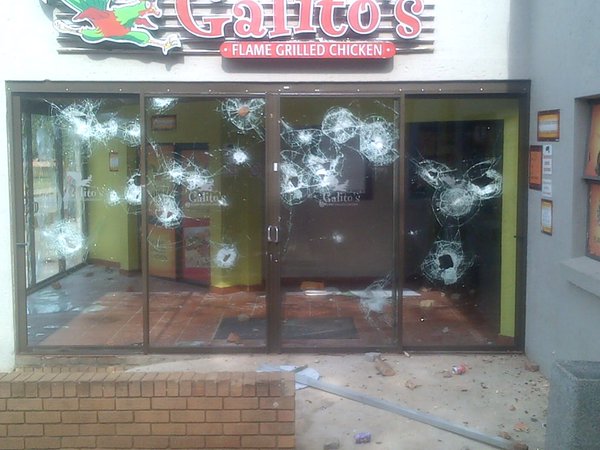 Looting: a fine beginning for the struggle against the colonial occupation of the commodity — but only a beginning
Looting: a fine beginning for the struggle against the colonial occupation of the commodity — but only a beginning
…more here “Students went on rampage and vandalised six cafeterias and national outlet restaurant after the institution said it could not commit to their demands for free education. The university remains closed. The students vented their anger on buildings, including security guards rooms at the Turfloop campus in Mankweng east of Polokwane. Student leaders told the principal and vice-chancellor Prof Mahlo Mokgalong that because he failed to make any assurances that the university will provide free education and write-off historic debts the institution “will be ungovernable”.”
…Gauteng: students threaten property rental company…Western Cape: residents barricade major road with shipping container “Protesters blocked the main road with a shipping container, while on Monday they had used boats and a caravan.”
On The Economic Freedom Fighters (EFF)
…Johannesburg: after workers join march led by millionaire demagogue… EFF make their bid for best political recuperator of rising movement by occupying precinct outside the stock exchange with 40,000 demonstrators
SK writes:
The EFF are the South African version of Syriza and Podemos. Due to the conditions here our version adopts a militant leftist form that is archaic almost everywhere else. They may bark a lot about nationalisation and so on now but I’m almost 100% sure that should they ever come to power they will, as was the case in Greece, rapidly tone down the rhetoric in the name of realism. Like these other parties they have a presence in many real social movements such as land occupations, the latest student protests, and the miners strikes, all of which enhances their prestige and contributes to their popularity in the polls and on the streets. But this should not be over-estimated. They are a long way from being able to play the role the Communist Party in Italy, France and Portugal did in containing the revolutionary struggles of the 1960s/70s. In Marikana: A View From the Mountain the interview recounts how Malema contributed to the strike wave through his prestige and a small amount of material support, resulting in an exchange with a miner where he asks whether the workers considered the EFF as opportunists. “Yes. We know they are using us, but we are also using them.” This situation, of course, can and will change.
“The country’s first mass-popular political party of the left, the
“Marxist-Leninist-Fanonist” Economic Freedom Fighters (EFF), entered
parliament in mid-2014 after less than a year in existence, bringing 6
percent of the national vote and unprecedented and thoroughly rambunctious
energy to the torpid legislature. The twenty-eight EFF parliamentarians
disrupted Zuma’s speeches by shouting “Pay back the money!,” reminding
society of the $20 million in illegitimate public subsidies for the
president’s rural mansion, and they repeatedly created chaos in the
national and provincial legislatures. But in March and April, the EFF
purged four high-profile dissidents opposed to the party’s alleged petty
corruption. Soon thereafter, EFF “Commander in Chief” Julius Malema’s
attempted reconciliation with tax authorities was sabotaged by the state,
raising the likelihood he will be jailed over $1.5 million in payments he
disputes (in the wake of Malema’s lucrative reign of “tenderpreneurship”
deal-making during the time he led the ANC Youth League).
Despite these setbacks, exceptionally gripping protests against historic
racial injustices emerged, which reflect EFF influence in South Africa’s
politics of symbolic drama. Upon entering parliament last year, Malema
vowed that the prominent statue outside the building of South Africa’s
first prime minister, Louis Botha, would have to fall. On March 11, radical
student activist Chumani Maxwele carried human excrement from a
porta-pottie in his home township of Khayelitsha to the elite University of
Cape Town. He attracted a small crowd of supporters and press, and flung
the crap at the dominating statue of Cecil Rhodes, the notorious late
nineteenth-century colonist whose Table Mountain land bequest became the
university’s grounds. The solo protest soon won a wide swath of allies
anxious to challenge durable white power there (for example, only five out
of more than 200 professors are black South African, “African” in race,
though the society is 80 percent African). As the full weight of Rhodes’s
awful legacy was debated, university leaders on both the left and right
were repeatedly humiliated, culminating in the statue’s removal to an
undisclosed location within a month. The racial justice movement spread to
universities in Johannesburg, Durban, and Grahamstown (whose “Rhodes
University” needs a name change); there were soon acts of apartheid-statue
desecration in other cities, followed by a rise in high-profile land
invasions coordinated by the EFF.” ( here )
SK writes, re. the above: — a good indication of just how archaic leftism is in this country. The fact that the leadership of the country’s major union, a bunch of unreformed marxist-leninists bending over backward to appeal to their comrades in the official communist party from which they were expelled, are attempting to form a workers party in a united left front with a bunch of other marxist-leninists would appear severely outdated even in Cuba these days! As such there is literally no such thing as an ultra-left, and everybody now knows the superlative poverty of what passes for anarchism here; none of which is a bad thing as far as the real movement goes, in fact the delusional pre-historicism of these sub-bolshevik fossils makes the threat of co-optation from the left that much less likely.
It occurred to me that it wouldn’t be impossible to imagine Malema adopting role of Hugo Chavez and really having a go at instituting a proper social-democratic regime complete with nationalisations of major mineralresources. The Latin American leftists of recent years have demonstratedthe success of this move in seizing power at the polls whilst co-opting social contestation in the streets, and I remember article by the EFF former ideologue in chief, Andile Mngxitama, discussing Evo Morales and his chums in Venezuela and Cuba.
SamFanto writes: I suspect that only if international capitalist interests are seriously threatened by a social revolution in South Africa that such a form of recuperation could develop. At present, neoliberalism would not allow the EFF to come to power with such a Chavez-like nationalisation project and would do all it could to sabotage such a possibility. The comparison with Syriza is far more likely, if ever the EFF had a genuine chance of being elected. South Africa is far more integral to international capital than Venezuela (and remember, there the US tried to launch a coup that was succesfully challenged by a mass movement putting Chavez back into power).
On Student Poverty, South Africa-style
Re. graduate unemployment in SA: it remains fairly low, at about 5%. This is fairly low, given the fact that unemployment generally is officially 25.5.% at the moment (ranging between 21.5% and 31.2% this century). “Joubert dispels the myth of graduate unemployment in South Africa, concluding that in South Africa only about a 100,000 graduates out of two million are unemployed at any given stage.” ( here ) Another study which confirms this says “the available data do not allow us to assess the nature of the work that graduates do. We cannot tell if it matches their qualifications; we do not know what it pays, etc. But we know from other research that real wages of skilled employees rose between 1995 and 2005 even as wages of unskilled and semi-skilled workers more or less stagnated, so new graduates appear to have entered the labour market at a particularly propitious time.” ( here )
A very interesting essay written by Charles Van Onselen in the late 1990s demonstrates the depth of the current student unrest and also offers a useful historical perspective on the often highly abstract and ideological “process of ‘transformation’ in higher learning. At first blush this programme of transformation – which reflects some undeniable political, social and cultural forces at work in contemporary society – has more in it to laud than to lament. It is precisely because of these underlying realities that most of us have come to adopt its ultimate goal as a broadly desirable educational outcome, and come to confine our criticism as not to the ends it seeks to reach, but to the means that are used to achieve it. For most South African citizens it is not the goal of transformation itself that is at issue, but the questionable means that an often angry and impatient generation of student activists uses to achieve its objectives. But even such public criticism there is, is often muted – more in sorrow than in anger – precisely because the underlying notion is that much of the activity is directed towards a desirable educational outcome. Thus, most of the criticism is based on the assumption that what we are currently confronted with are simply local manifestations of age old methods of student protests and riot, and that if it were not for the impatience of youth which often takes on anti-social forms and a lamentable shortfall in state financial resources, the instability in South African tertiary education would probably fall within broadly acceptable parameters.
We may, however, need to abandon these conventional wisdoms and try to see the problems in a slightly different way. In particular we have to examine three propositions that flow from adopting a slightly longer term historical and sociological perspective and a much closer analysis of the forms of the supposedly ‘antisocial’ behaviour that current student unrest takes. One, that what we are currently witnessing is not so much a classical manifestation of ‘student unrest’ released by unrealistic expectations coming in the wake of a largely peaceful and successful political revolution, but an insistent plea for the alleviation of acute rural (and urban) poverty and distress via a youth cohort that is acutely aware of its responsibilities to the extended family, and which senses that it can most readily articulate its demands in educational rather than social terms. Two, that in accommodating economic demands that seem to come from ordinary students struggling to survive in the tertiary sector, but which in reality derive more from a youth cohort deeply scarred by the ravages of apartheid schooling and poverty, the current government is in danger of confusing its welfare and educational responsibilities to the detriment of both. Three, that seen in this light, the current disturbances in the tertiary education sector are both less irrational and less ‘anti-social’ than they seem. Nevertheless, the short term and short sighted accommodation of problems that appear to manifest themselves primarily as ‘student’ demands, might also hold longer term political and even potentially revolutionary consequences for society as a whole…
Viewed from this perspective it becomes easier to understand why it is that many young black South Africans see access to a college of education, a technikon or a university as assuming an importance that far transcends the intrinsic value that can be attached to a tertiary education qualification per se. And why it is that many are willing literally to fight for the right to enter and stay in the sector regardless of how well or how badly they have been prepared for it by their secondary schooling. For thousands of black South Africans, access to tertiary education has become the difference between having a roof over your head and being homeless, between being fed for a part of the year or starving, between owning some clothing or being decked out in rags, and between meeting your social commitments by sending home small amounts of cash to your family, or joining the ranks of those who are fully unemployed. In the absence of universal conscription to the armed forces, significant youth employment schemes or the dole, much of the tertiary education sector becomes, in effect, a sponge which the state – perhaps unwittingly – uses to absorb thousands of unemployed youth who still seethe with a revolutionary anger that derives from the injustices of the recent past… Seen from this perspective it is easier to understand why it is that the process of student admission and re-admission is so often accompanied by violence, why there is a populist tendency to exert pressure downward on academic standards (pass one, pass all), and why all exclusionary processes – but more especially those involving so-called ‘financial exclusions’ – are vulnerable to challenge by riot.”
A recent article points out how these conditions might contribute toward determining the peculiar timing of the uprising: ‘Normally on university campuses it is very difficult to whip up much in the way of student activism on the eve of crucial exams – everyone is too frantically focused on revision. Yet the current wave of protest erupted in late October, just on the eve of exams. However, Blade Nzimande has been pushing many hundreds of thousands of extra students into the universities. Even before he did this, the failure rates among poorer black students were horribly high because their school education had been so deficient. By definition, the extra students now pushed in will be weaker still. In other words, there will be very large numbers of students on all campuses who, by October, know they are virtually certain to fail and thus be excluded. To which, of course, one has to add those who have already exhausted their bursaries and loans – with some of their fees still unpaid. All of these students were, by October, living under the lengthening shadow of exclusion. At this point – amazingly – university managements decided to announce their double digit fee increases for 2016. Had they left their announcements until December, nothing would have happened.’
The same article discusses the implications of the student movement in terms of political-economy: “The big event of the year from an analyst’s point of view was obviously going to be the settlement of the pay dispute with the public service workers. Over and over again the IMF and the ratings agencies had questioned whether the government really had the backbone to stand up against this, the bureaucratic bourgeoisie, of which government is part. The answer was a resounding No. In the same quarter that South Africa’s economic growth went into reverse at -1.3%, the public service workers got a settlement variously reckoned at 10.1% to 11.5%…This was already quite fantastical but it now emerged that neither the President nor the Minister had the slightest idea as to where the money was coming for to pay for the 0% increase, the cost of which was variously estimated at between R2.7 and R4.2 billion… As an analyst what you couldn’t help notice was that every rule of rational or even merely legal decision-making had been broken. Everything was up for grabs and the only real rule was that the government could not withstand determined pressure from any direction. It had given in to the public service workers despite the already widely forecast danger that this could cause another ratings downgrade. And now it gave in to the students with no idea where the money was coming from.” [SK]
28/10/15:
South Africa, Johannesburg: students clash with cops, bookshop apparently burnt…2 vehicles torched Attempts were made to burn two vehicles and a bookshop, all of which failed. But control panels were successfully ripped off turnstiles. ‘Spokeswoman for the university, Shirona Patel, said attempts were made “to burn two cars belonging to contractors, books in a bookshop in our student centre and start a fire outside the law library”, but the fires were extinguished by Campus Control.‘… Cape Town: CT signs agreement to directly employ outsourced workers … all charges against arrested students dropped… interdict against campus protest cancelled [SK]…KwaZulu Natal: protesting students arrested for trying to encourage and untimidate passive students…middle school students revolt against tests…Limpopo: council offices firebombed after council cuts off electricity to residents
29/10/15:
South Africa, North West: huge cache of radical critique of class society forces closure of classes… Johannesburg: fog factory suspends classes at three campuses as protests continue
30/10/15:
South Africa, North West: state houses hundreds of highschool kids as their parents threaten to disrupt their obedience training “More than 200 matric pupils are writing final exams at safe camps in the North West following threats of a school shutdown due to service delivery protests…The pupils were from 17 schools in the neighbouring villages that had threatened to shut down schools…The pupils arrived at the school on October 24, accompanied by the school governing bodies (SGB), who ensured that learners were safely housed with 24 hour security.”…Western Cape: university vice-chancellor’s office ransacked by angry students, windows smashed, security guards injured
2/11/15:
4/11/15
6/11/15
South Africa, Johannesburg: workers and students from 4 universities march against outsourcing, 13 workers and ‘scores’ of students arrested… this source suggests 150 are being held at Brixton police station… whilst this one says 163
8/11/15
South Africa: University of Johannesburg caves in to pressure and signs agreement to end outsourcing
9/11/15
South Africa, Cape Town: students set up barricades on campus at University of Cape Town and march to parliament, joined by workers inside parliament itself who stage sit-in protest… Johannesburg: protesters shut down road outside courtroom… as charges against workers and students withdrawn
10/11/15:
Students advance on pigs, who are soon forced to retreat
South Africa, Cape Town: hundreds riot late into the night at University of Western Cape to demand release of arrested students… damage from burning and looting estimated at millions of rands (video)… another video with interview of protesters and presentation of context…this eye-witness report stating cleaning workers also involved… riot police fire stun grenades, smoke grenades and tear-gas to dispersewildcat strike at parliament after workers storm committee meetings stating their grievances directly to MPs… but prove unsuccessful as workers regroup…
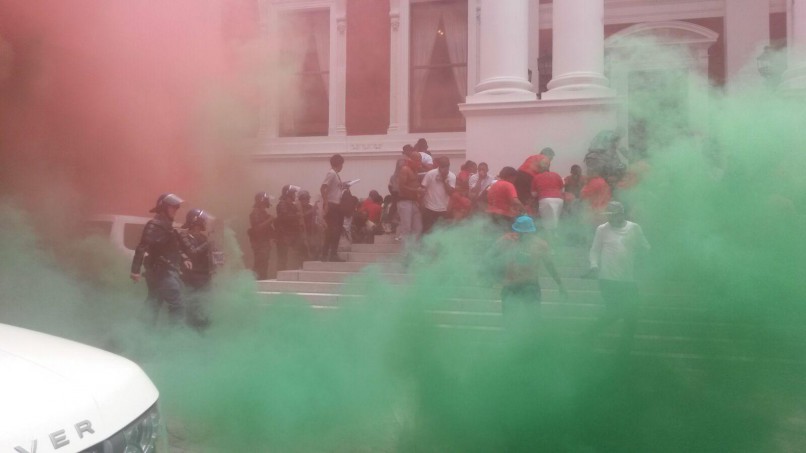
Police attack workers picket outside parliament
Limpopo: police escort construction equipment to repair trenches dug across road by rioters… apparently this tactic has been fairly widespread in the region
12/11/15
South Africa, Cape Town: Parliamentary workers’ strike enters fourth day, takes on national aspect “The protest at Parliament is taking a national turn: on Friday, Nehawu workers at the Gauteng legislature will observe a moment of silence, said Tembe, while messages of support have come from the legislatures in KwaZulu-Natal, Mpumalanga, the Western Cape and the Eastern Cape…”
13/11/15:
corporate leisure vs student displeasure
South Africa, Western Cape: all campuses of Cape Peninsular University of Technology closed as riots erupt at Bellville and Wellington campuses Students at Belleville smashed windows of the administration building, set alight the campus security building and burned furniture, after which 27 were arrested and later released on bail; according to a police constible a male student had been arrested at the CPUT campus in Wellington for “arson and malicious damage to property”. Interestingly, CPUT authorities said they could not understand what had sparked the protest in light of the fact that debt for 5000 students totalling R111 million had already been written off this week, whereas protesters were apparently demanding that all debt as well as all tuition fees be scrapped. According to this interesting report, which includes a video, ‘One student, Zimkita Songqengqe, said the protest started at 7.30am on Friday. “We decided to protest again because we are unable to pay our fees. We don’t have financial aid and some of us don’t even have parents,” she said. Philiswa Dingiswayo, another student, said her farmworker parents earned R75 a day and could not afford to pay her fees… Some students responded aggressively towards the police and journalists, throwing stones and swearing at them. A television journalist was harassed and his video camera taken from him. “One student had a knife and the others had stones. They took my camera and ran away with it,” he said. When the journalist managed to get his camera back from campus security he found his memory cards had been removed, apparently to ensure that footage of the morning’s vandalism could not be used to identify any students. Another journalist said: “Students wouldn’t let the media cover their protest this morning. When I lifted my phone or camera they went berserk.” Some students also tried to prevent Weekend Argus from interviewing other students. One protester stoned the journalist and another, after being arrested, angrily told the journalist to “f**k off”. Students said those organising the protests were also threatening them in their rooms, forcing them to join in. “At 6am they knock on your doors to join the protest. If you don’t join they flood our rooms so that we have to get out. They also use a fire extinguisher to get us out of our rooms,” said one student.’ … one of the immediate wider consequences of the revolt at CPUT was the effective suppression of a reactionary demonstration at UWC planned by parents, staff and students demanding for exams to be written ‘in peace’… on the contrary, officials announced the same day that the scheduled exams would be cancelled altogether… it should be noted that although the UWC Student Representative Council claims that 15 000 students wanted to write their exams rather than continue protests, this body has been accused of being responsible for the protests in the first place by betraying the demand to scrap all historical debt shared by both UWC and CPUT protestors. ‘Some UWC students have accused the SRC of not being on their side. “We don’t trust the SRC and we don’t believe they are representing the students’ voice in that position. We believe that they are in bed with management.”’ [SK]
a burnt-out piano fuels the flames of revolt on the barricades at UWC, where students (or should we say radical musicians?) sabotage the machinery of alienated education-production-consumption.
14/11/15:
South Africa, Mpumalanga: two inmates die and six badly burned in prison protest apparently they set their mattresses on fire over poor conditions and it backfired [SK]
15/11/15
South Africa, Cape Town: Parents issue statement supporting student protests at UWC and CPUT “As parents we do not condone violence. We do not believe, however, that there is a symmetry between the violence of armed police and private security forces that indiscriminately shoot at students and their resistance. There is a pattern of behaviour from those in power and their armed forces, which got its most heinous expression in the Marikana massacre that suggests that when protests are directed at authority, there is no need to engage. Rather the security forces are substituted for political processes. Those in power and authority wish to buffer themselves from legitimate protest, anger and frustration of those in society who are yet to taste freedom”… 400 township residents blockade road
16/11/15
Arson at CPUT Bellvile campus
South Africa, Kwa-Zulu Natal: 2000 blockade national highway and burn community hall in protest over water shortage“There was also vandalism in one of our community schemes where fences and doors were stolen” … Cape Town: CPUT students disrupt traffic in city centre “at least one protesting student has been taken into custody following a disruptive protest in the Cape Town CBD earlier today. Demonstrators brought the CBD to a standstill as they protested along Darling and Adderley Street.”… UCT students protest over rape of a woman at occupation (video)” A small group of protesters smashed windows, threw buckets of urine and attempted to disrupt exams at the sport centre on the University of Cape Town campus” It should be noted, in light of the admirable solidarity displayed by the students towards their comrade, that this comes as something of a wake-up call to a problem that women have been trying to complain about all along, but did not get taken seriously. Three responses in their own words: ‘We are done with “liberation spaces” where we are told to swallow violence for the sake of unity. The patriarchy will fall NOW’; another said ‘The #RapeAtAzania is doubly tragic because women in the movement have BEEN saying they feel unsafe since the statue came down. Since forever‘; another said ‘I honestly wish the #RapeAtAzania last night is the first time I’ve heard of sexual assault in our student movements. It’s not.‘…Bellville: student financial aid building set alight for the second time… East London: students occupy university building [SK]
Mtubatuba residents burn down community hall
17/11/15
South Africa, Stellenbosch: workers and students barricade roads, burn rubbish over wages and outsourcing (pictures and video) “The group started protesting this morning in Victoria Street by burning campus property and blocking roads. The group set fire to objects across campus including bins and crates. Businesses in the [town] centre have been closed”… four arrested, stun grenade used to disperse their comrades “A stun grenade was fired at a crowd of protesters apparently rattling the gates of the Stellenbosch police station following the arrest of four Stellenbosch University workers” (video)
Students outside copshop after their comrades arrested
18/11/15:
South Africa, Pretoria: students shut-down first day of exams in fees protest, torch cafeteria and student centre “They argue that the non-increase in fees next year will be not good enough, as some students won’t get their final results because they owe fees”…
19/11/15
South Africa, Pretoria: students loot shop, smash windows, hijack buses to use as barricades, torch admin building, attack guard“The protesters were apparently bused to the campus, where they stormed into a pizza shop and helped themselves to muffins, softdrinks, cigarettes and also stole cash from the tills, according to some students. They went on the rampage, throwing stones randomly towards the student residence and damaged a few windows. Some non-protesting students were forced to take part in the protest. Keys of the two students buses were taken by force from the drivers and the buses were parked in the middle of the road… Smoke billowed out of the students governing office but the fire-fighters were able to extinguish it… One guard showed his colleagues a bleeding wound on the head, after he was allegedly hit by one of the protesters.”
20/11/15:
South Africa, Pretoria: TUT exam centre torched as students demand eradication of all debt … interestingly, according to this report, students claim their actions had nothing to do with any demands, but were self-defence in response to unprovoked attacks by campus security: ‘”Students entered the campus as a group after watching soccer but security thought they were going to cause trouble and attacked them… The students then called backup from the students who were in their rooms and clashes flared up which eventually led to the damaged property. The bouncers provoked the students.”… Three halls were set alight at the Soshanguve campus during the weekend protest. Police spokesperson Captain Tsekiso Mofokeng said furniture was damaged in the fires. Two private vehicles belonging to security guards were also set alight.’ [SK]
the examined examine the authoritarian tools of the examiners; the tools fail
22/11/15:
23/11/15:
South Africa, Cape Town: CPUT postpones exams till next year after 43 students arrested for “violence” (ie vandalism) “Chaos broke out when protestors clashed with police on the Bellville campus. Earlier the morning, exams at the Bellville campus were postponed after vandals damaged water pipes, causing flooding at the Major Sports Hall overnight. Students and staff were met by pools of water, damaged desks and chairs and camera screens. It appears that when students heard the exams will still go ahead, a group stormed the auditorium where examinations were set to be written. Singing and dancing, the crowd broke down doors and threw chairs on the floor, before ripping fire extinguishers from the walls. Police fired stun grenades to disperse the angry mob that started pelting the security guards with stones…A third-year protestor says they will not stop until their demands are met.”…Pretoria: TUT closes 2 campuses for the rest of the year
About outsourcing:
“All the employees I’ve spoken to are very clear on the fact that they experience outsourcing as exploitative. Some are ambivalent about protesting and the consequences for them. But I can’t get a clear answer on why, or even whether, insourcing will “definitely” be better for them.”
It seems from this interview that much of the demand for insourcing is coming from older workers who were there before outsourcing began and experience resentment that some remain directly employed whilst they do not. But this is also specific to one university and may be very different elsewhere. [SK]
24/11/15:
South Africa, Cape Town: striking parliamentary staff storm National Assembly and force cancellation of parliamentary sittings “The protesting staff stormed the public gallery of the NA at 10am, effectively forcing the adjournment of the sitting. They stayed put, refusing to move until their demands were met, eventually succeeding in getting the second sitting of the day at 2pm cancelled as well…The passage of two pieces of key legislation this week – the adjustments appropriation bill and the division of revenue bill – hangs in the balance as a result of the strike….Workers also disrupted committee meetings, forcing MPs to adjourn their business.”…Johannesburg: pikitup strikers trash joburg
KwaZulu Natal: Truck involved in accident looted by locals, cops outnumbered
25/11/15:
South Africa, Johannesburg: pikitup workers on illegal strike over boss’s corruption hit by rubber bullets and stun grenades…security vehicle and soccer star’s car smashed by runaway rubbish-truck ‘According to an eyewitness, the striking workers allegedly hurled stones and other various objects at the privately-owned truck, thereafter forcing the driver out of the vehicle. “After the driver abandoned the truck, one of the striking workers got into [it], released the handbrake, and let the truck run on its own down the street. The truck hit a tree as it passed Melle Street, before it hit a private security car and then the BMW 1 Series.”‘… cops accused of firing live ammo at strikers, 9 workers injured
games are always more fun in a rebellion, exhibit A: working-class bumper-cars
Western Cape: protesters against electricity cut-offs accidentally set fire to their own shacks “…residents set alight a council truck which then veered off the road into an informal settlement and burnt a few shacks. … the protest started when Metrorail cut the illegal electrical connections that hung over the railway lines. “Bricks were packed on the railway line and tyres were burned in the streets by the protesters. “Thereafter they marched to the fire station and stoned the vehicles driving past.” Van Wyk said the protesters went back to the main road and set alight a municipal truck – pushed the burning truck near shacks and, as a result, five shacks were razed. Residents later marched to a councillor’s house, and stoned it. “No arrests were made. ….“Some households in the formalised X section are illegally supplying their opposite neighbours in the informal settlement in RR section with electricity,” Metrorail said….“These illegal connections are supplied both across and underneath our rail infrastructure, causing havoc with our train service”. Walker said 396 trains were delayed in October due to illegal connections; totalling 5264 minutes of delay” …East London: multiple roads surrounding city hall blockaded by protesting taxis… Pietermaritzberg: workers and community members riot against taxi-fare automation ‘The community told us they wanted to use a card where they could load their fare on weekly or monthly and not have to pay cash every time they caught a taxi… The operation was properly introduced yesterday [Tuesday] and the drivers and conductors started protesting in France. Now the community has joined in.” He said the card system would not cost more or less than paying cash, but was rather a system of convenience. However, commuter and France community member Thembi Dumakude said the card system would eventually phase out the role of taxi conductors and lots of people would lose their jobs. “This is a poor area … and we do not want that.”’ … The front page of today’s newspaper, ‘SA ECONOMY BLEEDS BILLIONS’, includes this amusing finding in an audit of state expenditure: ‘One of the most bizarre findings was the R32 million included in the total of R936 million deemed “fruitless and wasteful expenditure”, which was ironically spent to “prevent further fruitless and wasteful expenditure”‘ – all of which demonstrates yet again the bankruptcy of that fraudulent ideology called ‘the economy’ (from the Greek root meaning ‘household management’) which reproduces the ideology called ‘the family’ at ever higher levels of abstraction, from the firm through the nation-state to the ‘world market’. As McIntosh and Barrett write in The Anti-Social Family, ‘”his familism is part of a broader political rhetoric; it is a metaphor to endow the government’s economic policies with a spurious ‘commonsense’ legitimacy. The chancellor of the exchequer, like any housewife or corner grocer, must balance his books and cannot afford your nursery or hospital.” The struggles of the present era that, combat particular consequences of this smokescreen in the streets, reveal, through the sudden reversals in official declarations regarding what is affordable/reasonable/possible, that what lies behind the lies of economic law are always the realities of political power. Is it possible to begin a meaningful attack on the general causes of this mystification before movements are faced with a decisive confrontation for which they have hitherto never been prepared? How can we make a practical contribution towards pushing particular struggles, many of which rapidly escalate into major social crises, past ‘the point of no return’ before they are recuperated by ‘the voice of reason’? [SK]
26/11/15:
South Africa, Mpumalanga: teachers walkout, refuse to administer student tests…three unions, representing 400 000, vow to boycott tests…Pretoria: new footage of thirsty students looting liquor shop at Pretoria union building protest
28/11/15:
South Africa, Johannesburg: Smelly Christmas and a Crappy Poo Year
1/12/15:
South Africa, Johannesburg: 4 scabs shot by wildcat Pikitup waste disposal strikers (though cops say that it was the scabs who shot each other)…Contradictory reports on shooting has head of scab agency saying they were “willing to bring in another 15 000 security guards to protect the cleaning crews”
6/12/15:
South Africa, Limpopo: residents burn dozens of vehicles in conflict with mine ‘Disgruntled residents of Steelpoort, Limpopo, reportedly said they would burn cars belonging to “white people” as a dispute with mining companies over employment issues continued… Protest leader Skhalo Motubatse reportedly said burning the vehicles was in an effort to disturb production at the mines. “If they don’t remove the mayor, we are going back to the streets and will cause more damage. We are burning trucks and cars belonging to white people. There is no black people’s car that were burnt, it’s only because whites don’t participate in the protest.’ According to one report, 11 Trucks, 4 Buses and 3 Cars went up in flames.
old MacDonald’s truck got torched, heeya heeya ho: Steelport proles yell ‘You’re fired!’ at permanent unemployment
This interesting article from July provides some historical context to the present movement, which seems to be a continuation of what is described therein: ‘For a long time, the African National Congress (ANC) government has claimed to be the buffer between the rich and the poor. However, this is no longer the case. If you do not believe me, please ask Mineral Resources Minister Ngoako Ramatlhodi… The residents were demanding jobs from the local mines. By the end of Ramatlhodi’s first meeting with the mine bosses and community representatives at the Greater Tubatse Local Municipality chambers, it was clear the angry masses were dictating the terms. According to the local Steelburger newspaper, the meeting was brought to a standstill when the minister told the crowd that he did not come to Tubatse to be disrespected. “I don’t have work opportunities in my pocket; I never came here to be disrespected by you,” he said. The residents started hurling vulgar words at Ramatlhodi and were escorted out of the council chambers by a strong police presence. The final word from the residents was that “the unrest will stop” when people were employed. Otherwise, there would be no peace. At the second meeting the next day, Ramatlhodi and the mine bosses realised that they had to play by rules that were not written in the boardrooms but on the streets. Suddenly, 239 job opportunities were available in the six mines. Also, each mine agreed to provide 500 learnerships and to train 10 artisans. So up to 4,000 people have, by use of force, been taken off the streets into some form of employment. Who said violent protests do not solve anything? The angry mobs won the day and the protests stopped.’ [SK]
7/12/15:
South Africa, Pietermaritzburg: About a hundred municipality workers on temporary contracts downed their tools and protested outside the municipal depo yesterday demanding permanent positions
9/12/15
South Africa, Gauteng: businesses attacked and looted after hostel occupation evicted… Pietermaritzburg: city crippled by intensified municipal worker strike ‘The workers, who are demanding permanent employment, have camped day and night at the Doull Road depot since Monday. Temporary workers from the water, sanitation and electricity departments barricaded the depot with burning tyres and piles of rubbish resulting in permanent workers unable to attend work.’
11/12/15
South Africa, Pietermaritzberg: more than 50 municipal workers arrested in continuing wildcat strike
23/12/15
South Africa, Johannesburg: refuse collection workers win wildcat strike
4/1/16
South Africa, Durban: Drivers block major highways with around 100 buses in
wildcat strike (pictures)
7/1/16
South Africa, Mpumalanga: road blockades in protest apparently related to dirty water
*’The locals accuse the Emakhazeni Municipality of failing to provide them with basic services. They currently depend on boreholes for drinking water. “We have a lot of problems here, we do not have clean water, the municipality is not doing anything to resolve the problems,” says community leader, Funky Mbethe.’ *According to the video residents also complain that the garbage is not being collected, and that they are forced to rely on bottled water as the tap water looks dirty.
9/1/16
South Africa (Marikana): president cancels visit after protests erupt over state housing
11/1/16:
South Africa, Johannesburg: students disrupt registration at multiple universities demanding end to registration fees, free education and debt cancellation
‘*S’bonakaliso Nene, a Wits student active in last year’s protests, said, “The greater goal that we’re pushing for is free education in South Africa now – not later, not soon, not in the future, not in our lifetime; Now! We need to start pushing for that. We need to see tangible, comprehensive steps taken by government, by all those in power, to show us the ways and means in which they are trying to attain this. We don’t feel like a zero percent increase is good enough. That’s merely just a start, because if you look at it those people who couldn’t afford fees, they still can’t afford fees now. Genuinely I feel like last year was a spark to the movement and how things are going with our generation,” he continued. “I think this
year’s going to be a whole lot more robust”… Some people who came to register on Monday, however, felt frustrated by the disruption… Asked about those who were disappointed on Monday, the SRC’s Hassan said, “A revolution is going to be inconvenient.” ‘*
12/1/16:
South Africa (Gauteng): no buses as wildcat strike hits region
13/1/16:
14/1/16:
One person was killed after being shot by police, and this led to the escalation of the protest. According to this report,
*’”The municipal offices were burnt twice. They started burning them yesterday [Wednesday] but there was little damage, which forced them to return today [Thursday]”… some of the protesters were found with alcoholic beverages
stolen from a local bottle store.’ *This is a welcome improvement on the what has hitherto been near-total inaction to the scores of murders perpetrated by the police in recent years. A similarly angry response is reported in Johannesburg on the 23rd; hopefully this signals the beginning of a trend.

The history of all ‘historic’ buildings is the history of class struggle:
Mpumalanga municipal offices

*Thirsty proles employ a time-honoured solution to dirty tap water*
Durban: 300 students protest outside the Technical Vocational Education and
Training college demanding to be registered
15/1/16
South Africa, Cape Town: trains torched in response to police drug raid
16/1/16
South Africa, Cape Town: university suppresses opposition to exams by making students write in military base
“CPUT students began writing their exams at Wingfield under military watch, after protest violence at its Bellville campus late last year led to the campus being closed and exams postponed…Business student Senzo Kwaza, who returned to the city from the Eastern Cape to write, said Wingfield was a “very hostile environment… I went on the internet and researched Wingfield. It’s a venue that was used during apartheid. In 1976 students were taken there to write exams.”
19/1/16
South Africa, Port Elizabeth: parents shut down 52 schools demanding teacher shortage rectified
23/1/16
South Africa, Johannesburg: 500 riot outside hospital in response to death in police custody (video)
26/1/16:
South Africa, Gauteng: ANC offices vandalised by its own members
27/1/16
South Africa (Eastern Cape): councillor’s house torched, roads barricaded and councillors from three wards forced to flee homes as 2000 take to the streets…Durban: roads barricaded and shops looted in protest against lack of electricity
31/1/16
South Africa, Gauteng: petrol bombs hurled at cops in housing protest
1/2/16
South Africa, Limpopo: over 600 truck drivers go on illegal strike after wage reductions
4/2/16:
South Africa, Johannesburg: waste disposal workers go on illegal strike again
11/2/16
16/2/16
South Africa, Cape Town: piles of paintings, bus and car burnt at University of Cape Town protest over accommodation shortage. “Tonight we witness the Black psyche unleashing generations of repressed pain. 2016 is the year we no longer pander to whiteness” stated the Rhodes Must Fall twitter account. “We [must] go to each and every building and every problematic white person’s picture we must take down,” announced a protester to the crowd. According to the protesters this was a “decolonisation project” and the burning of artworks represented “colonial symbols being eradicated”.
I’m not certain what to make of all this. Despite the outdated black nationalist rhetoric, the statement that this is an instance of some people ‘unleashing generations of repressed pain’ seems to contain a kernel of truth. The explicit grievance given as the source of the protest does not otherwise explain what happened very well. Certainly university accommodation is a pressing concern for many in a country where, as Van Onselen observed, scholarships are valued as much for providing desperately poor students food in their stomachs and a roof over their heads as it is for providing qualifications. A 2015 survey, which focused on nine universities in South Africa, found that there were just over 68,000 spaces for more than 140,000 residence applications received in 2015. UCT could only accommodate 6,600 students in residence, but received over 21,000 applications. The problem is that the scholarships given to the most desperately poor students provide for accommodation either on campus or in private dwellings if no space is available at residences. It is possible that the stipend provided with these scholarships is not enough to pay for rent in the suburbs, neighbouring UCT, many of which are pricey, leading to a long commute for those who don’t get a place in residences.
Evidently it has to do with resentment that, according to the Rhodes Must Fall group, “white foreign students are given preference over local black students”. In any case they are quite right that the art and architecture of this miserable world are weapons in the hands of those who would extend their poverty indefinitely, and as such deserve to go up in flames. Everything about this excuse for a life is terrible and ought to be treated with the contempt it inspires. But our beloved neocolonial order will hardly be threatened so long as its enemies remain content to target vacuous abstractions like ‘whiteness’ — which is precisely analogous to declaring war on crime, terrorism or drugs… Thankfully, the appallingly muddled ideology spouted by the Rhodes Must Fall group seem not to have any influence outside UCT, an institution whose recent proliferation of revolutionary bombast seems is redolent if its heyday during the apartheid when it was known colloquially as ‘little Moscow on the hill’… [SK]
18/2/16:
South Africa, Eastern Cape: councillor’s house torched in social strike
“This comes after Intsika Yethu Municipality demolished houses at Nyanisweni, Nkanini location, leaving about 15 families homeless. The incident happened on Thursday. Since then residents have protested by closing shops in town and demanding that the municipality find them accommodation… Residents also prevented people who work in town from going to work until the municipality agrees to have a meeting with them. They also set alight a ward councillor’s house on Thursday.”
19/2/16:
South Africa (Pretoria): two campuses shut down as protest against Afrikaans language instruction escalates
If the footage (note the red, yellow and green T-shirts that serve as their uniforms) is anything to go by this seems to involve heavy participation by the EFF and other political rackets of various kinds [SK]
Video here: http://www.enca.com/media/video/university-pretoria-students-arrested-following-clash-police
Johannesburg: bus burnt and university buildings occupied in solidarity with Cape Town students
22/2/16:
…Pretoria: clashes between students over Afrikaans
…Kwazulu-Natal: University shut down by workers and students in protest over outsourcing
…Durban University of Technology shut down by protests At this institution apparently lead by the official Student Representative Council which has been completely discredited almost everywhere else. [SK]
“One of the best features of the #FeesMustFall movement was the unity of black and white. Struggle and solidarity overcame racial divisions. We call on white students to mobilise alongside their black brothers and sisters to protest against reactionary attempts to divert this class struggle into a racial conflict”, said one statement. As is apparent by the language used here, the protests at this institution are lead by a political racket:
“Workers were protesting today demanding the implementation of last year’s agreement to end outsourcing and demanding the reinstatement of Trevor Shaku, a leader of #OutsourcingMustFall and the Socialist Youth Movement, who was dismissed from his post as a research assistant at the university for his role in the campaign”.
…Durban: two cops injured in protest, apparently over candidates for municipal elections
23/2/16:
South Africa, Limpopo: houses of three cops torched, mayor’s house stoned and her electricity disconnected, municipal building torched, and 14 arrested in ongoing protest over water shortage (video)…Johannesburg: illegal strike by Roads Agency workers – burning tyres block roads
24/2/16:
South Africa, Tongaat: taxi drivers bring traffic to standstill after arrest of striking cabbie for intimidation of possible strike-breaker…Cape Town: doors and windows broken in third day of worker and student protest against outsourcing and repression at UWC
…Mafikeng: North-West University campus closed indefinitely as security vehicle and several buildings burnt to the ground in ongoing protest
“An administration block that included a science center was burned down… Student protesters also burned down the residence of a dormitory supervisor…A suspended student leader was addressing his supporters when private security tried to disperse the crowd using rubber bullets and tear gas, the university said in a statement. Students then pelted security guards with stones and burned a vehicle that belonged to the private security company, the statement said. In chaotic scenes posted on social media, large police vehicles rolled onto the campus to restore order. Students retaliated by setting fire to campus property.”
…Free State: classes suspended as statue torched in response to white attack on black protesters
25/2/16
…Pretoria: two universities shut down campuses in response to protests over language and fees
1/3/16:
South Africa, Pretoria: Tshwane University of Technology workers clash with private security guards in movement against outsourcing; Seven security guards injured and taken to hospital. More here
2/3/16:
South Africa, Johannesburg: two vehicles torched in protest over municipal demarcation
…Cape Town: houses damaged, bus and beer truck burnt down in protests on national highway
3/3/16:
South Africa, Cape Town: demonstration against sale of state property.
No link, but this is from an email press statement:
‘On Thursday afternoon at 3pm, Sea Point’s poor residents and low-income workers from the Reclaim the City campaign will march on the Tafelberg Remedial School to protest its sale by the Western Cape Provincial Government. They demand that the site be developed for affordable mixed-income housing. Members of the press are invited to join and report on the gathering.
The site has been vacant for a number of years after the remedial school was relocated and tenants of the Wynyard mansions were evicted. Recently the Provincial Department of Public Works declared the property “surplus” and sold it to the Phyllis Jowell School. The Province has refused to disclose how this decision was made – supporters ask whether this is reasonable given the lack of affordable housing in the city.
As property prices sky-rocket in Sea Point, and other well-located areas near the city, poor and working class residents are being forced out because they can no longer afford rising rents and are unable to buy homes.
Such residents of Sea Point refuse to relocate to townships – they assert their right to live close to where they need to be for work, and to where their children go to school.
Reclaim the City supporters demand that affordable housing options near the city be expanded. The use of state land for this purpose is key to transforming apartheid spatial planning and in meeting Province’s obligations to building an inclusive economy and city.
Although the Tafelberg School has been sold, transfer has not yet occurred. We aim to send a clear message to the Province that land is for people, not for profit.’
Unless such demonstrations involve massive numbers it is likely that direct action is a far more effective tactic — in fact the two need not necessarily be mutually exclusive, for example when an occupation ends up as the culmination of a march, the latter providing opportunity for the former. In any case the only practically effective way for poor and working class residents to ‘refuse to relocate to townships’ is through SELF-HELP; all other refusals remaining in the realm of impotent rhetoric… [SK]
[4/3/16]:The people involved apparently did plan initially on a more direct approach but then recieved a letter from the state offering to suspend the decision to sell the property pending (as usual) confidential negotiations. I won’t mention everything that was said then but will continue to participate on the chance that something interesting might come of it. More info to follow as developments unfold…
…Kwazulu-Natal: coal miners destroy conveyor belt and stage sit-in strike against dismissals
… large-scale looting produced by ANC faction fighting
‘Another wrangle over an ANC nomination process for the local government elections led to a mob of Folweni residents looting and then torching municipal buildings and vehicles worth millions of rands.
A municipal building, containers that were converted into offices, a grader, a light delivery vehicle, a tractor-loader-backhoe vehicle and two police vehicles were set alight last week.
More than 1 000 spades and 100 wheelbarrows were stolen.’
…meanwhile, ANC electioneering propaganda causes ‘outrage’
[SK]
…Western Cape: 2 cop vehicles smashed by local residents after 16 year old is arrested
“…while police began to conclude their operation, angry residents began throwing stones at them. “The crowd afterwards started to burn tyres and throw stones at all vehicles that passed by, as well as at the police vehicles,” said Van Wyk. He said gunshots were also heard, allegedly from within the crowd, prompting police to fire warning shots into the sand to disperse residents. Van Wyk said two Operation Combat vehicles were damaged….While no arrests have been made, police have opened a case of public violence and malicious damage to property for investigation. “We would like to reiterate that an attack on any law enforcement official is an attack on the State,” said Van Wyk.”
4/3/16:
Shop burnt and looted, two school blocks and three mobile classrooms set alight and destroyed in ongoing protest over municipal demarcation [SK]
‘The protests were apparently intended to frustrate the Electoral Commission of SA’s (IEC) voter registration drive this weekend… IEC voter registration centres remained closed in the area.’
5/3/16
… Gauteng: Protests against voter registration force withdrawal of officials in two parts of Gauteng
6/3/16:
South Africa, Kwa-Zulu Natal (Isithebe): 120 arrested as thousands blockade roads, raze factories, trucks and municipal infrastructure in protest against unpopular mayoral nomination ‘”They have set fire to several factories in the area and they are just burning anything they can get their hands on. Every time the police engage a group of them, another group mass behind the officers again. They have just set fire to a furniture factory,” IPSS Security spokesperson Dylan Meyrick said.’
part of burning factory
More here “…after the eThekwini land invasion unit demolished shacks that had been erected by land grabbers…the owners of the shacks disrupted traffic flow on Mangosuthu Highway. They burnt waste and debris on the road, stopping vehicles as they demanded that the unit halt the demolition…Tehuis land grabber Mzukisi Sapo, 28, whose structure was demolished, said …“I was tired of being squashed in a hostel room and that is the reason I chose to join the people invading this park,” …Sapo said they were not prepared to surrender and after every demolition, they would reconstruct their shacks….four factories, a truck, two vehicles and five containers were set alight. The protesters also damaged police cars. Eight computers were taken at one of the factory offices and two were later recovered….On Monday the whole of Mandeni was at a standstill and no public transport had access to the area as the situation remained volatile. Schoolchildren and workers were turned back. Firms closed and sent home workers who had already started work.”
…KwaZulu Natal (uMlazi near Durban): thousands block roads, stone vehicles, in protest against lack of electricity
7/3/16:
“Our demands are electricity, we tried to install electricity by ourselves but the municipality came and shut it down. We don’t have houses, we stay in shacks and we haven’t had water for long time. We will take to the streets until we get answers- if the councillor does not want to give us electricity, we will go out and forcefully demand what’s belong to our communities,”
… Limpopo: clashes between residents and police as total-shutdown in Vuwani continues
‘Speaking to The Citizen on Monday morning, community leader, Arnold Mulaudzi said there were plans to call of the total shut-down on Sunday afternoon, but following a meeting with residents, it was then resolved that the protest action continue until those who were arrested for public violence are released. “The anger expressed by residents was against the Independent Electoral Commission (IEC), who wanted to conduct the voter registration under the auspices of the new municipality, which residents are against. More than 40 voter registration officers were not allowed to operate at the weekend,” Mulaudzi said.’
8/3/16:
South Africa, Gauteng: TUT shut down till next month because of constant disruption of lectures
9/3/16:
South Africa, KwaZulu Natal (ISithebe): cops fire tear gas at crowds demanding release of 120 arrested More here “…factories and trucks…have been torched and about 18 others stoned by people disgruntled with the appointment of an induna and the nomination of a councillor candidate. Mabuyakhulu said the incidents were “completely unacceptable….they should not vent their anger and frustration in an economic hub such as this.” Mabuyakhulu was speaking after visiting a furniture factory which had been gutted by fire. In another area, several trucks and trailers stood burned on the roadside while another truck was set alight while Mabuyakhulu was in the area. A petrol bomb was also thrown into a recycling plant, raising another plume of thick black smoke in the small town near Mandeni. Mabuyakhulu said an office was broken into and looted of computers, chairs and other equipment…. businesses had to close because of the riots….“… we are urging them to exercise restraint and not damage any more factories.”……Another factory petrol bombed in ongoing riots (video)…The iSithebe industrial estate, employing 20,000 workers, has been completely shut down by riots since Monday. According to one of the latest reports, ‘The importance of this place is engraved in its name, with the English translation of Isithebe loosely meaning a wooden plate for food. Days on end of pitch battles have closed factories, shops and taxi routes. The plate is now empty… a petrol bomb shatters over an adjacent clothing factory, sending a column of dark smoke billowing skyward. Once the rush of smoke and hissing steam subsides, a security boss cuts a tired figure on the fringes of the factory. Soot is buried in the furrows of Dylan Meyrick’s face, the lines a testament to days of work here with little sleep. “I have been here for 17 years and this place has always been militant. What we have now is anarchy and there is nothing we can do about it,” the IPSS owner says. “They are all around us here and they’re happy. I don’t know why because this factory employs 2 000 people and now they are done, what good came of this for them.” What remains veiled in mystery is what lies at the root of this impasse. Rumours abound, from the appointment of an unwanted Induna to the return of an ex-mayor who was shuffled out under a cloud. Even rumblings of a housing protest have been proffered, but ask anyone here and no one can tell you for certain why so much has been lost. “No one can say for sure what the problem is, and now we have the criminals taking over. It is not only setting fire to places but looting them as well,” Meyrick adds.’ (here)
…Daspoort (Tshwane): protest over service delivery and access to schooling blocks roads “The crowd has not been volatile with the residents but has been towards cars passing by. Tyres are burning, roads are being blocked off and police vehicles are being stoned and sent away.” Videos here
…Philippi: women workers blockade farm after dismissal and stop sale of produce
…Johannesburg: rubbish collectors in illegal strike
10/3/16:
South Africa, Stellenbosch: car and university building torched in outsourcing protest
… Gauteng: university SRC threatened with violence and attempt to torch library in protest against financial exclusion
11/3/16:
South Africa, Gauteng: municipal workers continue wildcat strike for higher wages…and clash with cops after tipping over loads of trash cans round the city
Junkesburg
…Western Cape: workers trash university in movement against outsourcing “The workers, who have been on strike since Wednesday, demanded permanent employment by the university so they could earn more and get benefits, including medical aid and pension. They are employed by an independent company subcontracted by the university. Strikers are also suspected of committing arson which gutted one of the basement offices in the administration building on Thursday night….One striker, a cleaner with two small children who did not want to be named, said he worked eight hours a day, earned R2 300 a month, and had no pension or medical aid. He said cleaners who were permanently employed by the university “earn at least double”, plus benefits.”
13/3/16:
South Africa, Johannesburg: workers defying union call to stop strike threatened with sacking “The Johannesburg’s waste management utility released a statement on Sunday saying it was “issuing pre-dismissal notices as a result of the workers’ failure to return to work on Thursday, 10 March. The workers also failed to heed the call by their own union to return to work on Friday, 11 March”. Instead, they intensified the strike, took to the streets and left a trail of rubbish in their wake all over the city center of Johannesburg. On Friday Pikitup striking workers clashed with the police, resulting in some injuries.Samwu has since urged striking workers to return to work while negotiations continue.”…KwaZulu Natal: uprising stops as local state agrees to release 122 prisoners
14/3/16:
South Africa, KwaZulu Natal: 300 block main road with burning barricades in protest against nomination of election candidates…2 trucks burnt, cop vehicles damaged, fire station torched (video)
…Limpopo: man shot dead, shops looted, roads barricaded, armoured vehicle and five houses razed in protest demanding resignation of mayor
‘Police on Tuesday confirmed the fatal shooting, but said they did not have anything to do with it… Reports from locals indicate that the 50-year-old man was among the protesters, who were trying to force their way into mayor Mayor Sarah Monyamane’s house, when he was shot…Irate residents were demanding that Monyamane step down. The protesting residents first took to the streets at the weekend. They blocked roads and set a house alight. Protests resumed in area on Monday with residents again demanding the resignation of the mayor. Streets were barricaded by protesters and four houses were set alight. The houses were thought to have been owned by the Monyamanes and other councillors.’
15/3/16:
South Africa, Cape Town: three cars and a bus stop up in smoke during taxi protest….KwaZulu Natal, Folweni: cop shot, community hall, shop, fire-station and school torched, and several cop vans damaged in ruling-party internal squabble
16/3/16:
South Africa, Gauteng, Zandspruit: cop rushed to hospital, armoured truck torched in uprising against clamp-down on self-help electricity connections
‘Residents took to the streets for a third time on Wednesday morning, spreading rocks across the road and setting fire to tyres and debris. By the afternoon, the burning rubbish was still smouldering. Several shops, including a liquor store, were looted. Part of Beyers Naude Drive was closed to traffic. “It (the protests) started again because one of us discovered the meat that was bought turned rotten in the fridge because there was no electricity.” Another leader of the group…said the living conditions in the informal settlement had been the same for more than 20 years.’ More here
17/3/16:
South Africa, Gauteng (Zandspruit): reports of live fire aimed at insecurity guards in 3rd night of uprising sparked off by electricity cuts “A liquor store and other shops were damaged in the riots and several cars were burnt out on Thursday night.” More here ‘Residents are burning tyres, cutting down traffic lights and causing chaos on all the roads surrounding Zandspruit Informal Settlement and Honeydew Plot 52…Some of the protesters were seen digging up electricity cables from the traffic lights.’ And here ‘Hundreds of community members tried to approach Beyers Naude Drive and police officers stopped them. But a few minutes later, the crowd managed to run through the police line, into a nearby petrol station, where they broke in and started looting. One man, who owns a butchery there, says his security guards were assaulted. Three officers are being treated on the scene bringing the number of injured officers today to five.’ And here ‘Some business owners said they are now forced to leave their businesses in the Zandspruit Shopping Centre. Butchery owner, Stanley Pedro, said he lost R2,5 million worth of stock when violent protesters ransacked his shop… Two cars were torched, several businesses ransacked and lots of stock were stolen from the shops at the centre when the strike intensified.’
Meanwhile, in a marvellously muddle-headed move that seems to have become a South African speciality, the Energy Minister Tina Joemat-Pettersson recently claimed that despite the fact electricity bills have increased an average of 150% from 2008 until the present, prices have in fact REDUCED, explaining herself thus: “The tariff matter is a larger matter, but the prices we are charging have reduced considerably.” An example of governmentality equal to the justification of installing an Olympic sized swimming pool financed by the state in the president’s private residence on the grounds that it was a security measure in case of fires. [SK].
18/3/16:
South Africa, Eastern Cape, Willowmore: Mayor beaten by striking municipal workers ‘The Executive Mayor for the Baviaans Municipality in the Cacadu District of the Eastern Cape was struck over his head with a knobkierie by angry protesters on Friday… Mayor Ewald Loock was allegedly hit by striking workers in Willowmore. According to police workers have been protesting in the area for most of this week.’
20/3/16:
21/3/16:
23/3/16:
South Africa, Gauteng: 2 scab refuse trucks shot at by striking refuse workers
26/3/16:
South Africa, Cape Town: report of increases in squatting of land
30/3/16:
South Africa, Johannesburg: report on latest in illegal street cleaners strike “19 workers had been arrested for attempted murder and public violence since the current strike began, but 11 were released due to lack of evidence. The remaining workers were released on R500 bail.” Contradictions within trade unionism partly illustrated by these 2 quotes: “Samwu’s national office called on strikers to return to work” and “On Tuesday, union leaders vowed to continue with their crippling, unprotected strike action. This is in spite of threats by the City of Joburg to fire the employees. “If these employees are fired, Pikitup must look for another place for the new employees to work because we won’t allow them to work in Joburg,” said Emmanuel Koadibane, a shop steward for the South African Municipal Workers Union (Samwu)”
1/4/16:
South Africa, Cape Town: councillor’s home looted, fire-station and community hall burnt out after demolition of shacks “The house has been totally destroyed, contents looted and the car damaged. Nobody was at home when it happened. No injuries were reported,” said JP Smith of the city’s safety and security directorate…Three fire engines and a firefighter’s private car were damaged.’ … More here “Residents allege that councillor Themba Honono promised them that they could occupy the land. But when they made their move, law enforcement officers broke down the shacks the next day. “This is not the first time he has not honoured his promises. This time we are not going to be stopped by anyone. We are only waiting for the law enforcement to go and then we [will re-]occupy the land,” said Yakho. Today, law enforcement were clearing the area. Boards and plastic sheeting were being loaded on trucks. The community could be seen in small groups along Ngubela Street. Burnt tyres were removed. The roof of the community hall was burnt and the councilor’s house in Mbaba Street was vandalised; a garage door and a broken window pane could be seen. In the garage was a car with the back window smashed. “They had broken the outside drainage pump and water was flowing all over. A petrol bomb was thrown inside our house breaking the window pane”
4/4/16:
South Africa, Gauteng: Wits lecture hall burnt during free education protests
5/4/16:
South Africa, North West: bakkie (4 X 4) burnt out, shops looted, in illegal protest
8/4/16:
South Africa, Johannesburg: striking refuse workers trash city’s Central Business District “Hundreds of workers affiliated to Samwu protested again late on Friday afternoon outside Samwu House in the Johannesburg CBD, tossing garbage onto the streets and breaking concrete rubbish bins as news of the deadlock reached them. …When approached for comment, the workers became aggressive and did not welcome the media.”
10/4/16:
South Africa, Western Cape: land settlers fight with cops in rejection of voter registration “Roads leading to Hopefield, which is in the south of Johannesburg, have been blocked with burning tyres and bricks since yesterday. Protesters have been adamant there will be no voter registration in their area this weekend. They said President Jacob Zuma himself must come to the informal settlement to tell them when they will get their RDP houses before they will allow any voter registration to take place.”
11/4/16:
South Africa (Drieziek) : riot after Pikitup strike ends
19/4/16:
South Africa, KwaZulu Natal: councillor’s house burnt down in 2-day service delivery protest “…about 5000 residents had been involved in the protest action and had blockaded New Greyyown Road with burning tyres, stones and metal barriers. Apart from Ndlovu’s house, two park homes at the local clinic were also set alight.”
20/4/16:
…Cape Town: sacked railway worker accused of massive arson attack during strike “Damage to 17 coaches, the equivalent of two train-sets, caused by recent arson attacks on Metrorail trains in stations around Cape Town, have amounted to R70 million… this has “strongly coincided” with an unprotected and illegal strike by 182 provincial South African Transport and Allied Workers Union members (Satawu).” Morehere
…Limpopo: angry protests about electricity disconnections “…residents…marched to the police station to demand electricity be reconnected. Eskom disconnected power cables in the area, citing the danger the illegal connection could pose. They were expected to hand over their memorandum of demands to Mayor of Johannesburg, Parks Tau, but he did not arrive. They then burnt tyres, pelted passing cars with stones and blocked off roads demanding they be provided with electricity which they are prepared to pay for and say at the moment they are forced to connect illegally.”
21/4/16:
22/4/16:
South Africa, Gauteng: squatters invade land and build shacks
28/4/16:
South Africa, Gauteng: multi-million housing project vandalised because of corrupt housing allocation “… housing officials are allocating homes to outsiders allegedly in return for bribes.”
29/4/16:
South Africa, Eastern Cape: municipal workers win strike a day after having overturned bins and setting fire to electricity boxes “Mayoral spokesperson, Sibusiso Pindi warned that investigations were in the pipeline with regards to workers who vandalised buildings and broke equipment. Pindi said that even the unions did not condone such behavior which amounted to “breaking the law”.”
1/5/16:
South Africa, Vuwani: three schools and post office torched
2/5/16:
South Africa, Vuwani: seven more schools and three municipal vehicles torched
4/5/16:
South Africa, Vuwani: 50 schools shut down and 13 torched…causing damage of R400 million
5/5/16:
South Africa, Vuwani: state claims 100 thousand kids given impromptu holiday as 50 obedience training centres shut down, 23 being damaged by fire with 17 completely destroyed …community resolved not to collaborate with any agents of alienated communication
10/5/16:
South Africa, Dutwa: second day of total shut-down as social strike continues “The small rural town of Dutywa in the Eastern Cape experienced a second day of total shutdown as a service delivery protest intensified. Traffic was disrupted and schooling was brought to a halt at seven schools. Residents are protesting for improved roads, housing and sanitation.”… Sharpeville: several supermarkets looted in protest against electricity outages
11/5/16:

Prole vandalism vs. State vandalism
South Africa, Grabouw: Second day of protests against state attack on land occupation
Action began on Tuesday with thousands barricading the national highway and burning down the local traffic department…. Picture gallery heredemonstrates creative detournement of materials for defensive and offensive purposes, and enthusiastic participation of very young proles…

Protester swings a burning tyre before hurling it at police
lots of interesting little on the ground video clips here, including the best one, with the caption “Residents, mostly kids, destroying what’s left of the traffic department”

Revolution is the best school for the oppressed
A particularly interesting aspect of this revolt is the involvement of both ‘Coloured’ (mulato) and ‘Bantu’ (african) proletarians (as demonstrated, on close examination, in the first photo) in an area where these two ‘races’ have historically been played off against one another in the interests of Power (in 1994 the Western Cape was the only province where the National Party, which ruled during apartheid, won the majority of votes during the first multi-racial elections, based on the traditional fear & loathing fostered amongst coloureds, who constitute a majority of the population there, for their Bantu brethren. This fear and loathing has never really dissipated even today, and clearly can only be overcome during moments of rebellion where so many other false separations (such as between children and adults) are likewise superseded. [SK]
12/5/16:
South Africa, Orlando: high-school inmates trash the machinery of bourgeois brainwashing… Vaal University: residences torched in the night whilst other buildings looted in the morning as students ordered to vacate campus
14/5/16:
South Africa, Grabouw: Land transfer process prompted by week-long riots
16/5/16:
South Africa, Durban: cop forced to jump off bridge during protest, lands up in hospital “…a collision occurred between two vehicles when the drivers apparently tried to avoid the burning tyres protestors had placed in the road. One person sustained moderate injuries and was treated before being transported to hospital.While paramedics were busy attending to the motor vehicle collision a secondary collision occurred on one of the nearby bridges. It is understood that protesters started burning debris on the bridge. A law enforcement official apparently jumped out of the way to avoid being hit by the vehicles. He fell off the side of the bridge and down an embankment. Paramedics found the official with fractures and several scrapes and bruises. He was treated and later transported to hospital.”… University of Johannesburg: R100 million damage caused by arson attack “Arsonists broke into and fire-bombed a 1,000 seat auditorium at UJ’s Auckland Park campus at around 2am. They also destroyed computer laboratories and equipment used for career assessment and guidance…. No motive was given for the attack.”
17/5/16:
South Africa, Kwazulu-Natal: workers strike against outsourcing at four hospitals and one university
18/5/16:
according to this report, ‘The protesters also tried to burn down a school‚ but the municipality’s fire department doused the flames before any significant damage was caused. At the centre of grievances aired by the community is the failure‚ by the ANC‚ to remove mayor Nosisa Jojozi and deputy mayor Bheki Mtolo. Protesters said the pair‚ who are high up on the list of local government councillor candidates‚ have failed to deliver basic services. “They have failed to deliver and the ANC is bringing us the same people again‚” said Eric Jiyane, of Mount Currie Reserve. Mkululi White‚ a Kokstad resident who posted a picture of burning municipal offices‚ wrote on Facebook: “Hello beautiful Kokstadians … there’s nothing we can say because we have been warning our leaders for a long time about the wrong things they do‚ we will just drink alcohol and (watch).”
Sebokeng: week-long protests continue against unfinished roads
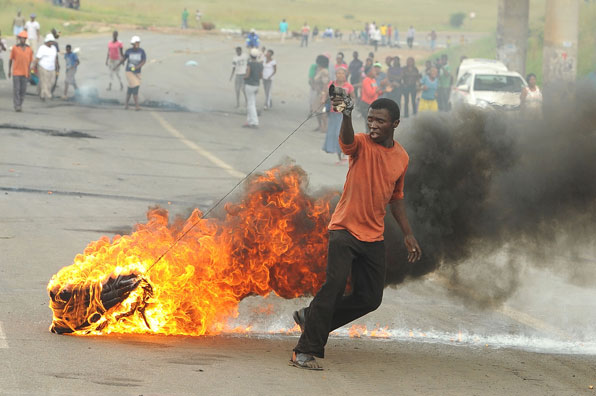
23/5/16:
South Africa, Hammanskraal: 3 buses and two red ants destroyed during anti-eviction action One of the residents in the area who did not want to be identified was interviewed in this report. She said working-class community members turned on the two men when this pair of “red ants security and eviction services” sell-outs started demolishing their homes. ‘We were trying to get them not to damage our homes but they continued to damage everything and that’s when the community turned on them and hit them with objects and burnt one of them‚” she said.“My shack is also in the area. It’s not like we just came out of nowhere‚ we don’t have any other homes. This is where we leave and now they just want to remove us like that. Where do they want us to go?” she questioned.’ [SK]
PHOTOS: Protesters in #Hammanskraal set 3 buses on fire earlier today #sabcnews
More info on the killed men is available here
… Umzinto: 11 women arrested for ‘public violence’ during protest. They were just 0.3% of the total 300 protesters arrested by ignorant and incompetent pigs. This behaviour is one of the reasons why the most popular sentiment towards the state is ‘Fok die polisie’. There must have been many men among that 300. Why did the cops arrest only women? And what does this say about the female liberation movement? [SK]
25/5/16:
South Africa, KwaZulu Natal: 3rd day of water riots, verry bad… see also here… Hammanskraal: victory for squatter’s movement after massive anti-eviction riots “Human Settlements MEC Paul Mashatile announced that not only would the community be allowed to return to their shacks from which they had been evicted, but that the area would be developed to accommodate them.”… Wolmaransstad: shops looted, roads barricaded, 10 arrested, no demands reported
26/5/16:
South Africa, Cape Town: wildcat bus-driver’s strike… Vyeboom: cops terrorise residents … Ennerdale: total shut-down of area in social strike… Bloemfontein: roads blocked and shop looted in protest over political appointments and demarcations
27/5/16:
South Africa: National state-owned broadcaster announces systematic self-censorship of all protest coverage, encourages other media companies to follow suit The same thing was done during apartheid, for the same reasons [SK]… Kwa-Zulu Natal: no-go zones mushroom residents organise social strikes throughout the province
28/5/16:
South Africa, Limpopo: new detailed report on social conditions that led to burning of 24 schools worth R720 million during municipal conflict “In this report, decisions about demarcation are not merely about demarcation, but they concern issues loaded with the hopes and disappointments of communities that have often been failed by their municipalities. The Municipal Demarcation Board’s decision to have the Bavenda community in the Vyeboom area in Vuwani included in a new municipality concerns every woman who is still forced to walk kilometres to fetch water. It affects every person standing in a queue while waiting for medicine that is rarely available, and every child learning in a classroom without the necessary educational tools at hand.”
30/5/16:
South Africa, Kroondal: wildcat strike continues despite court order declaring it illegal three days earlier on 27th
